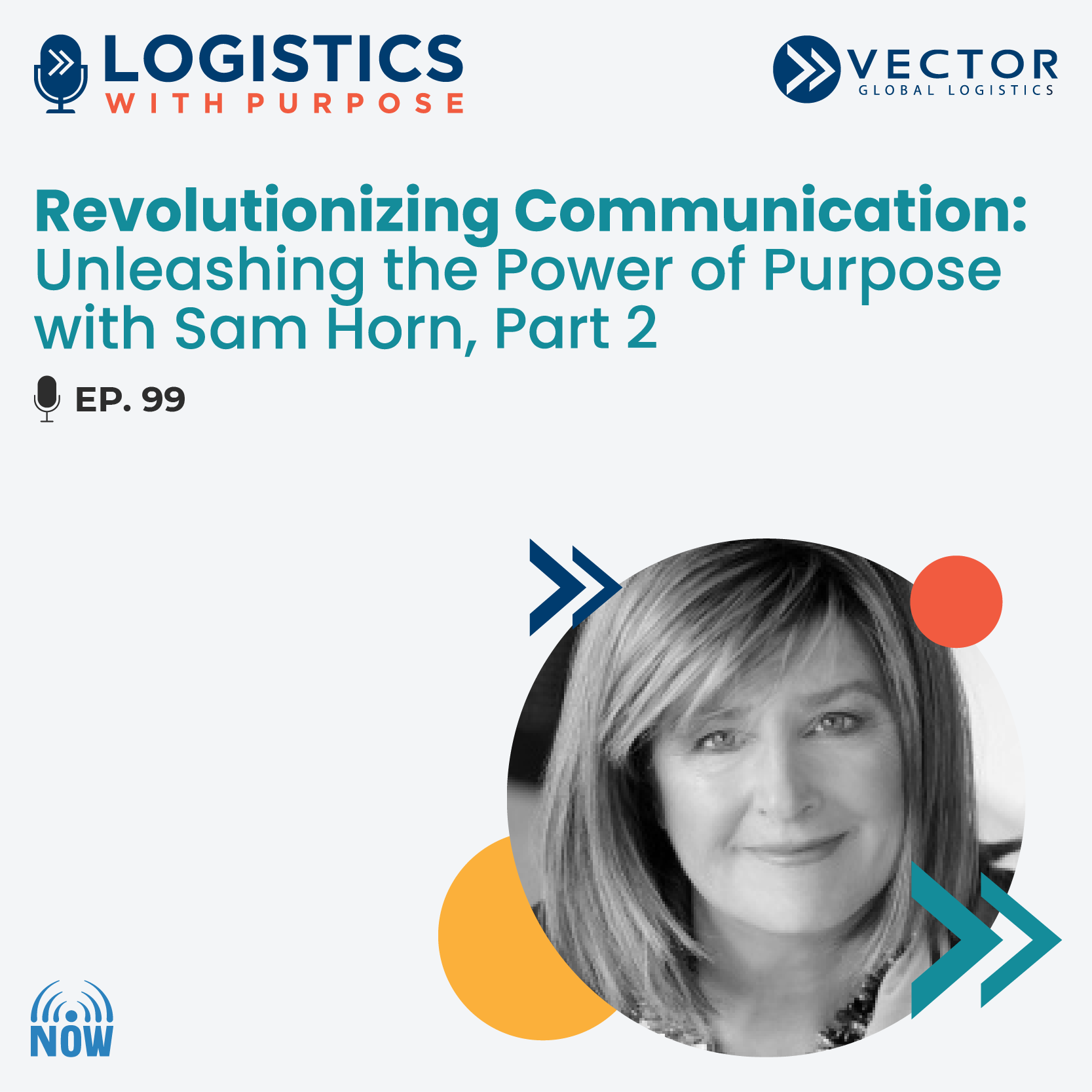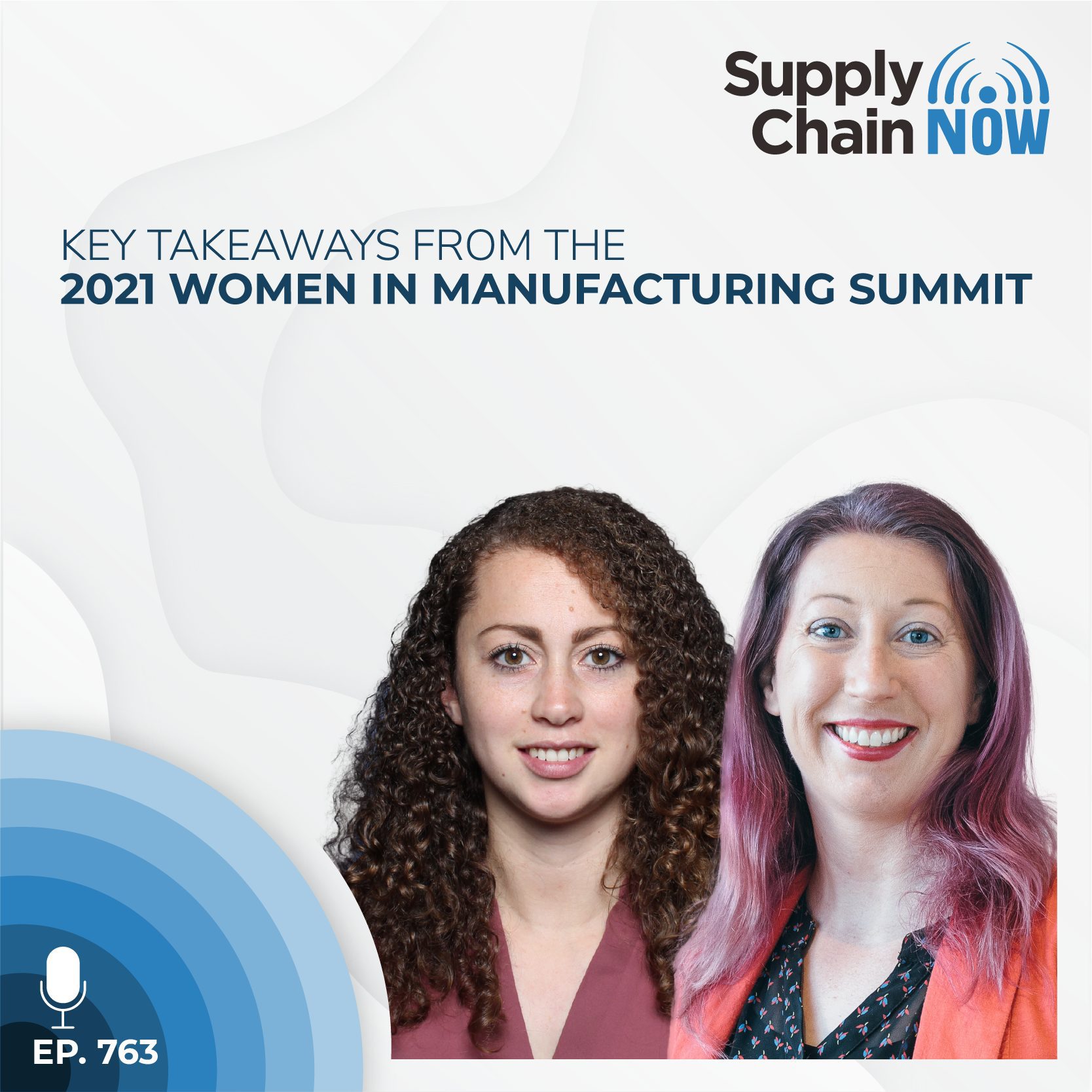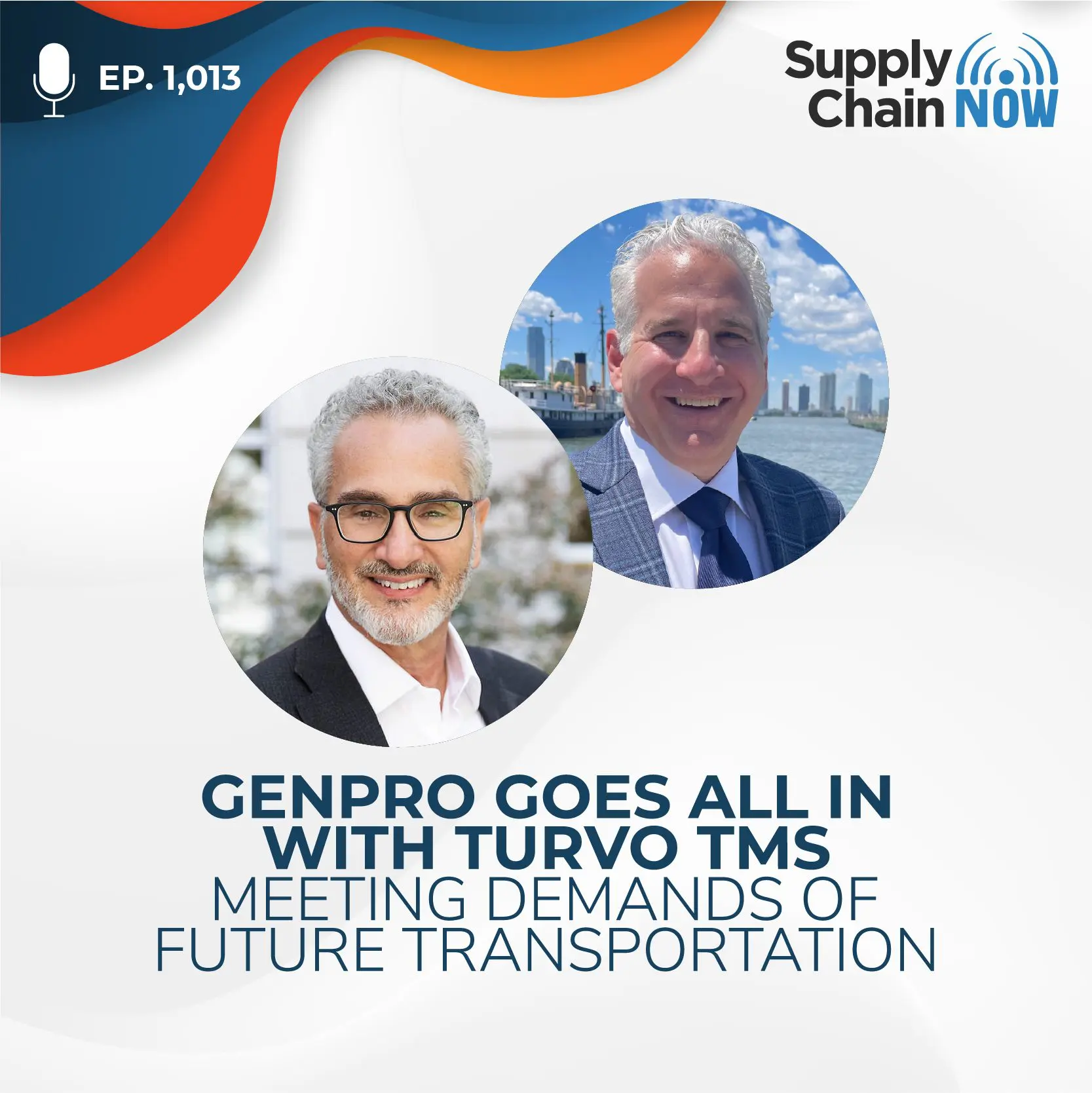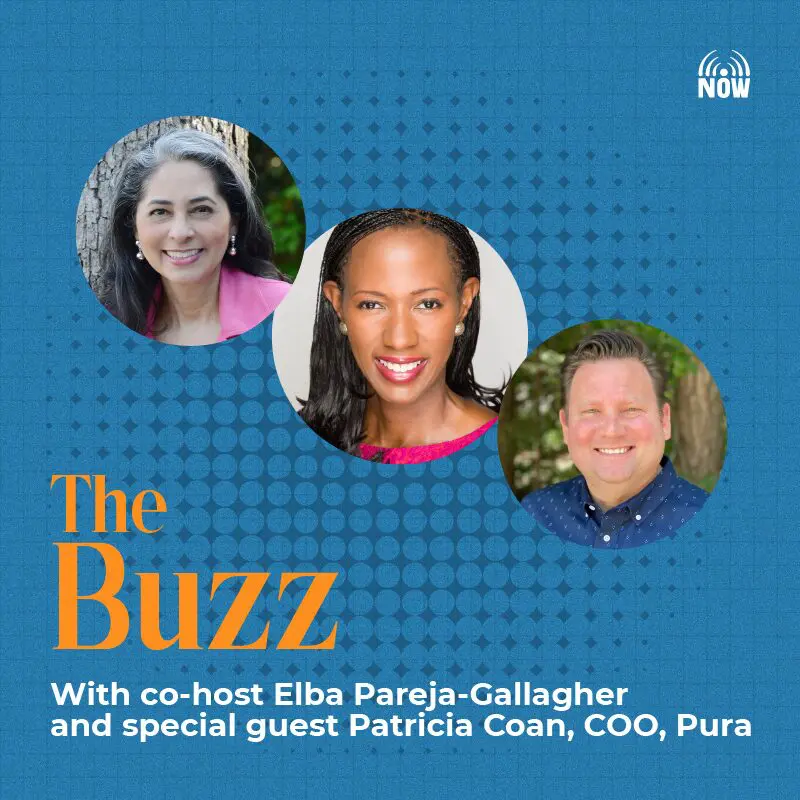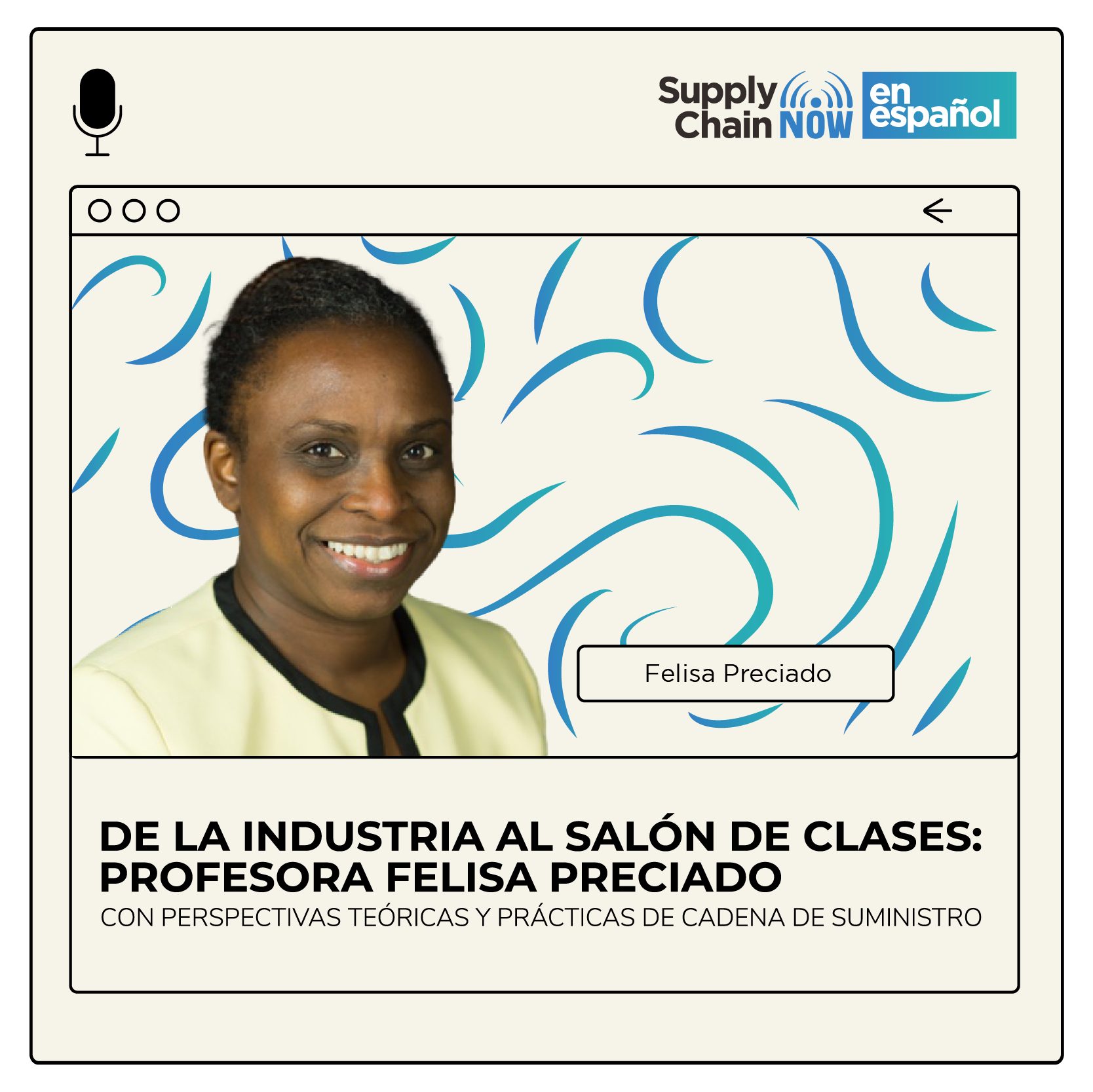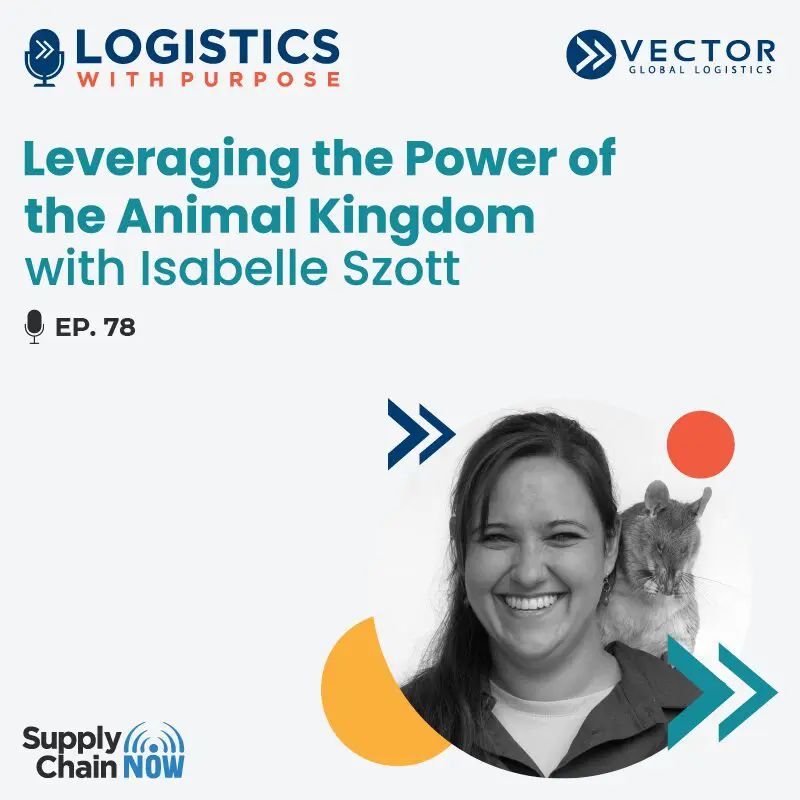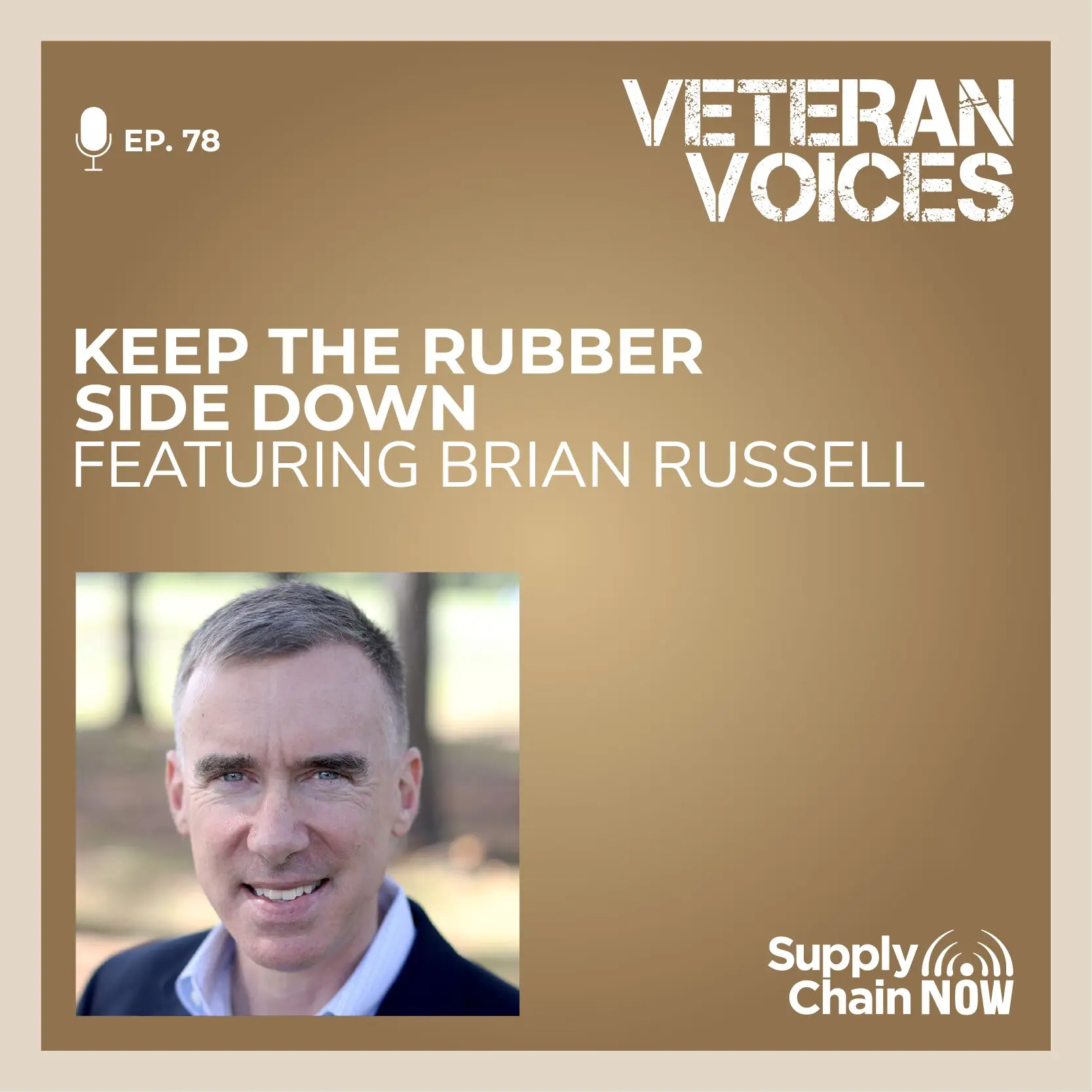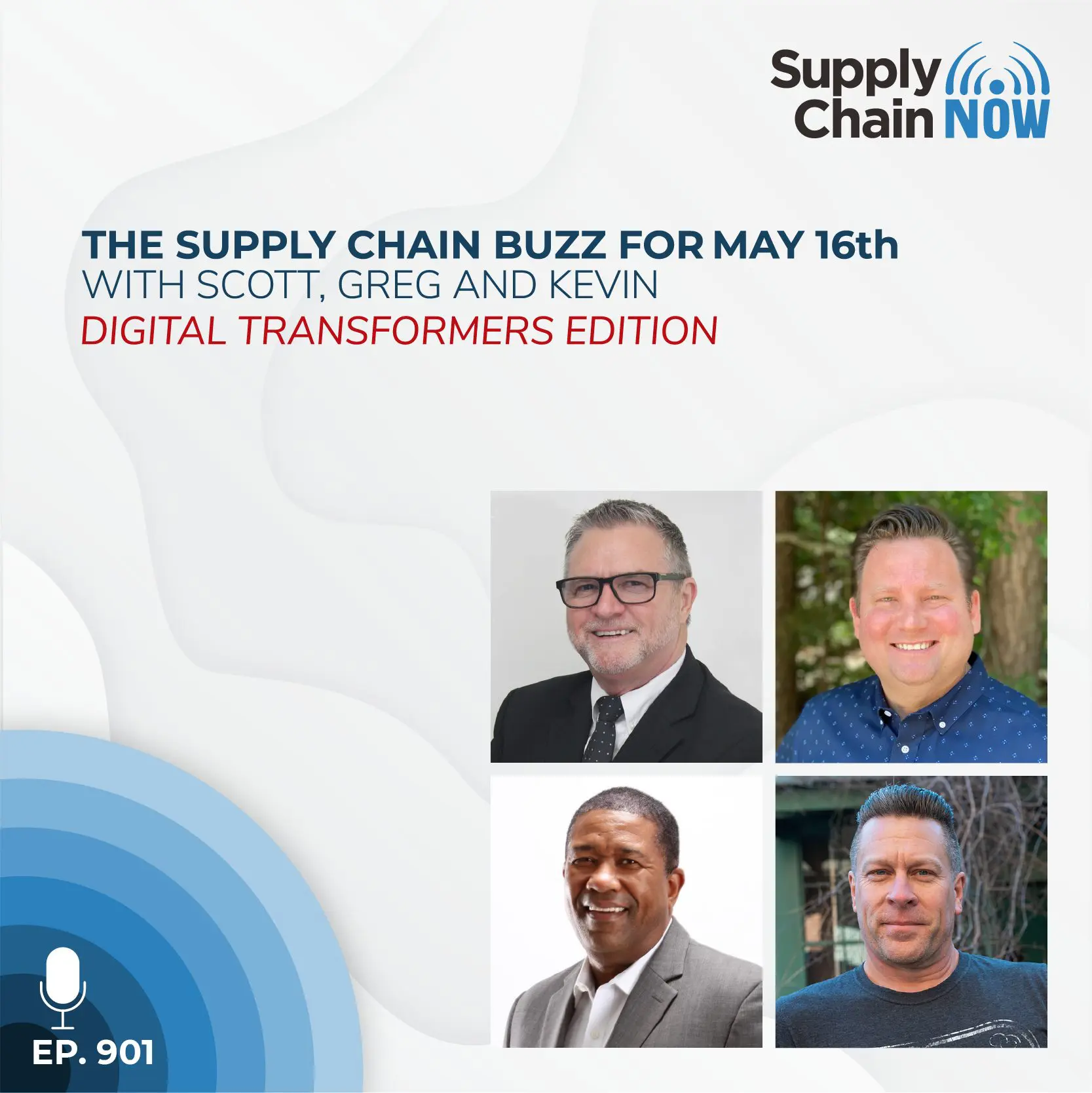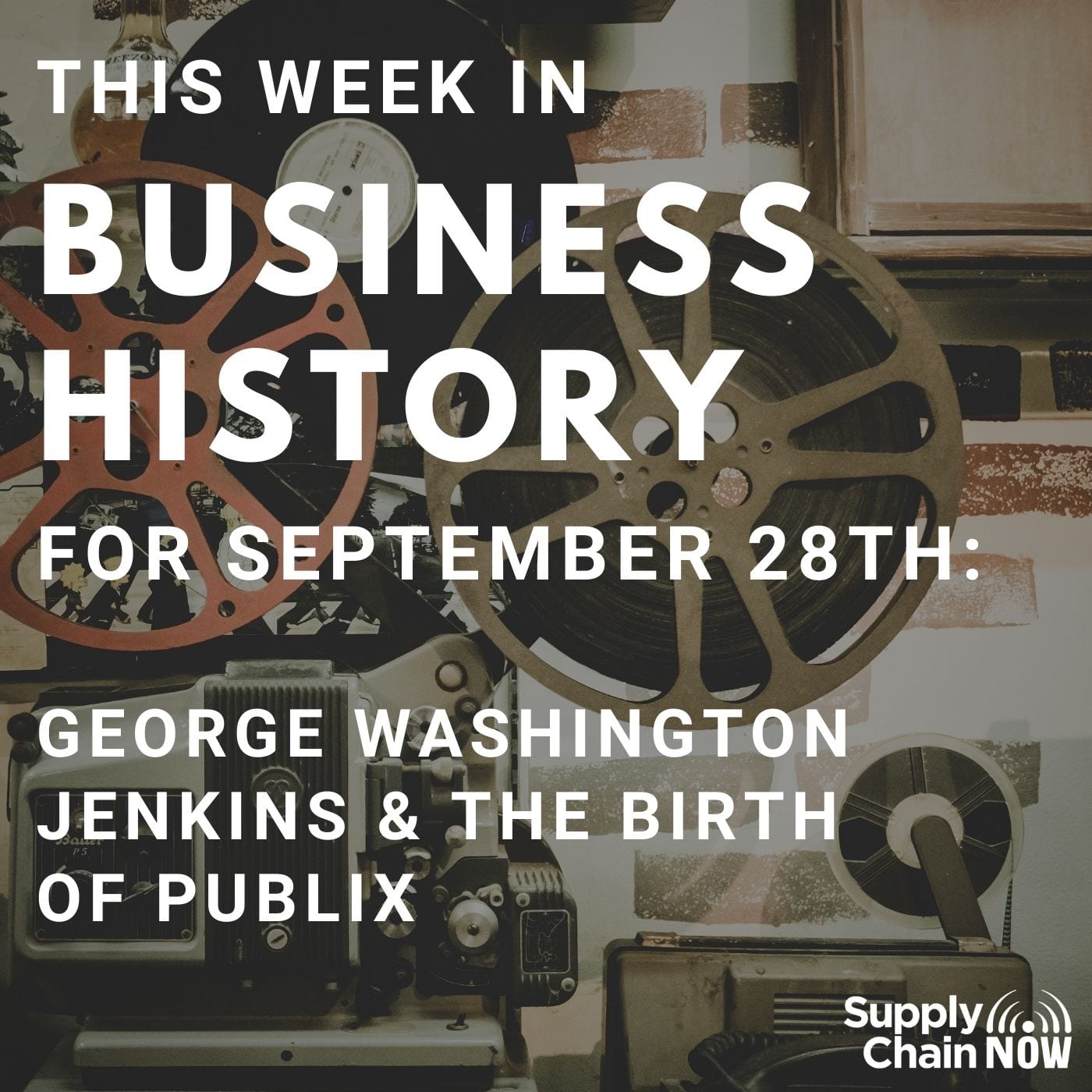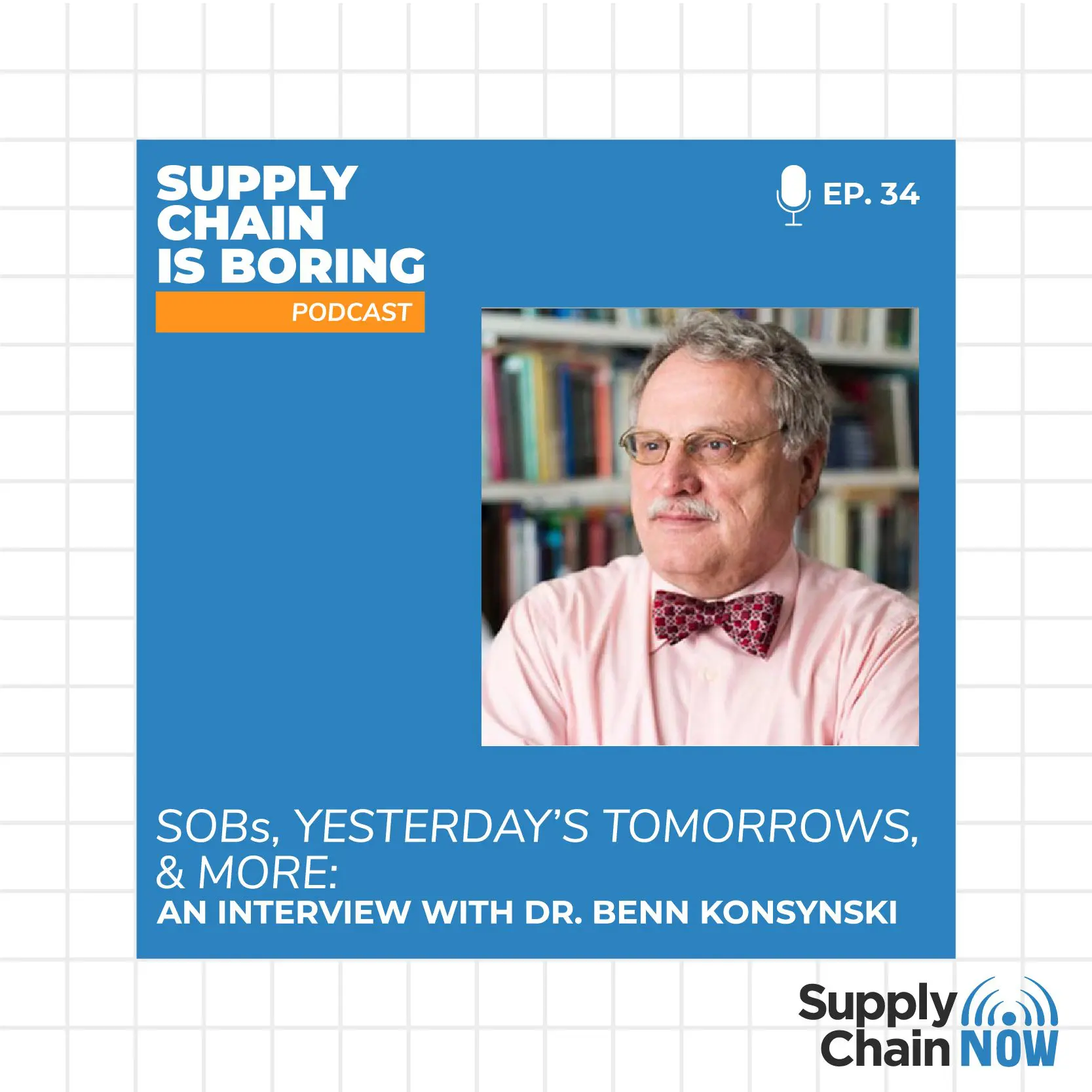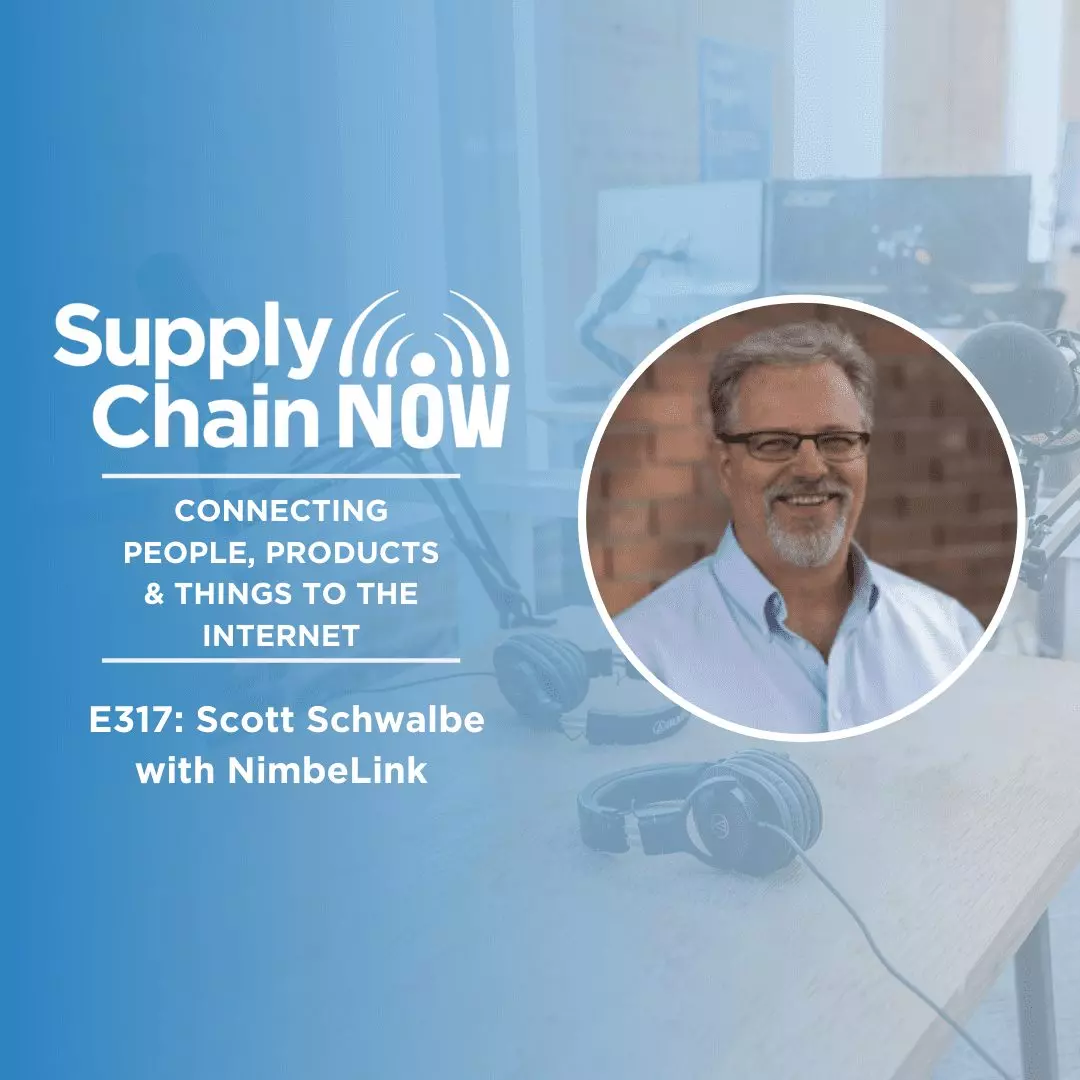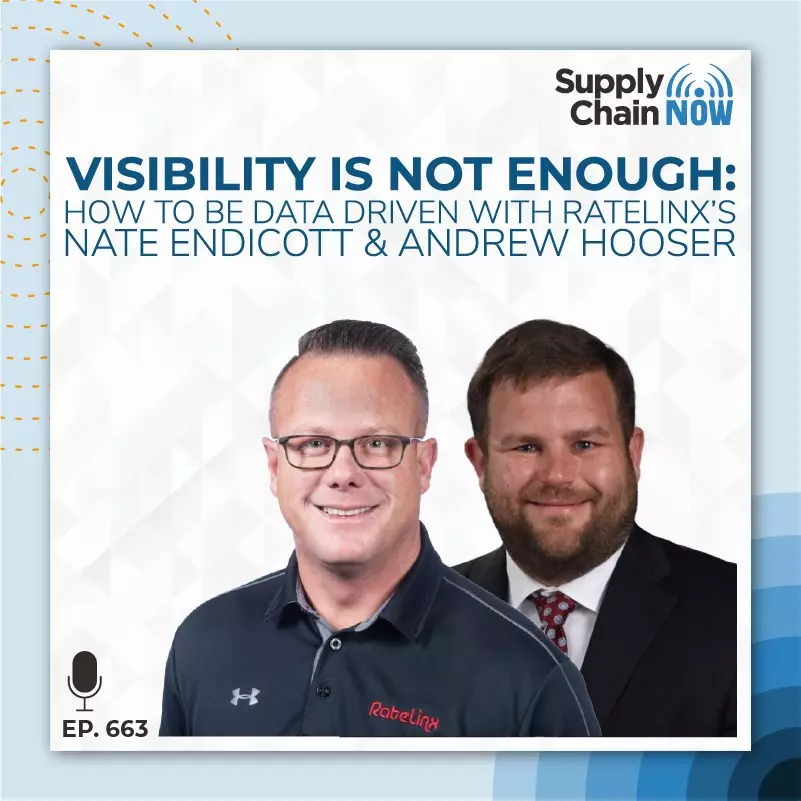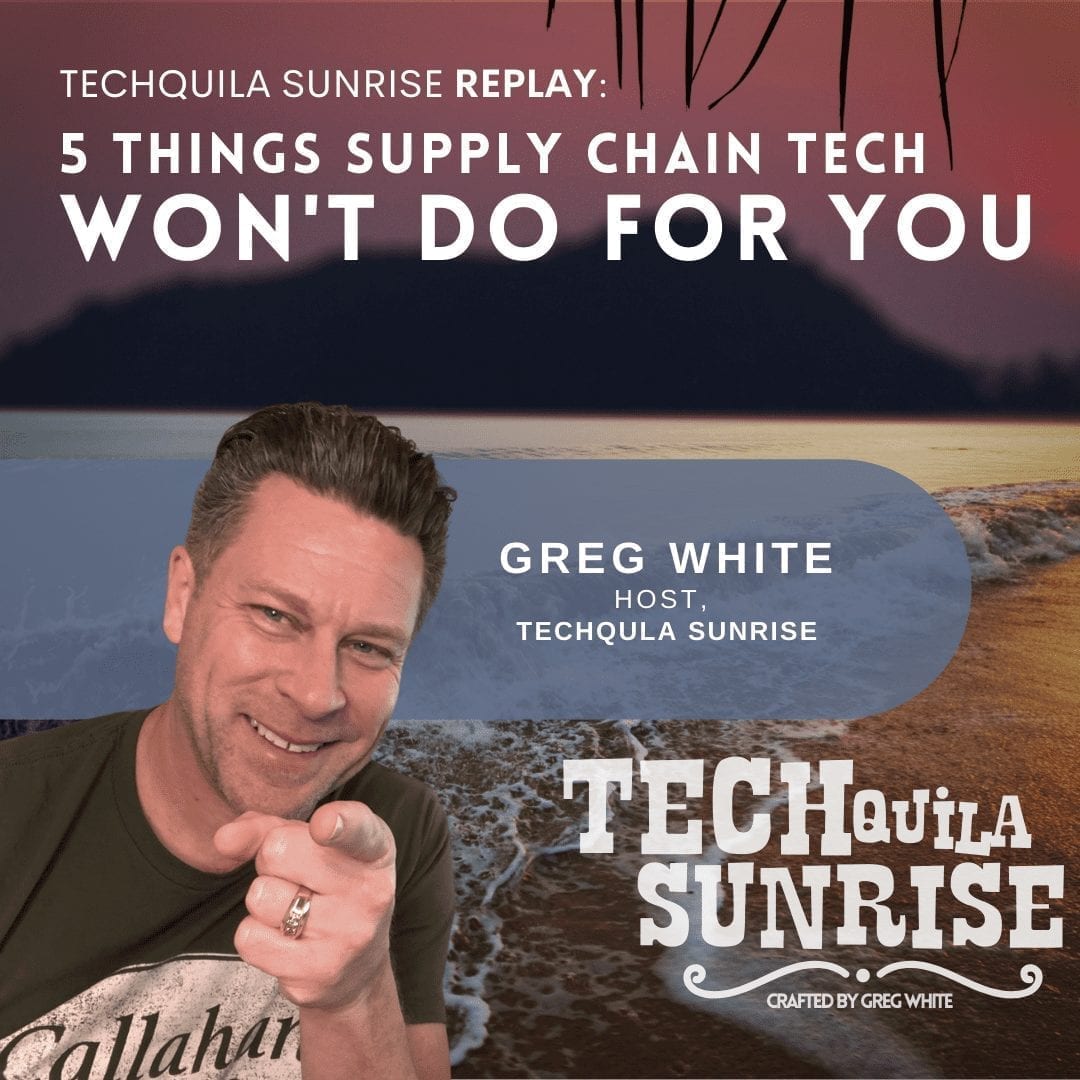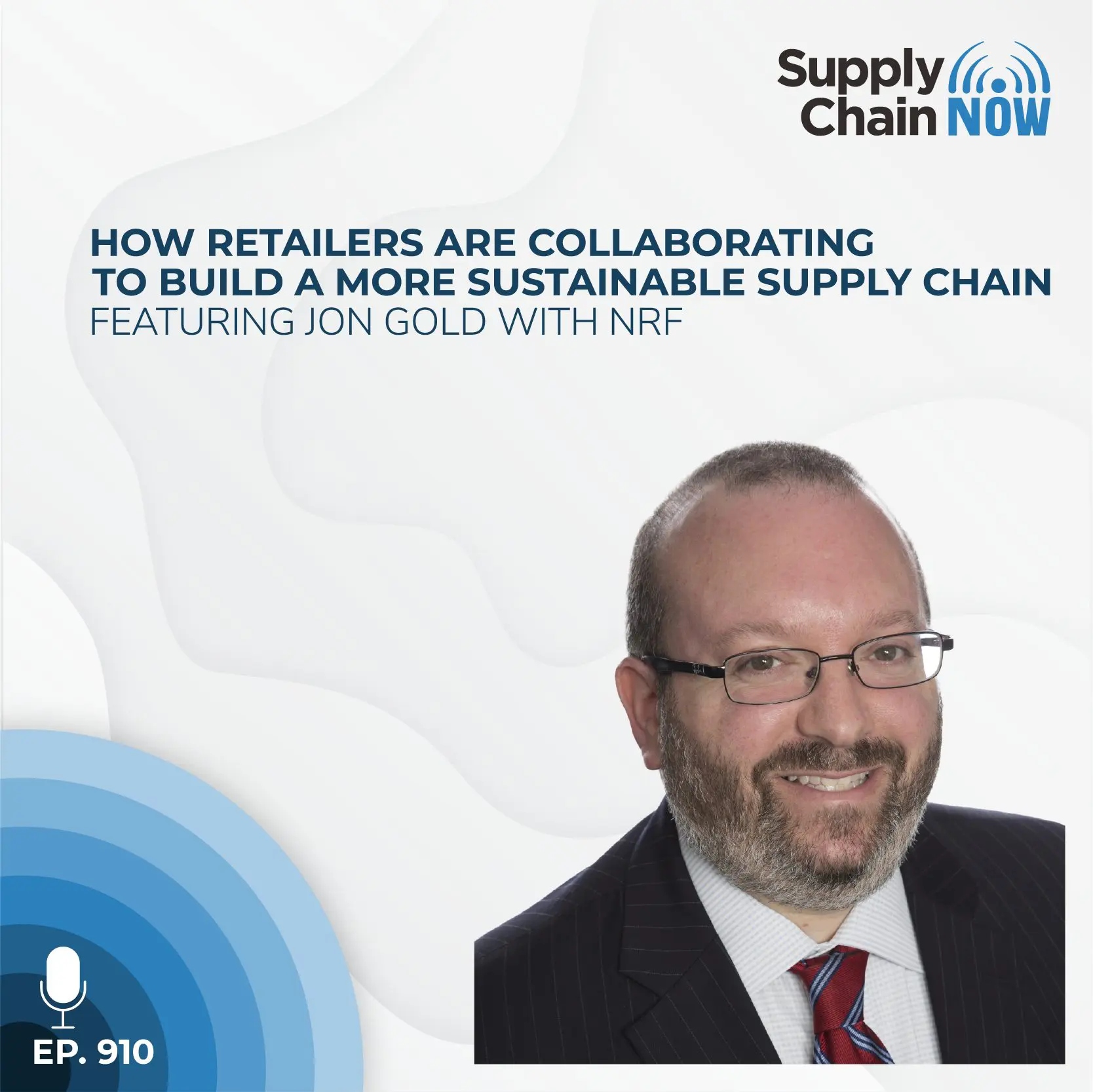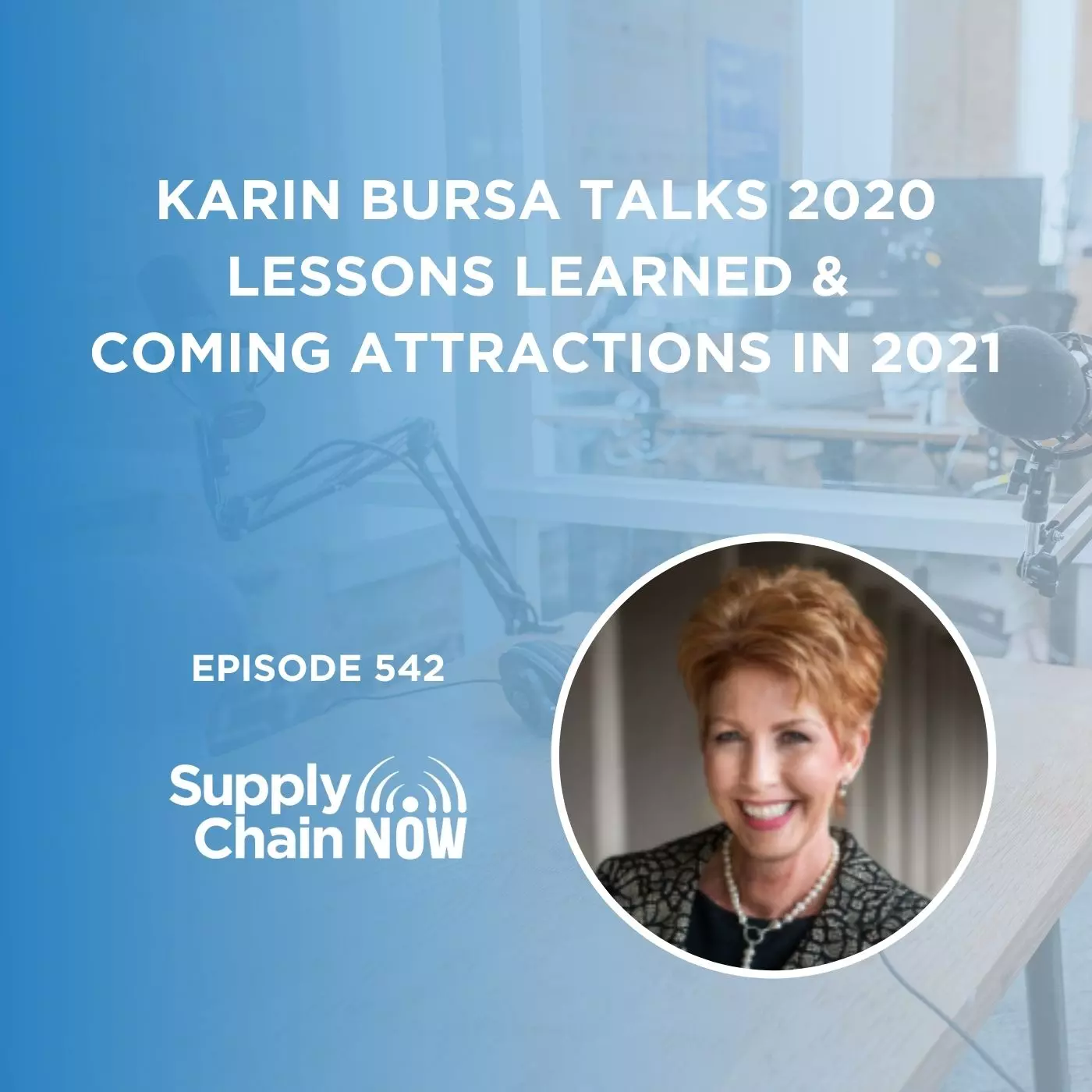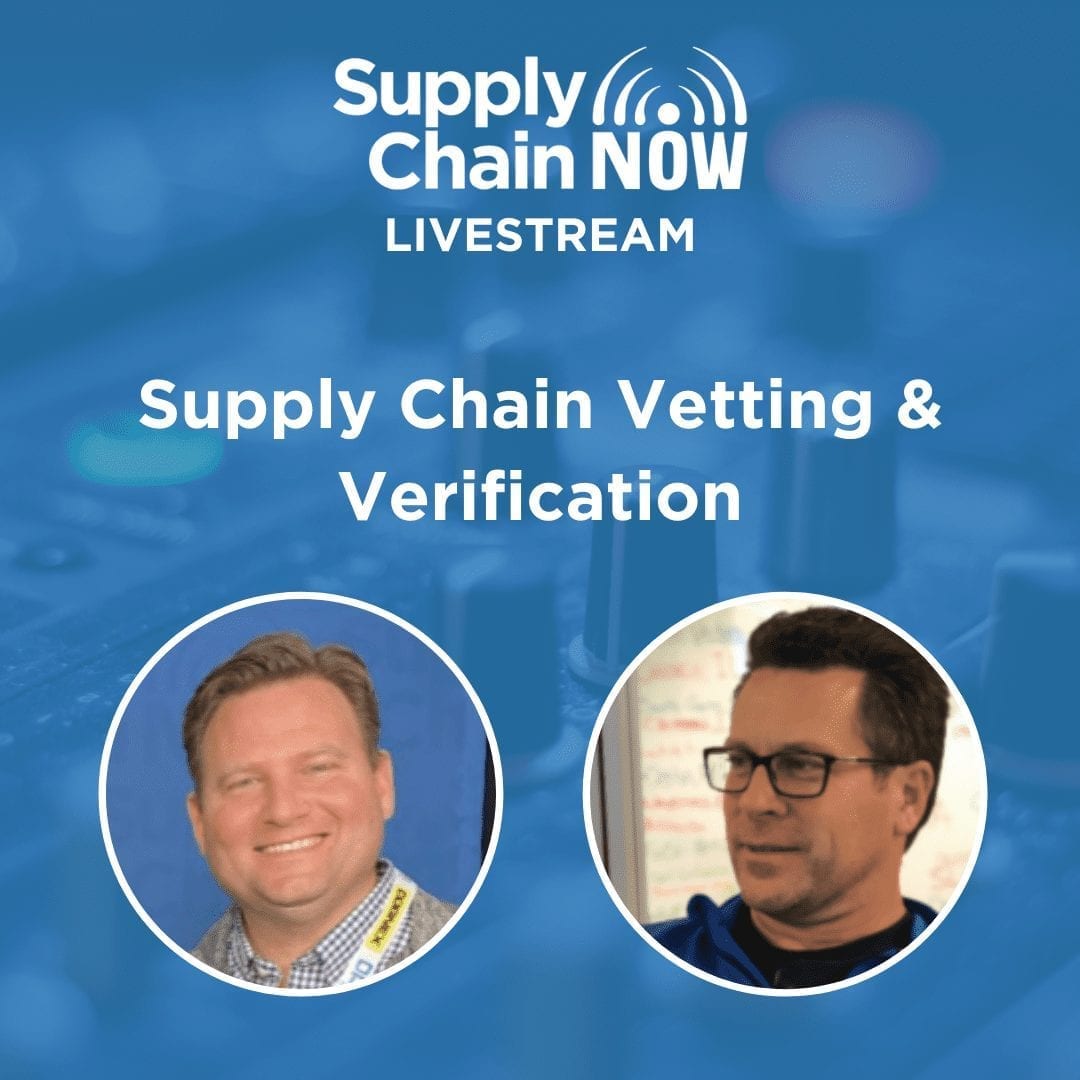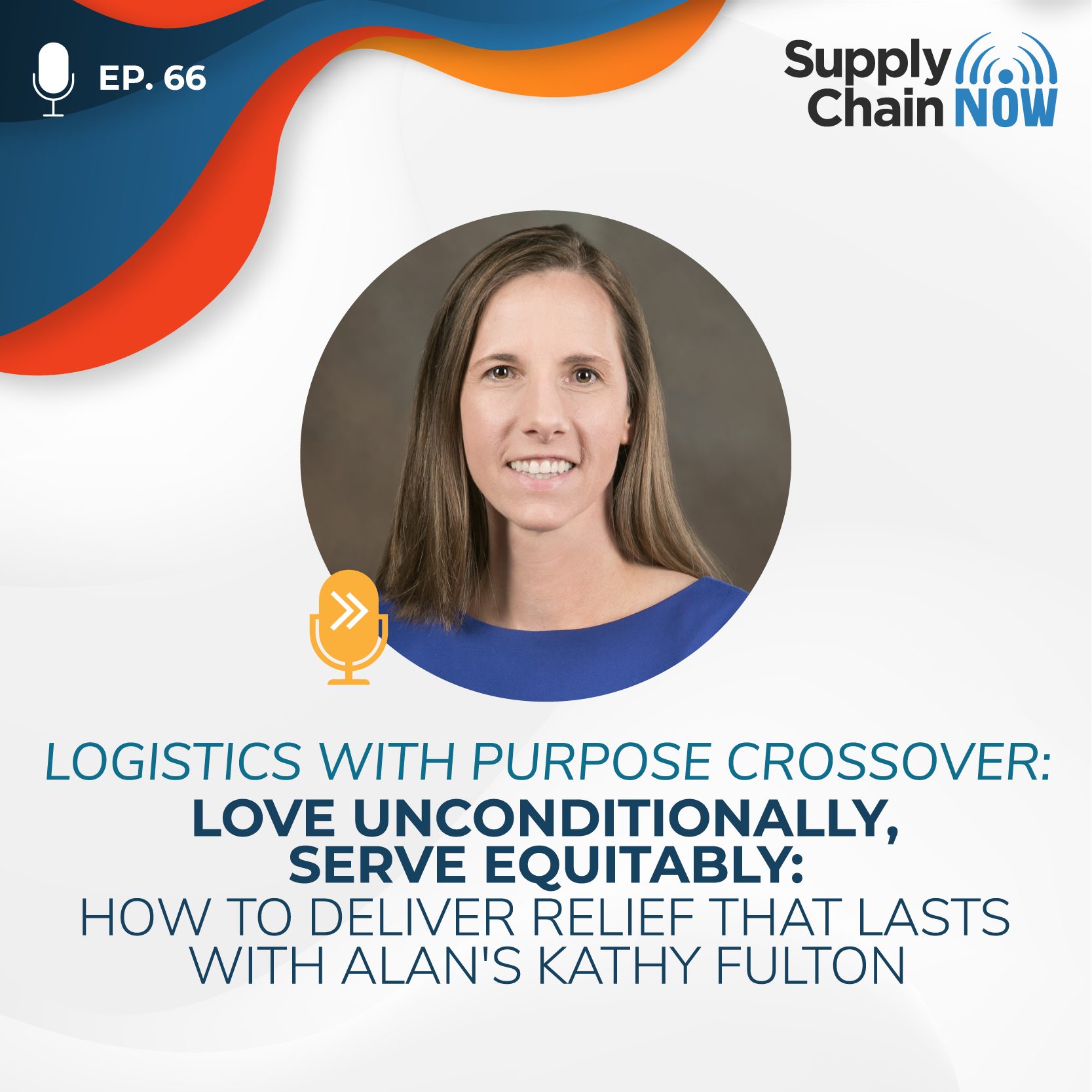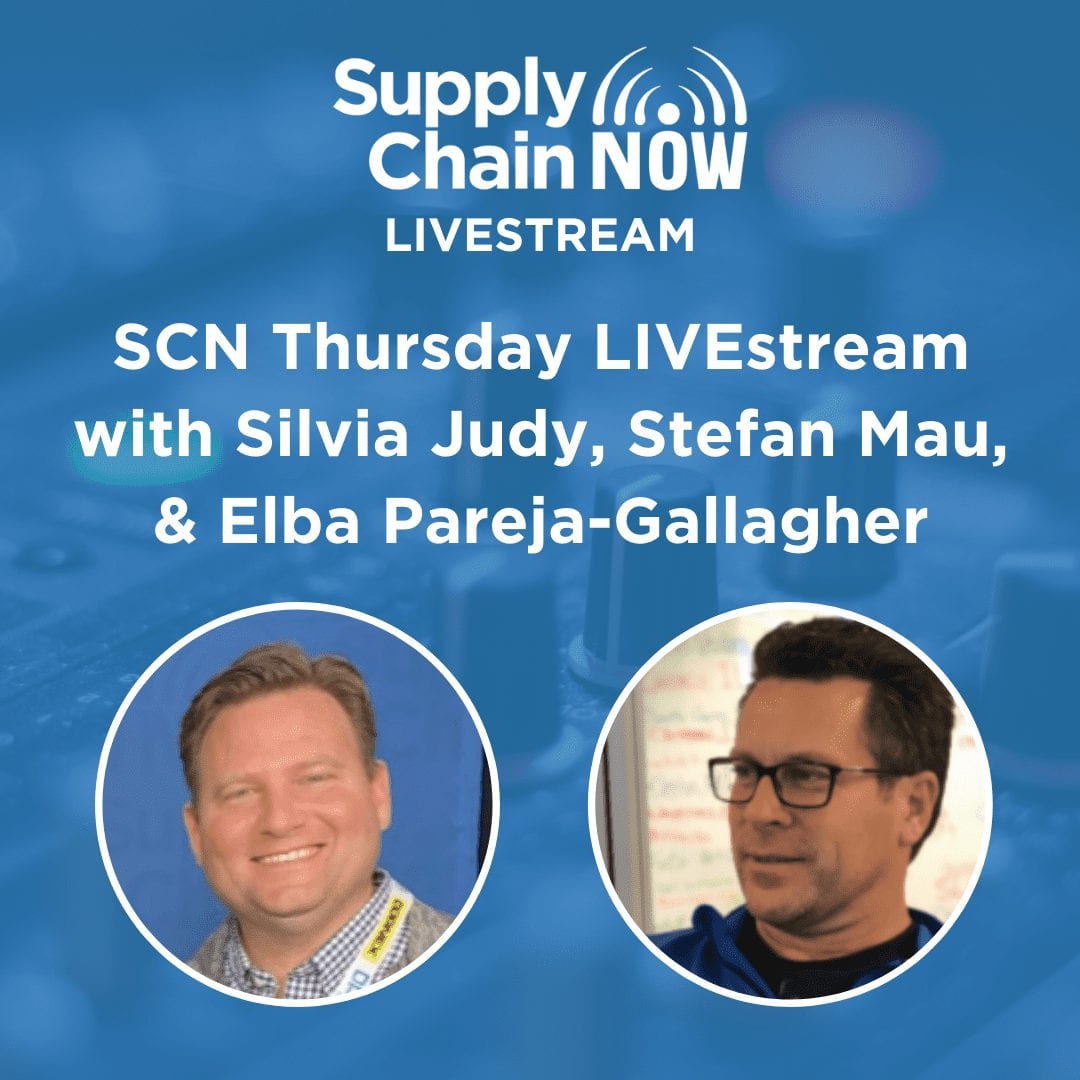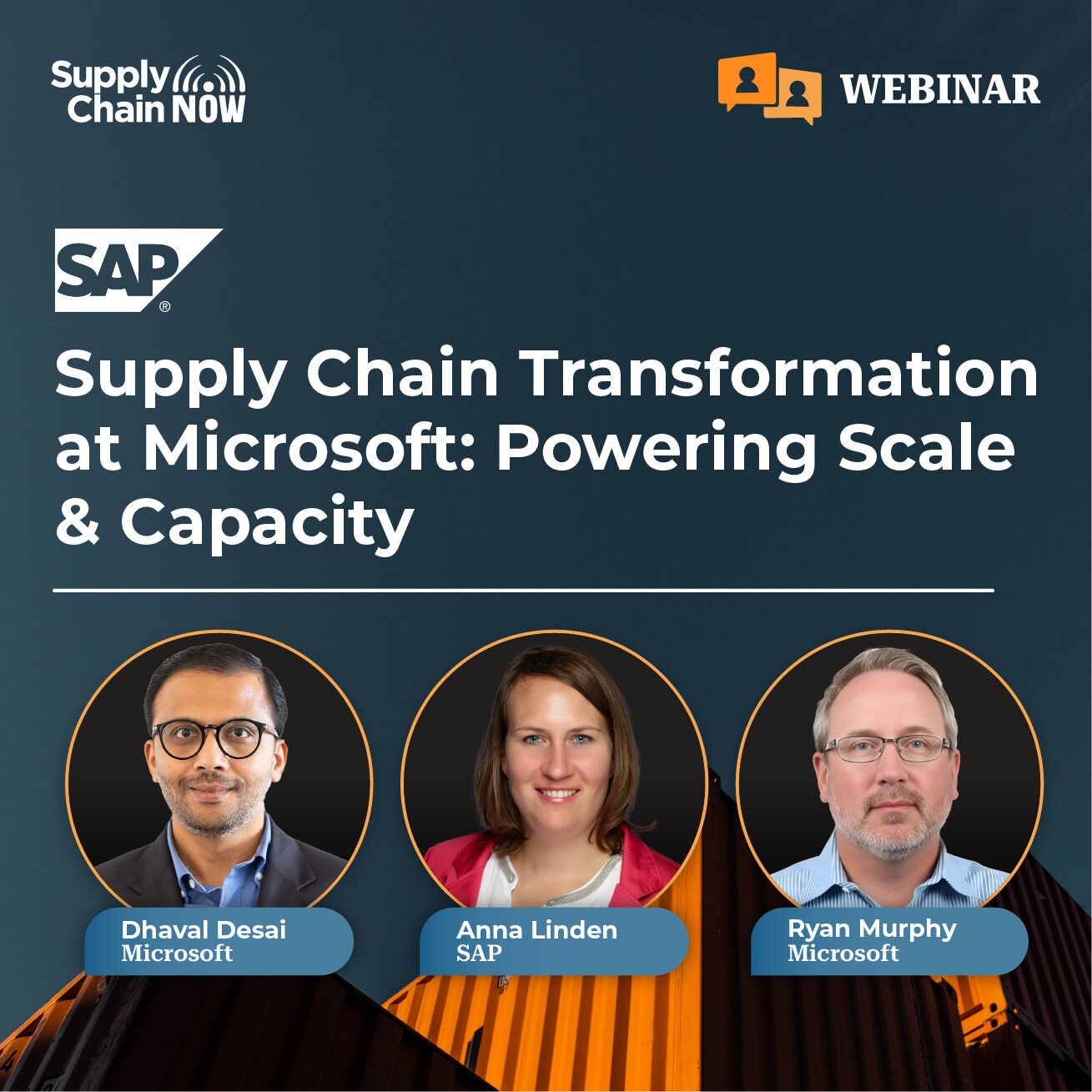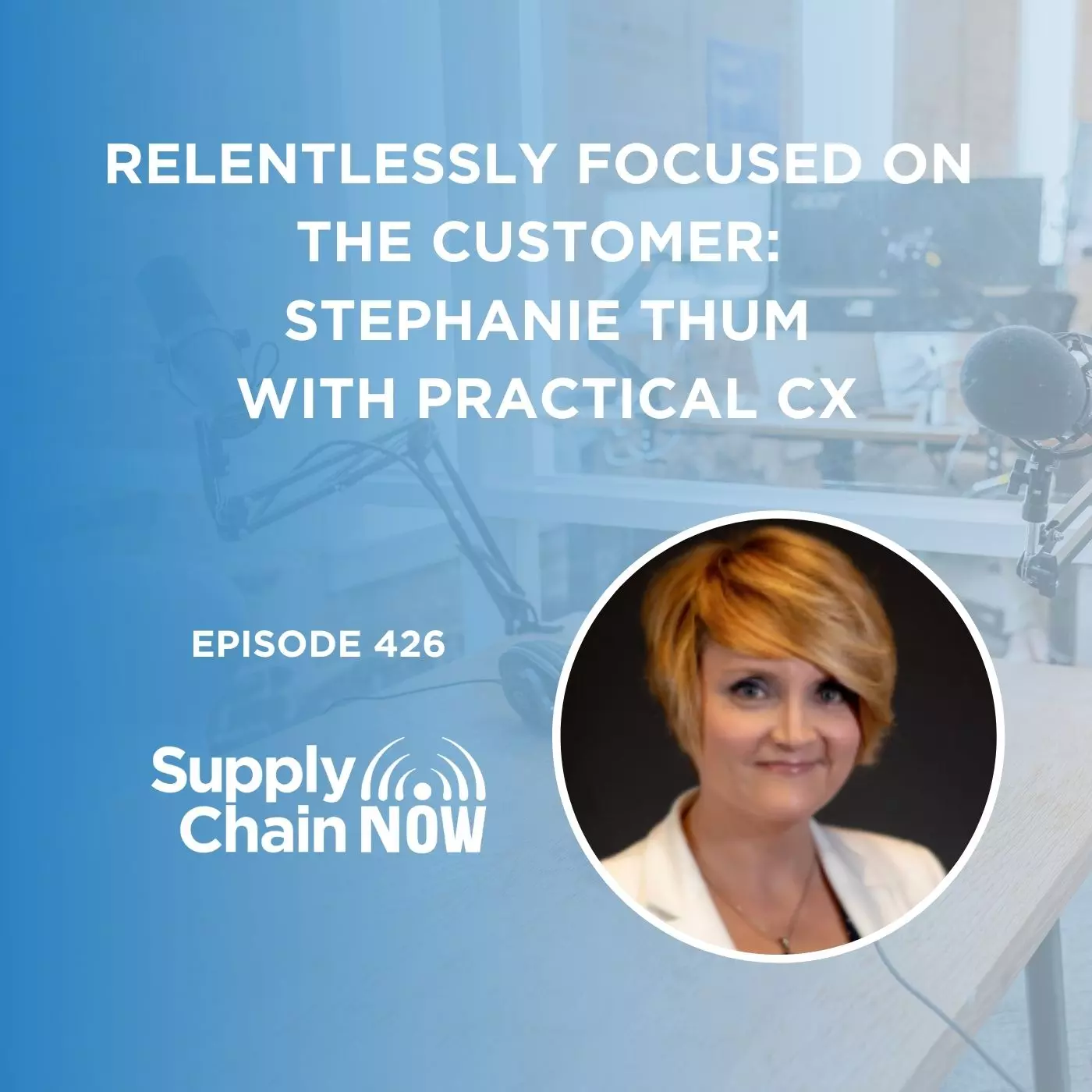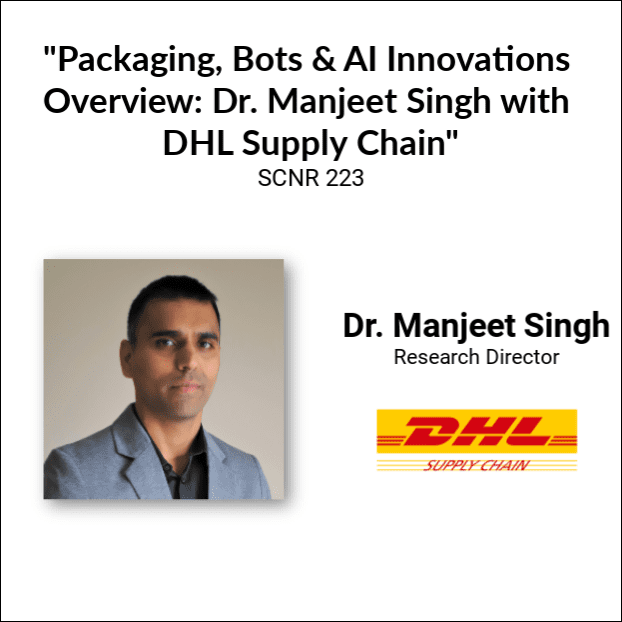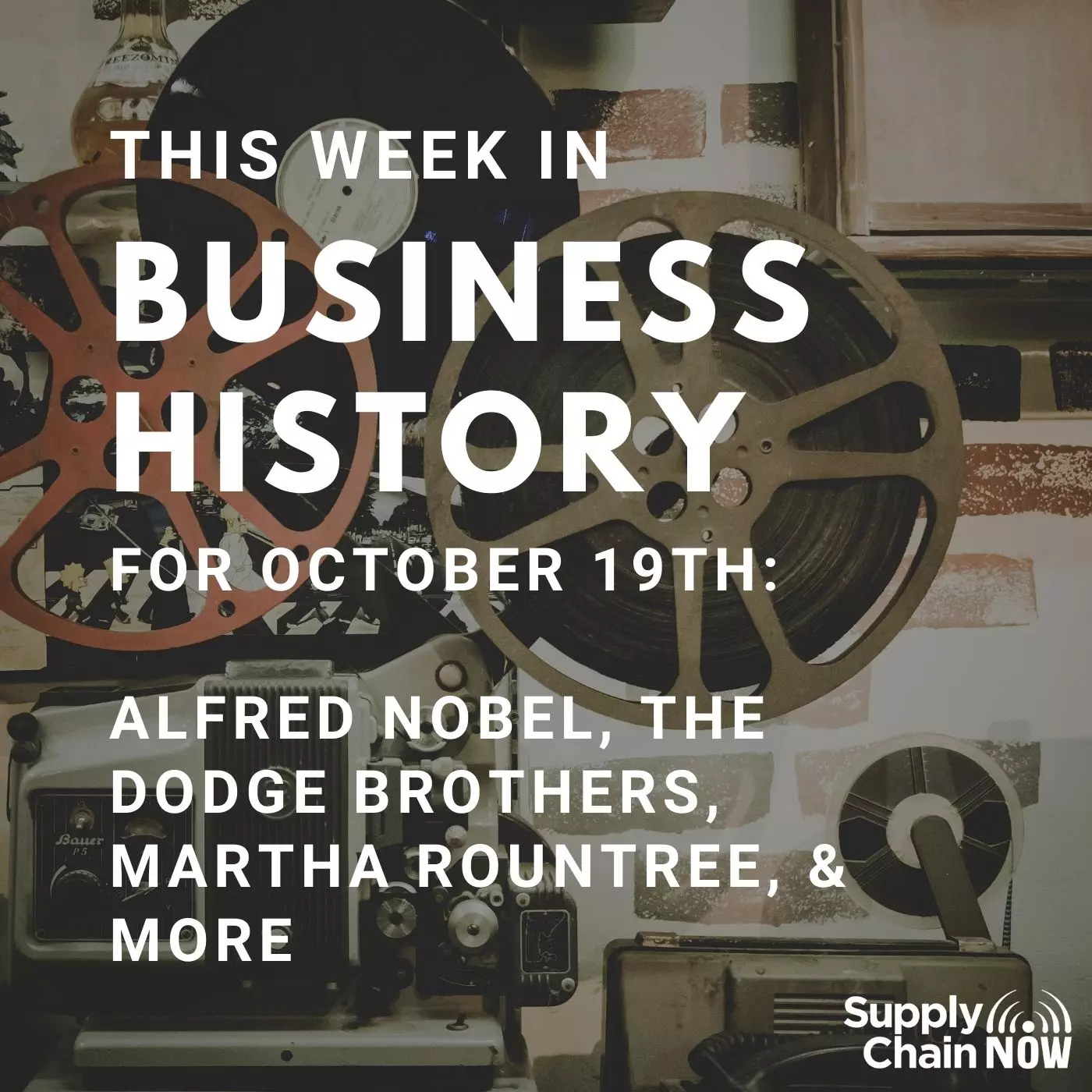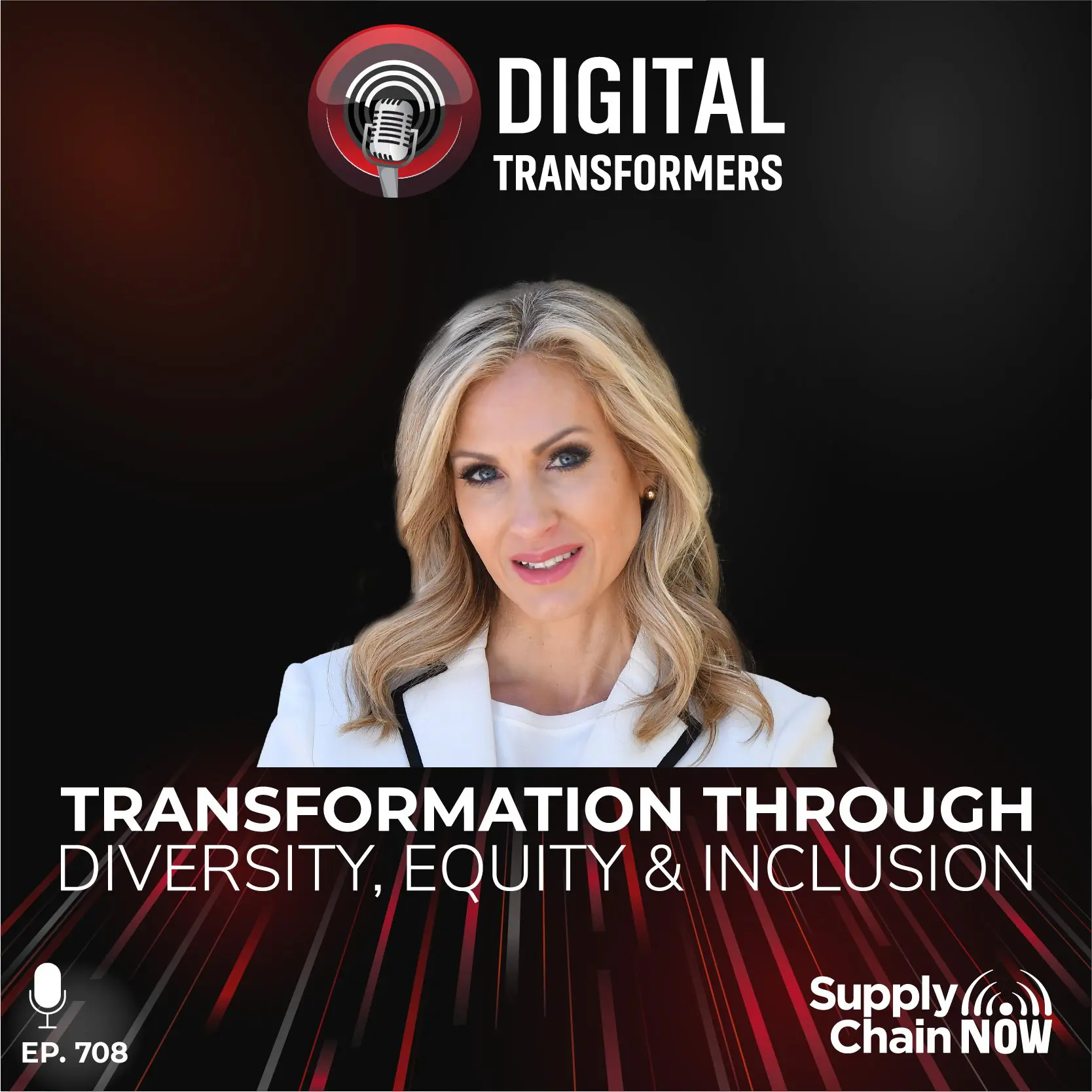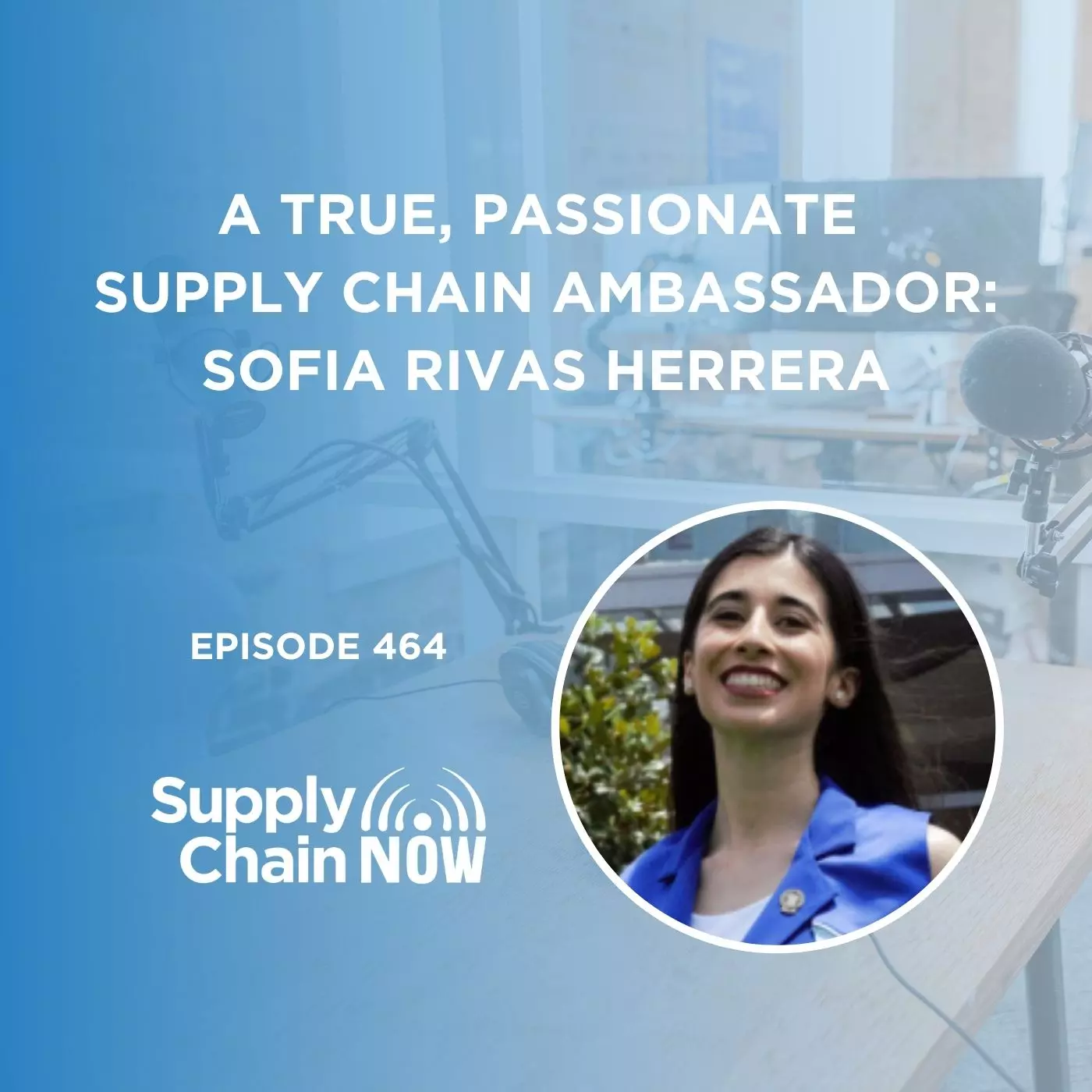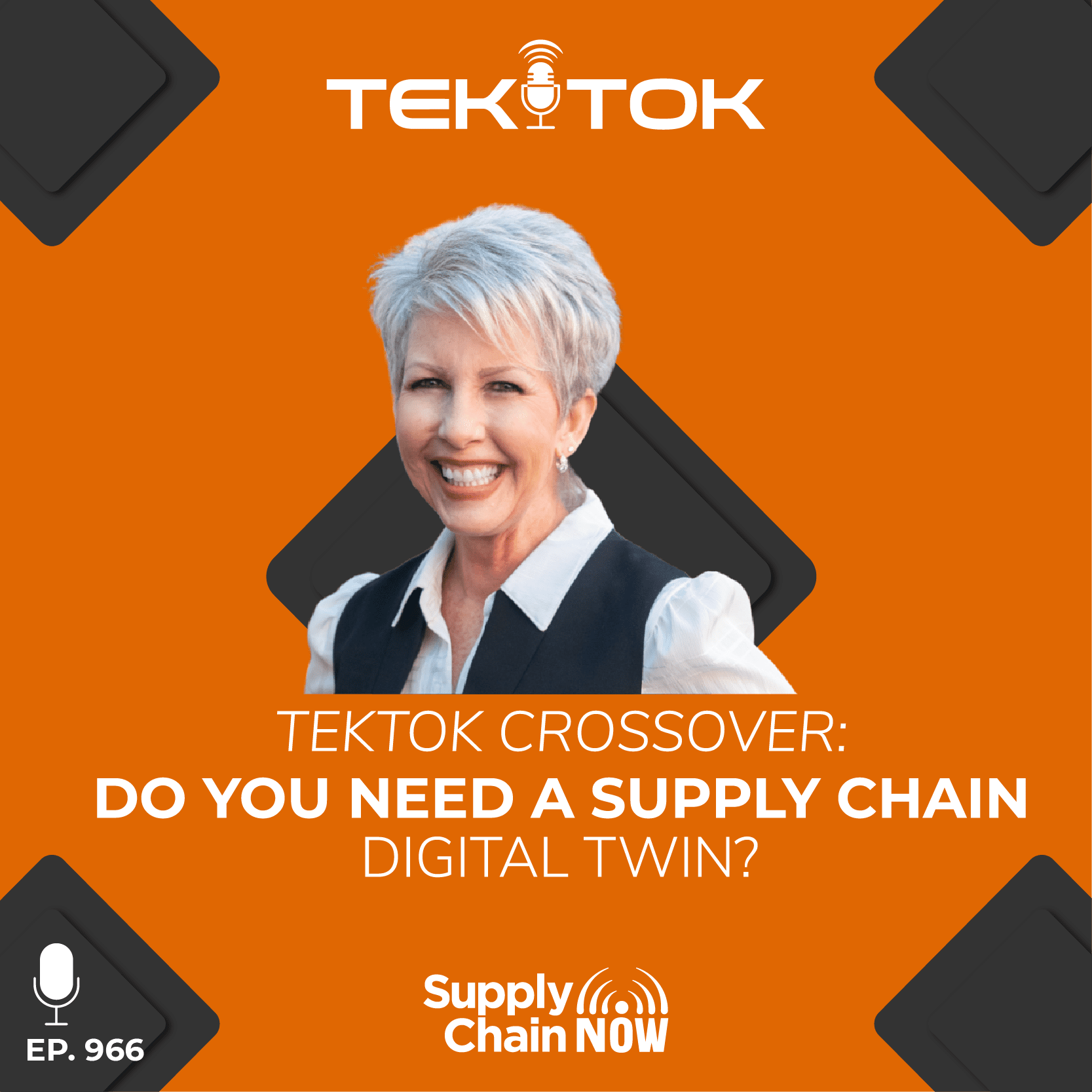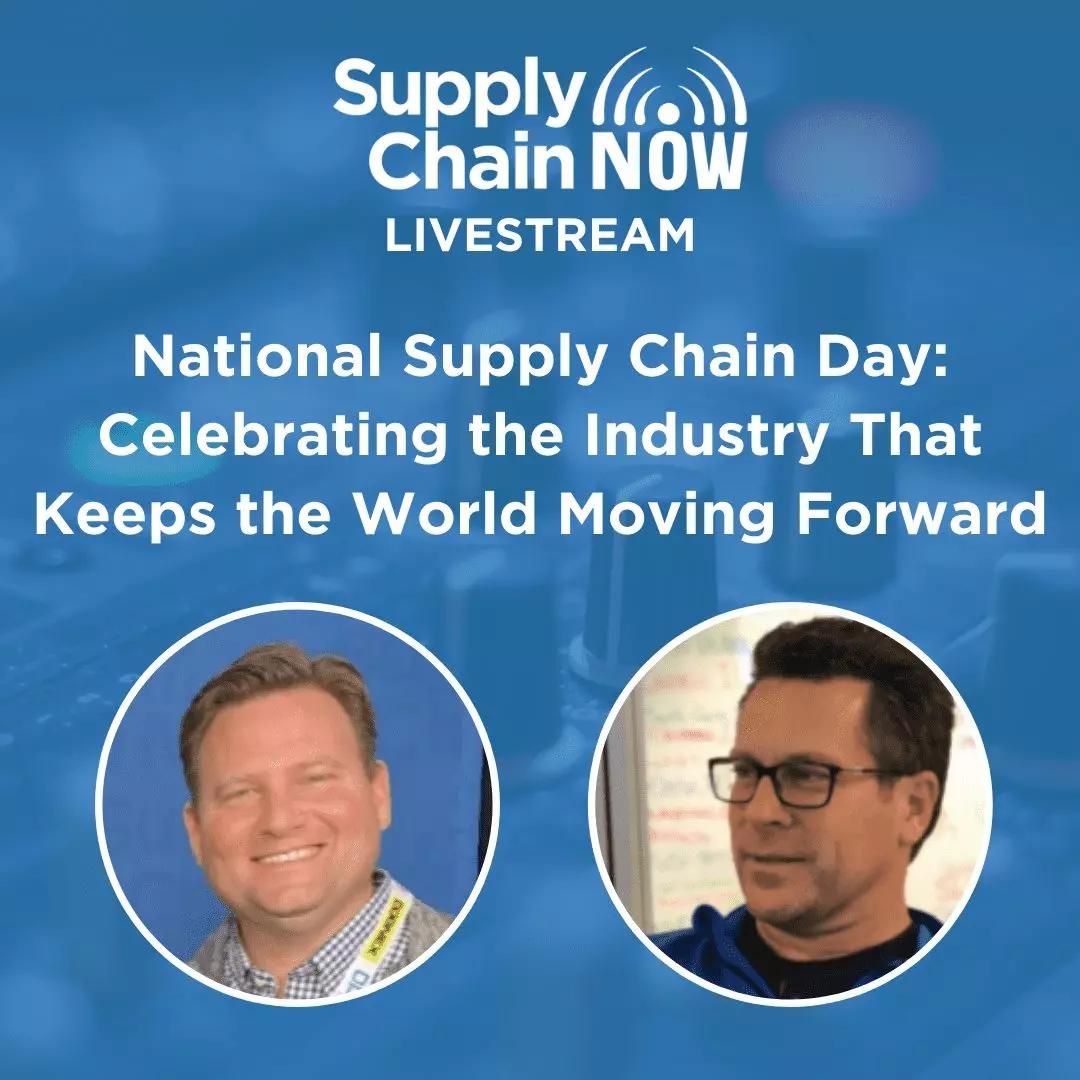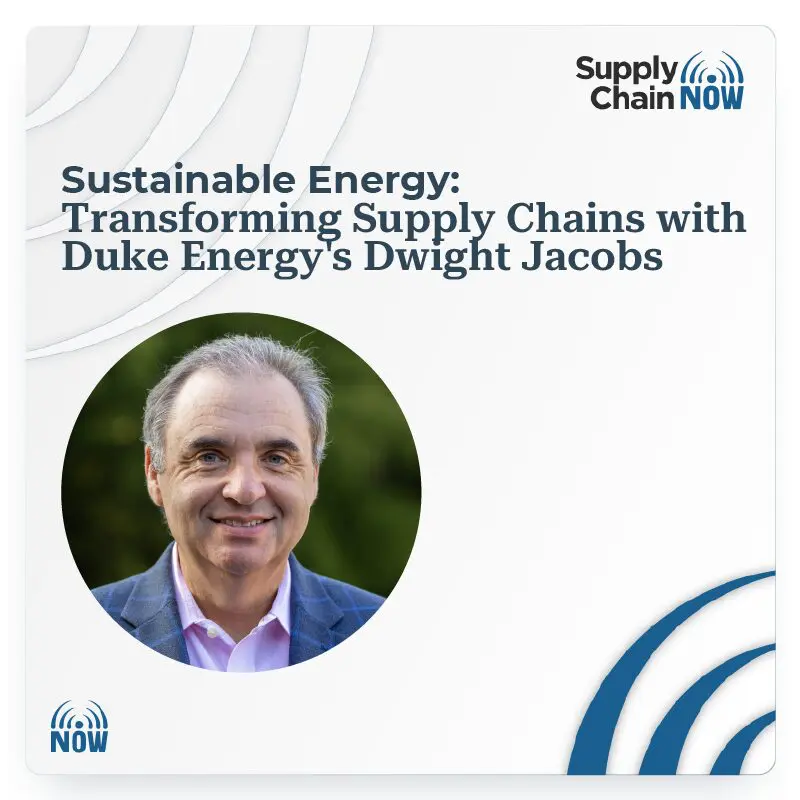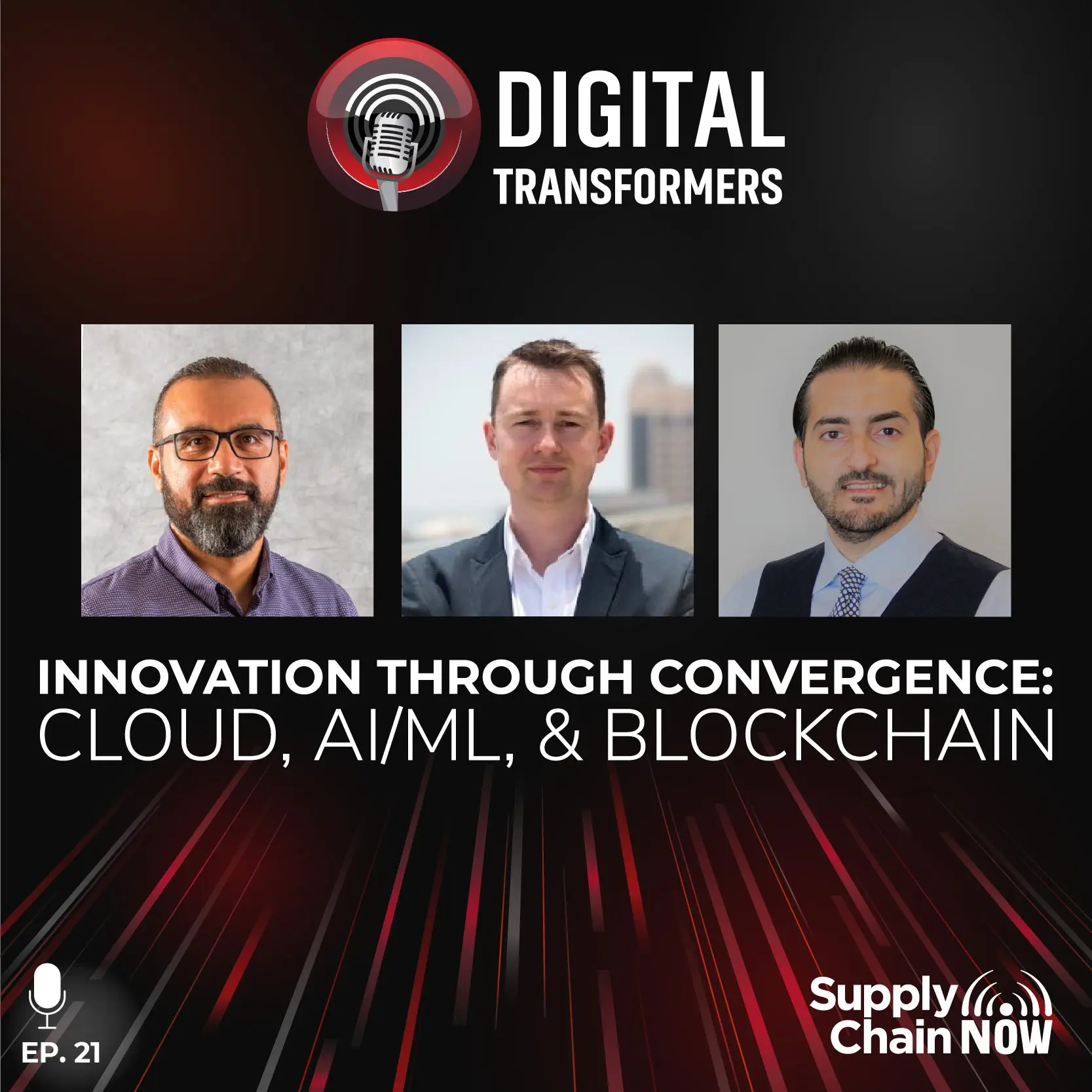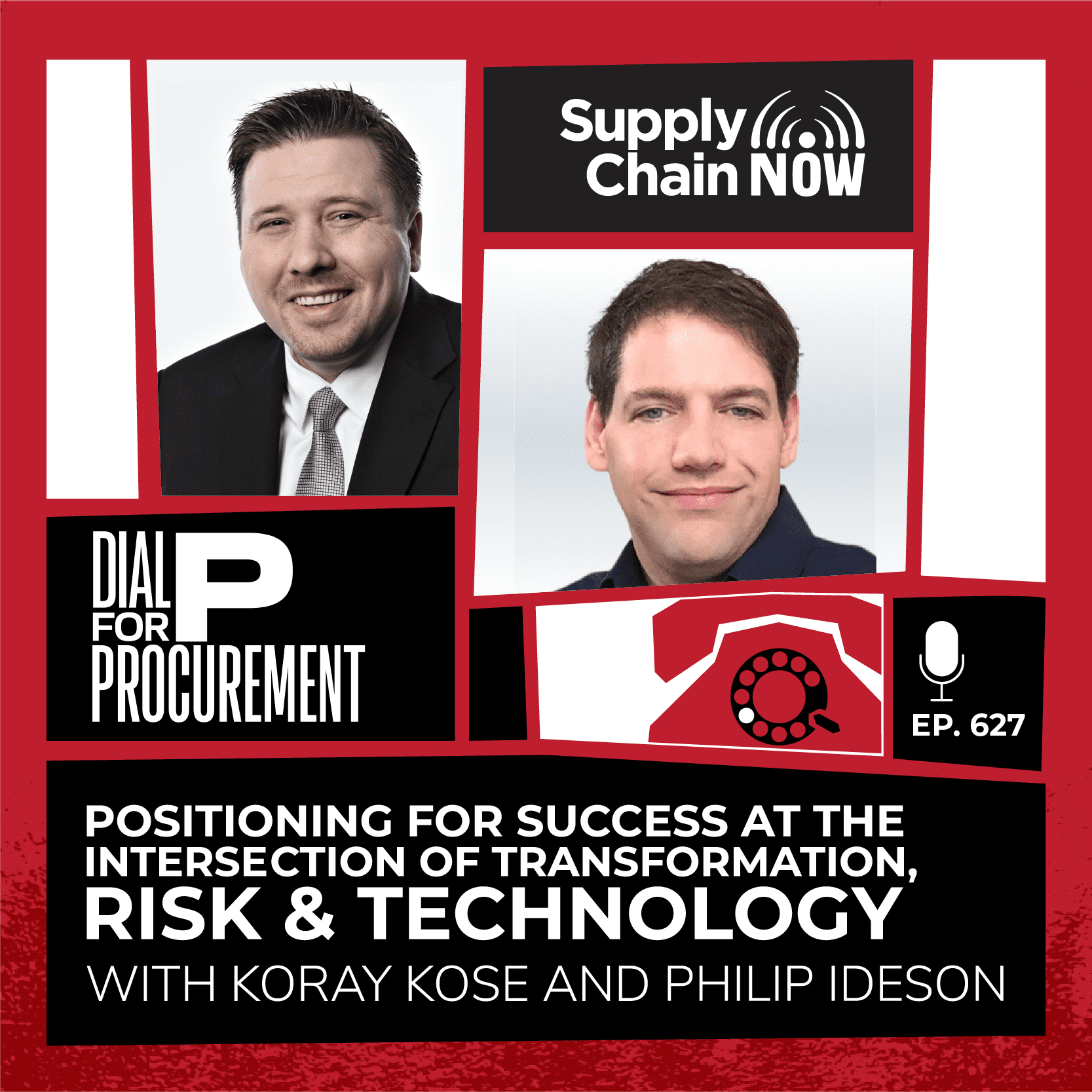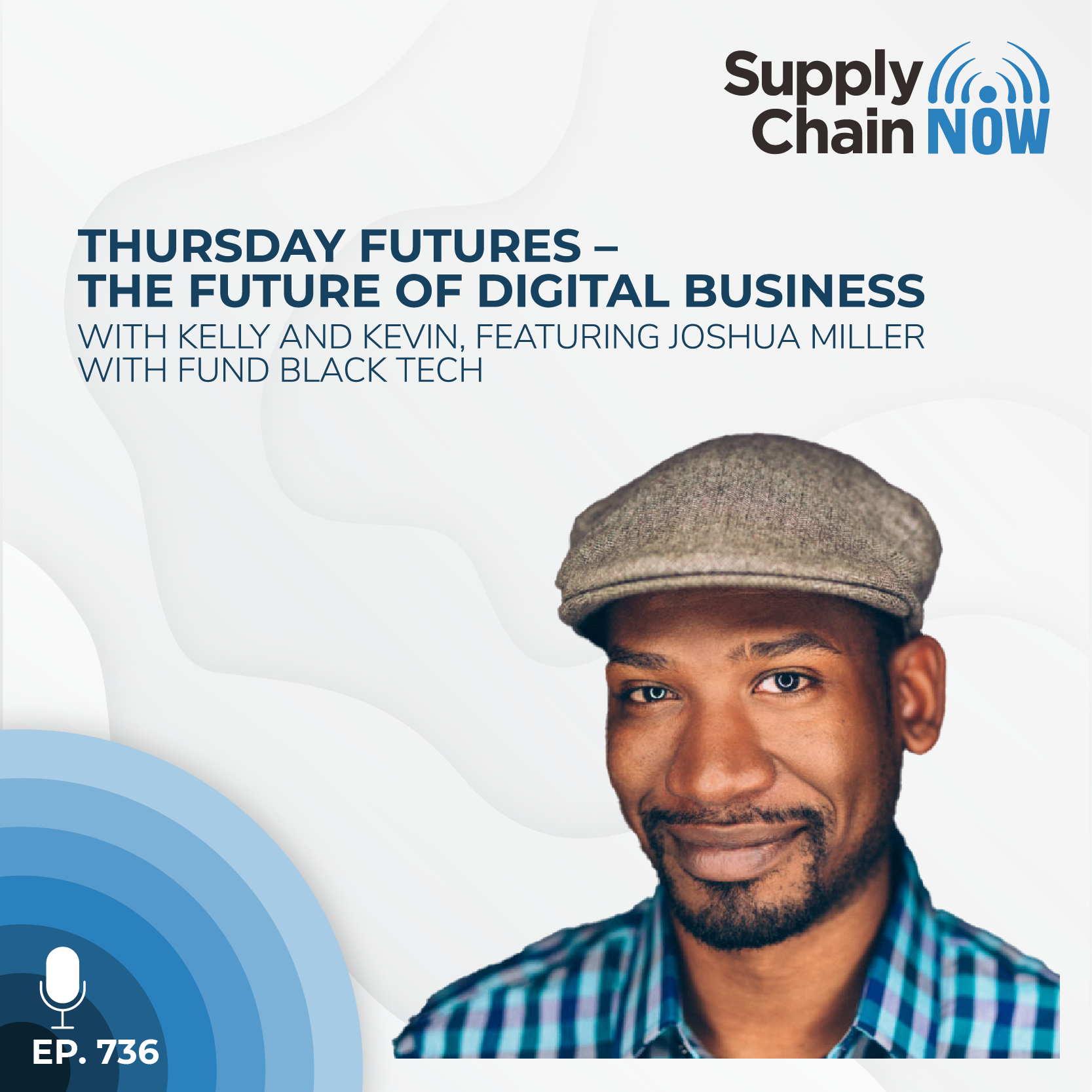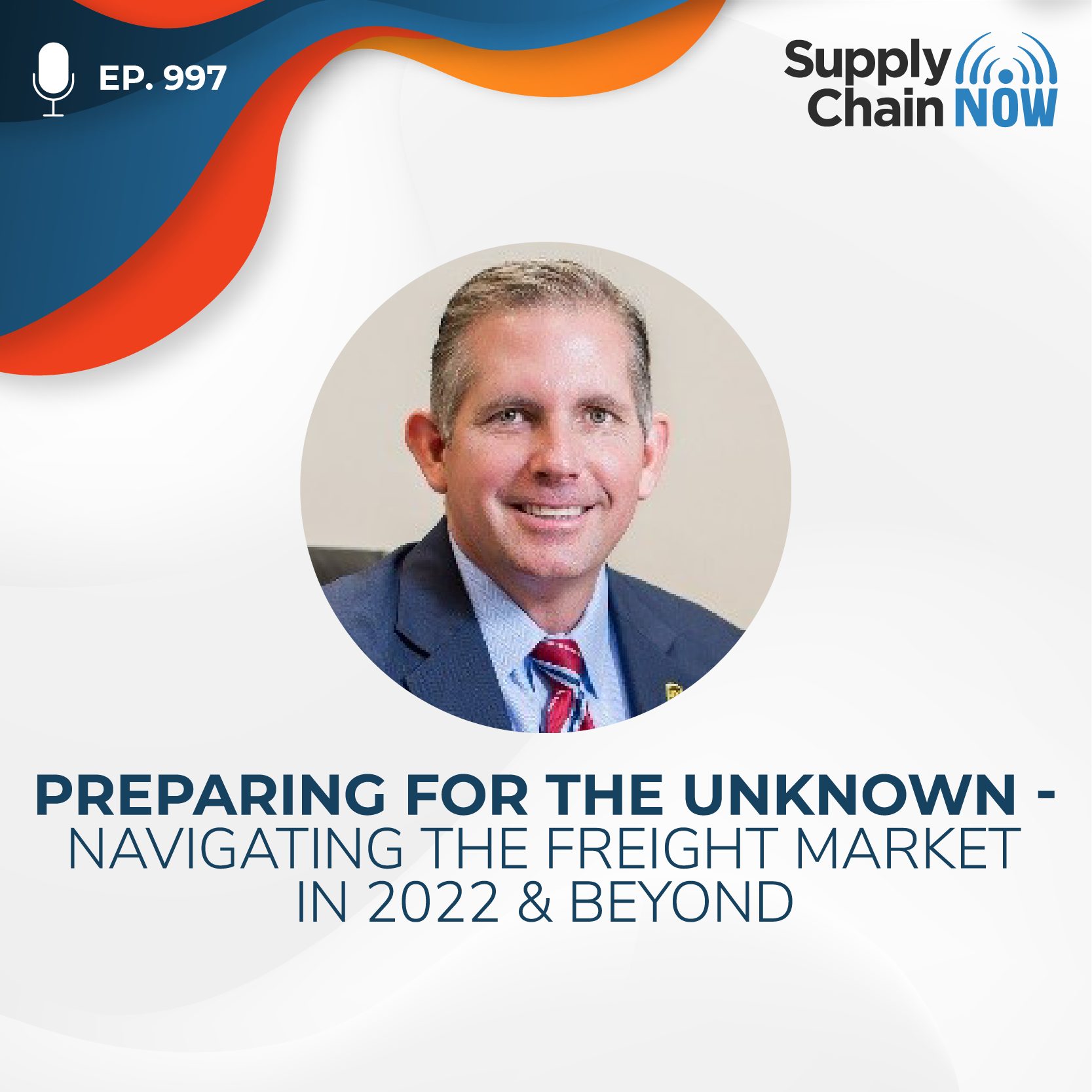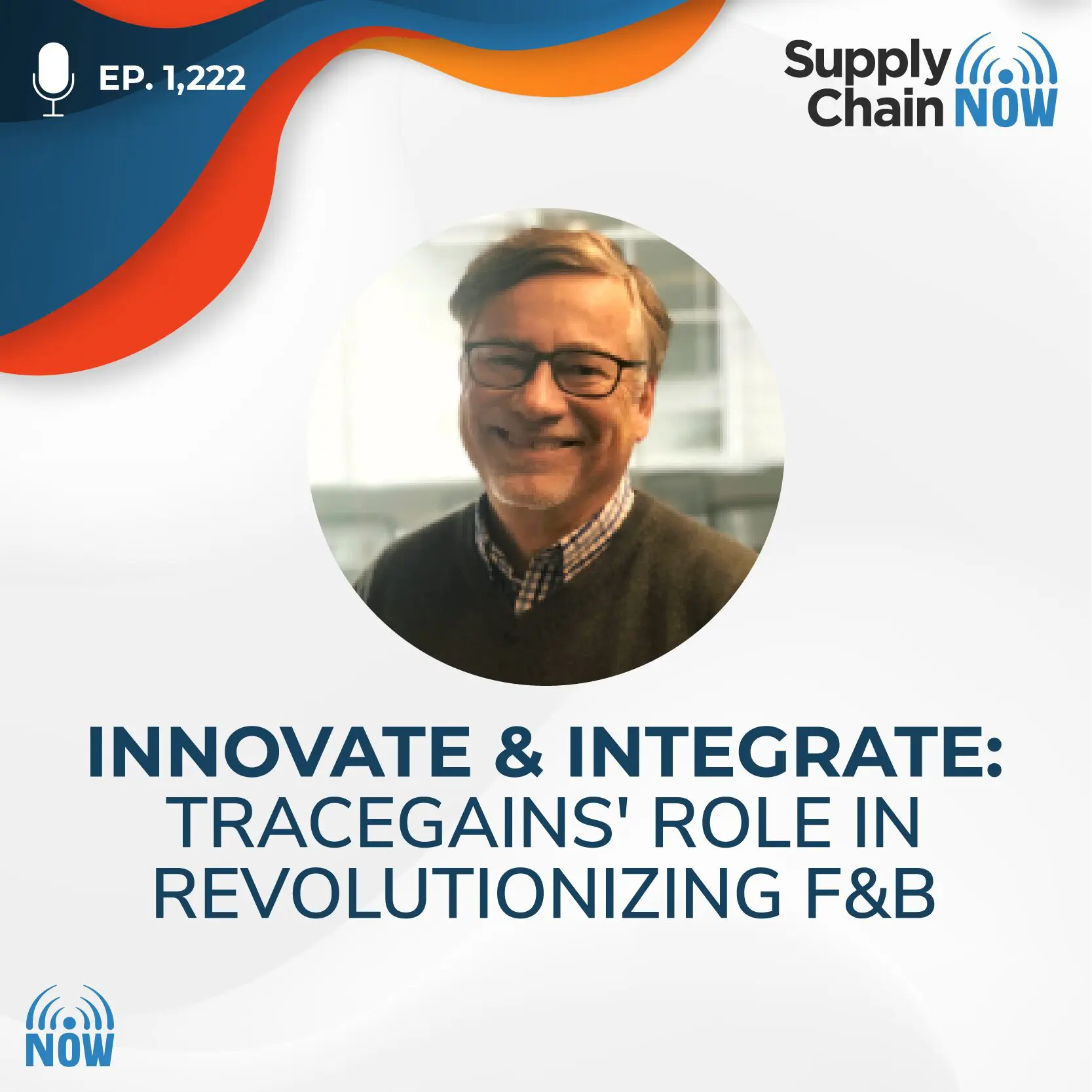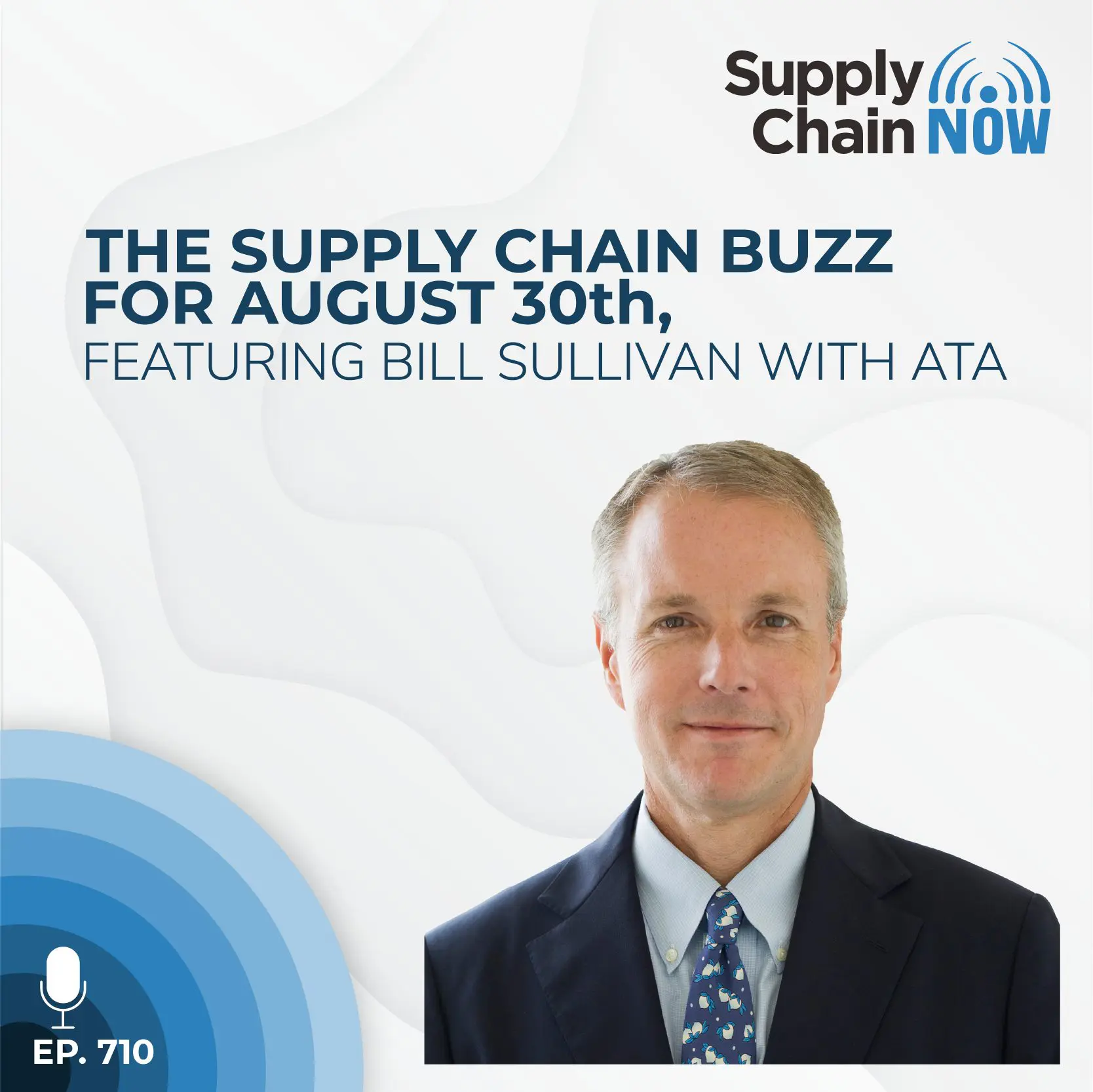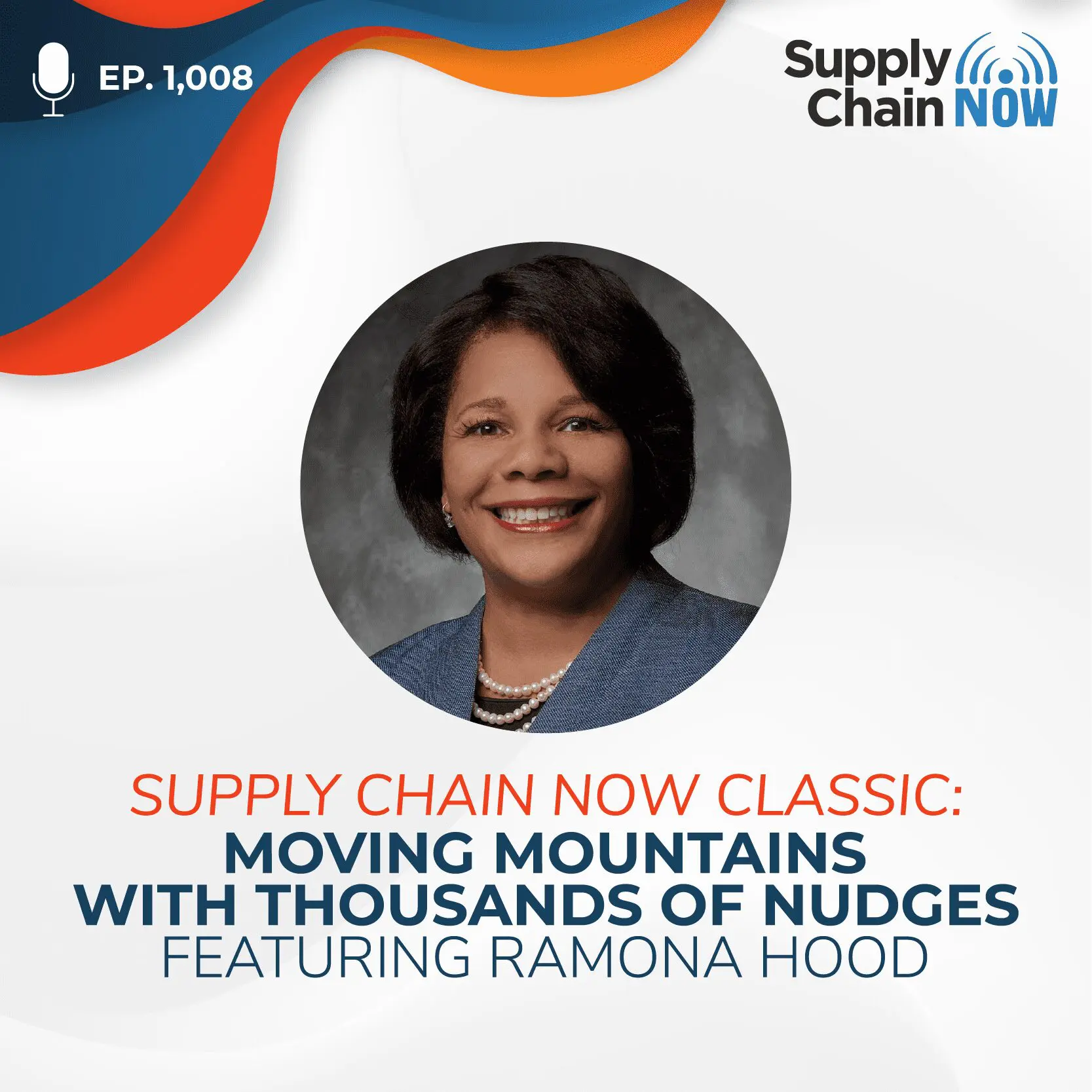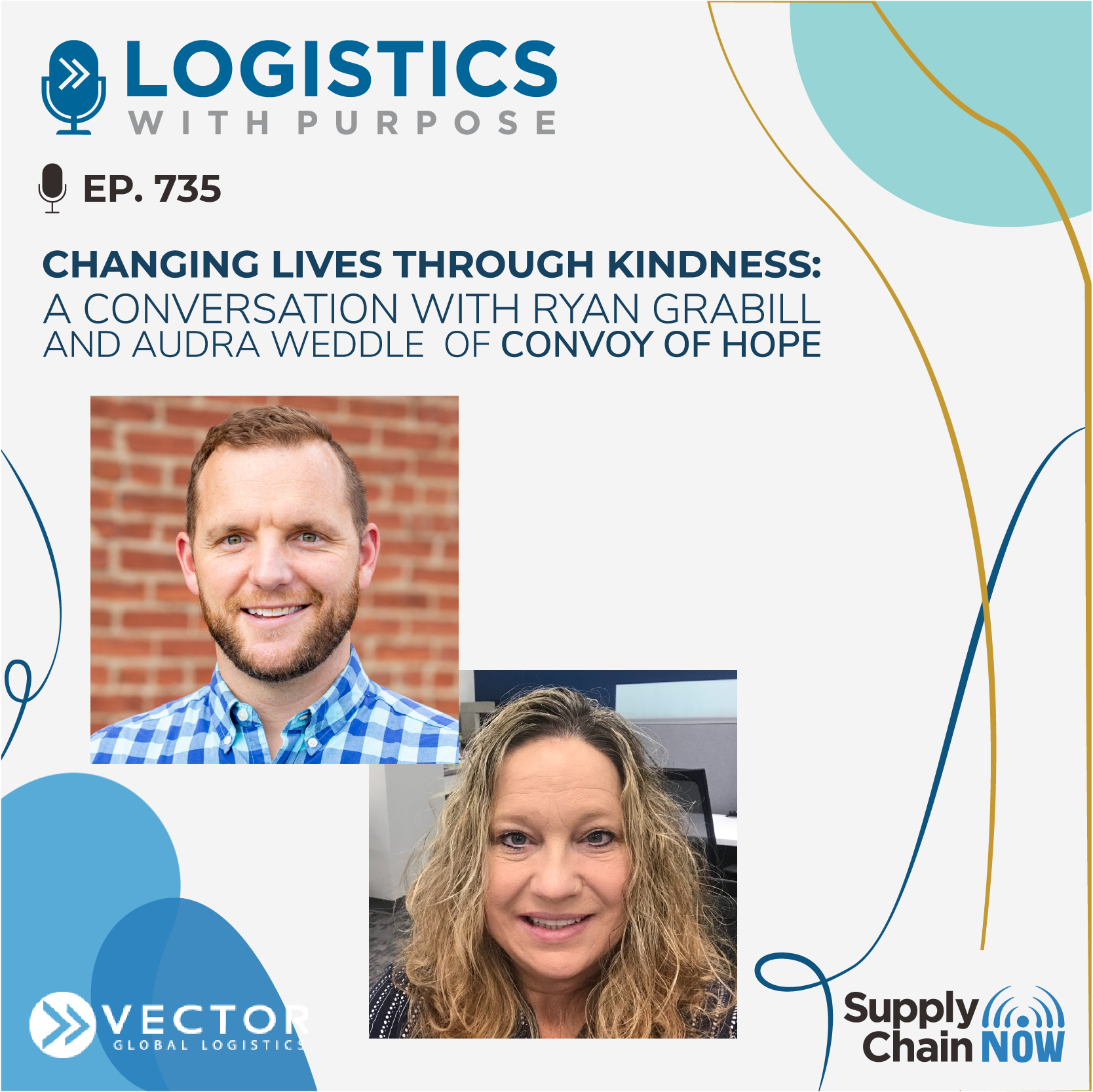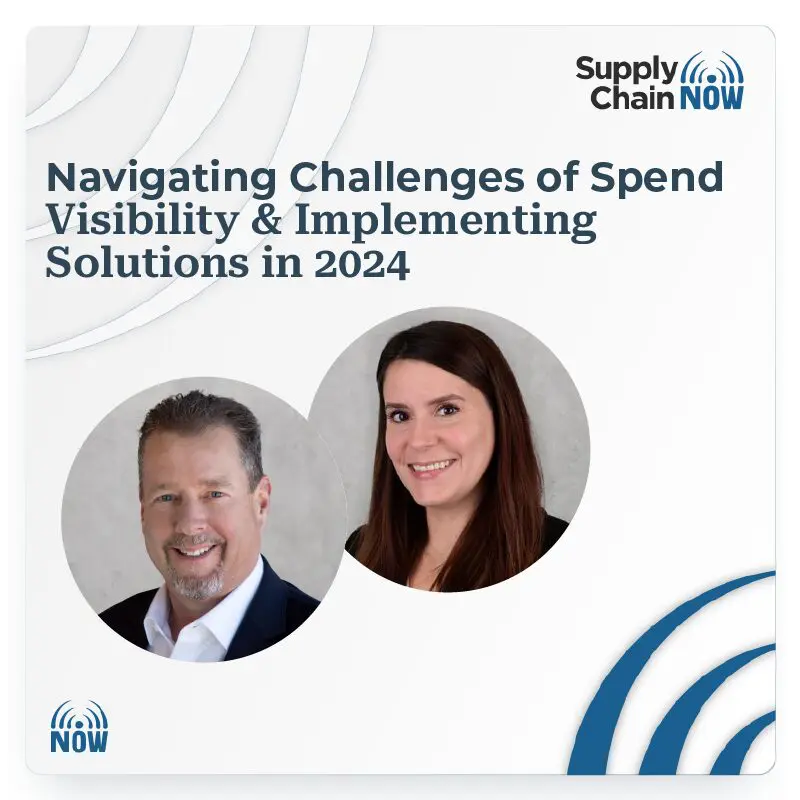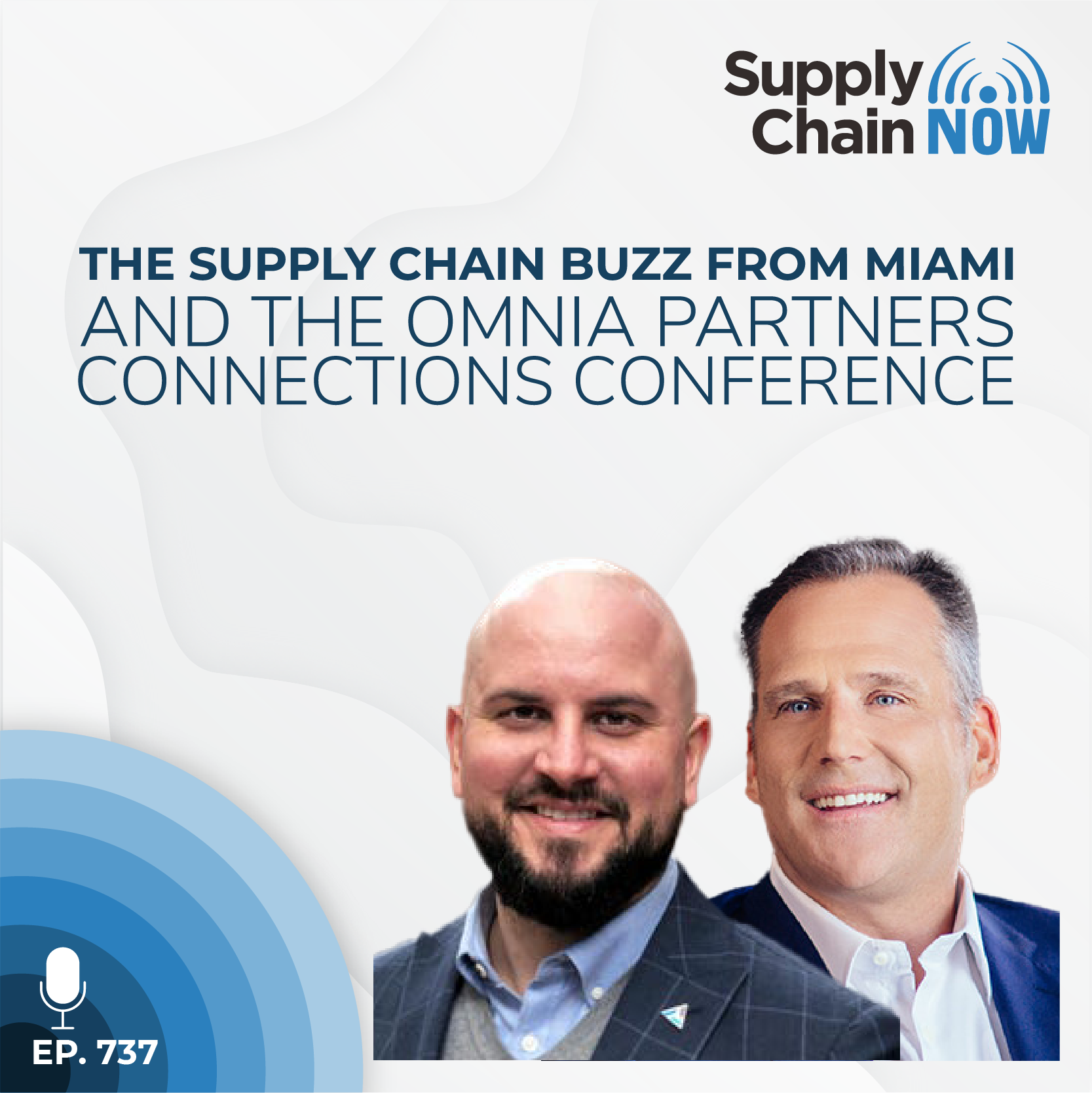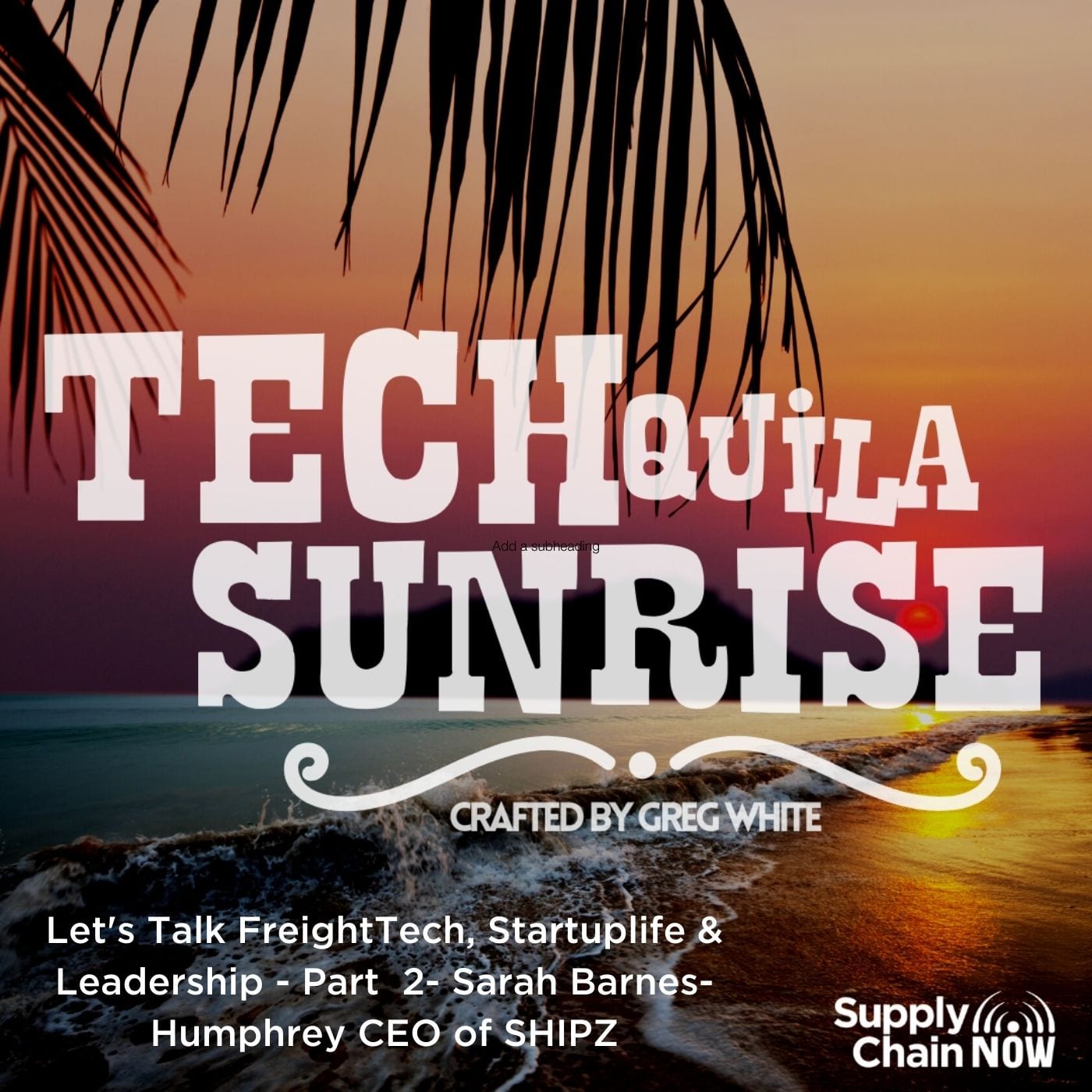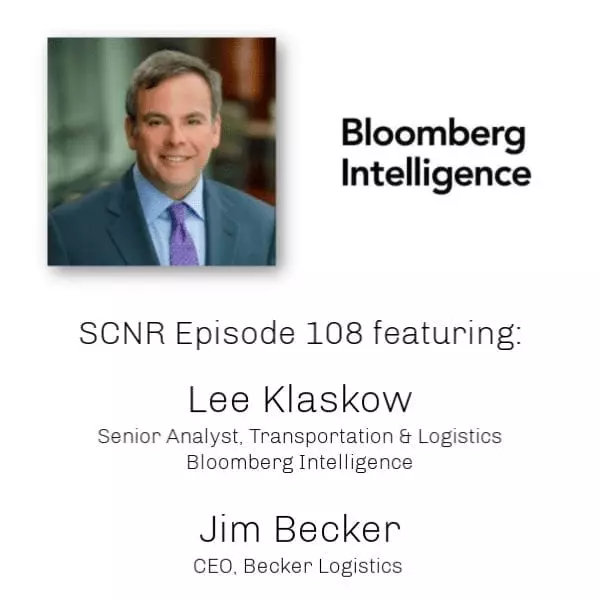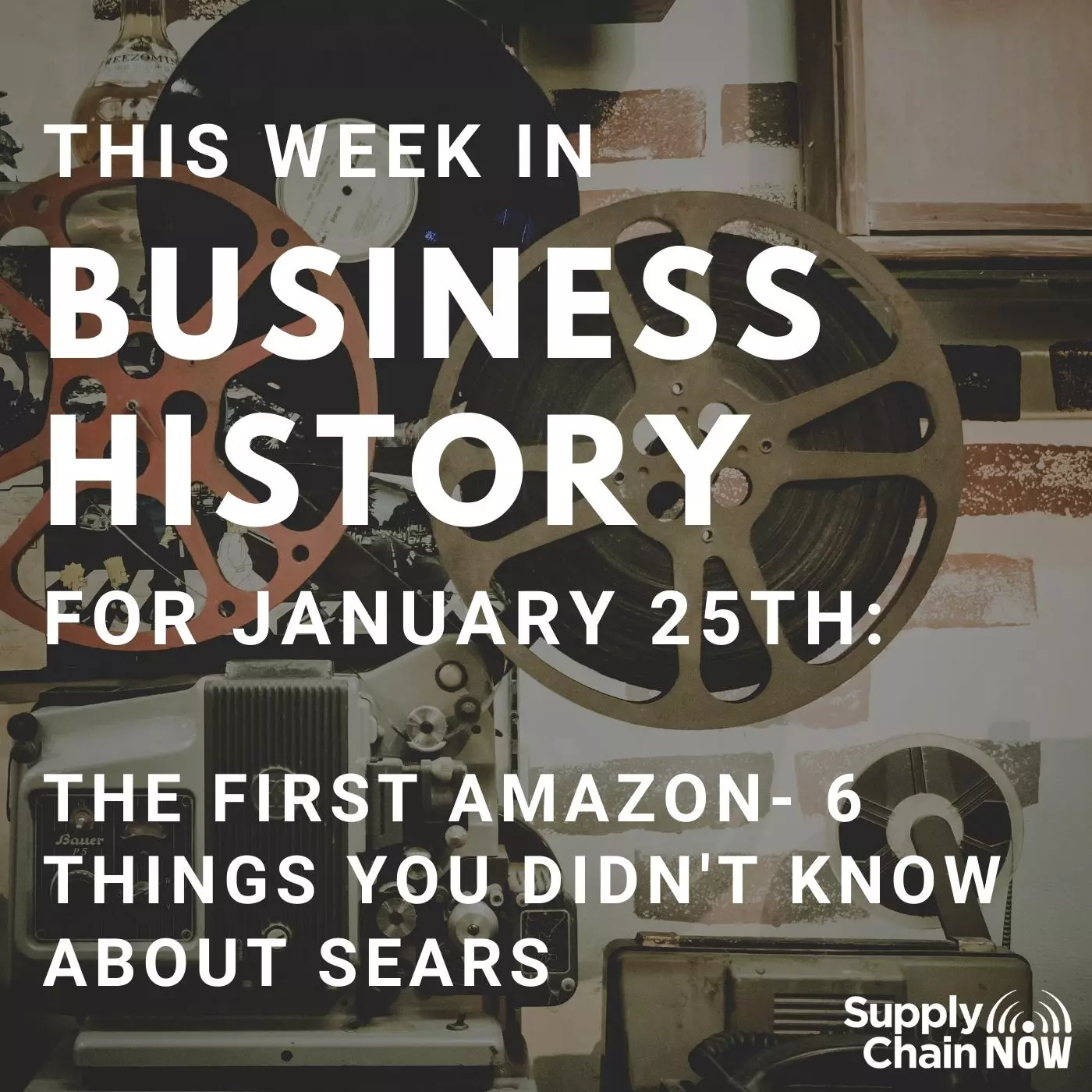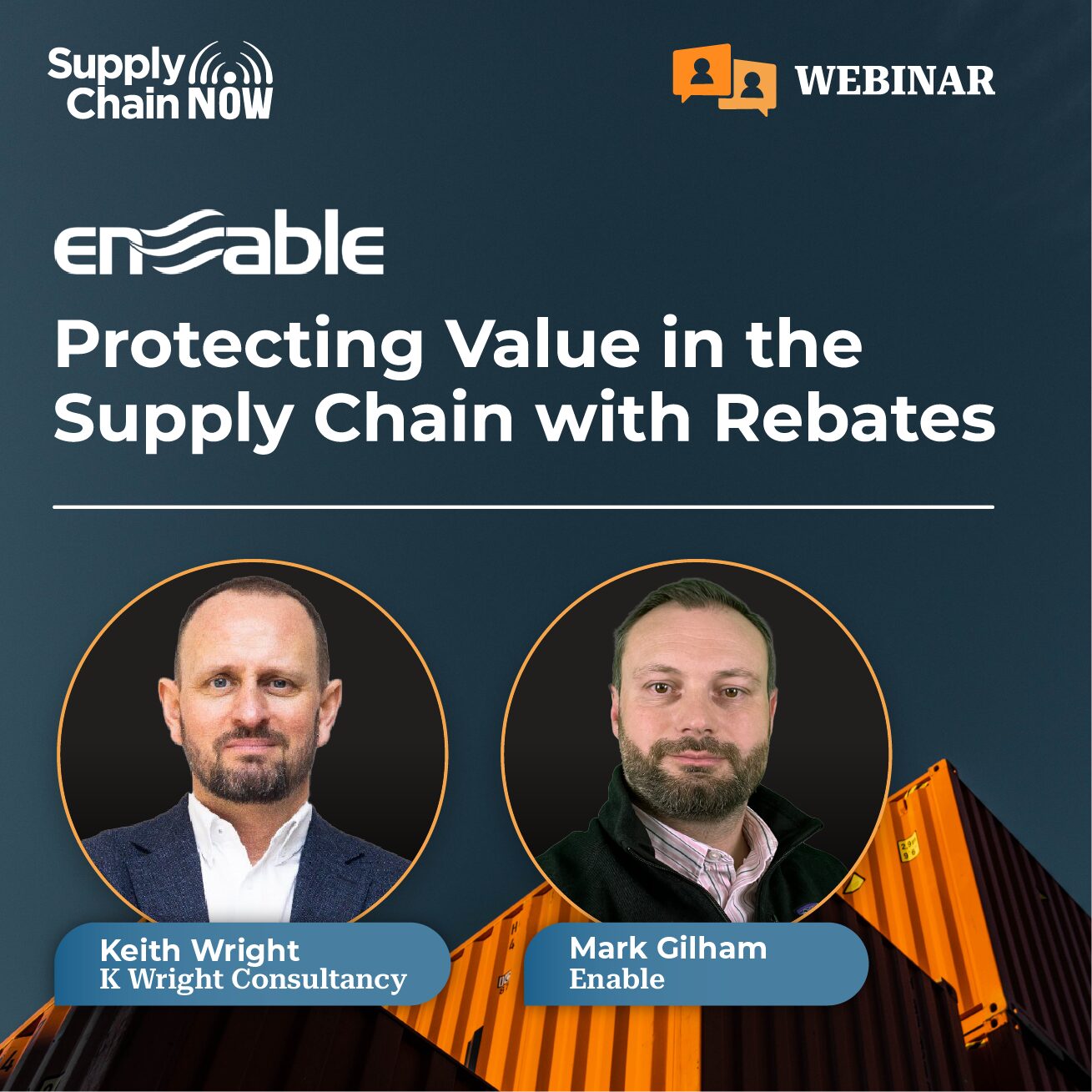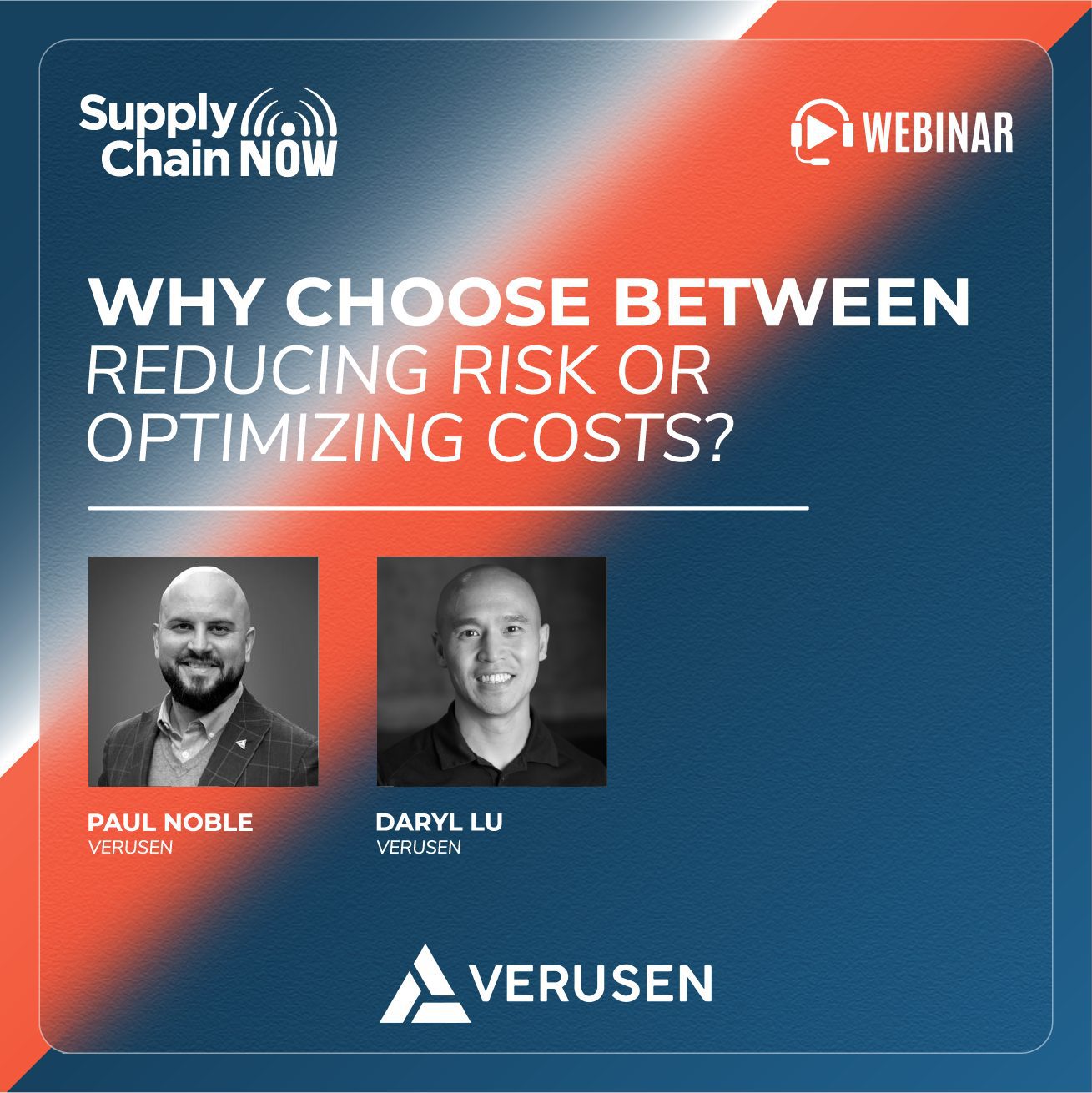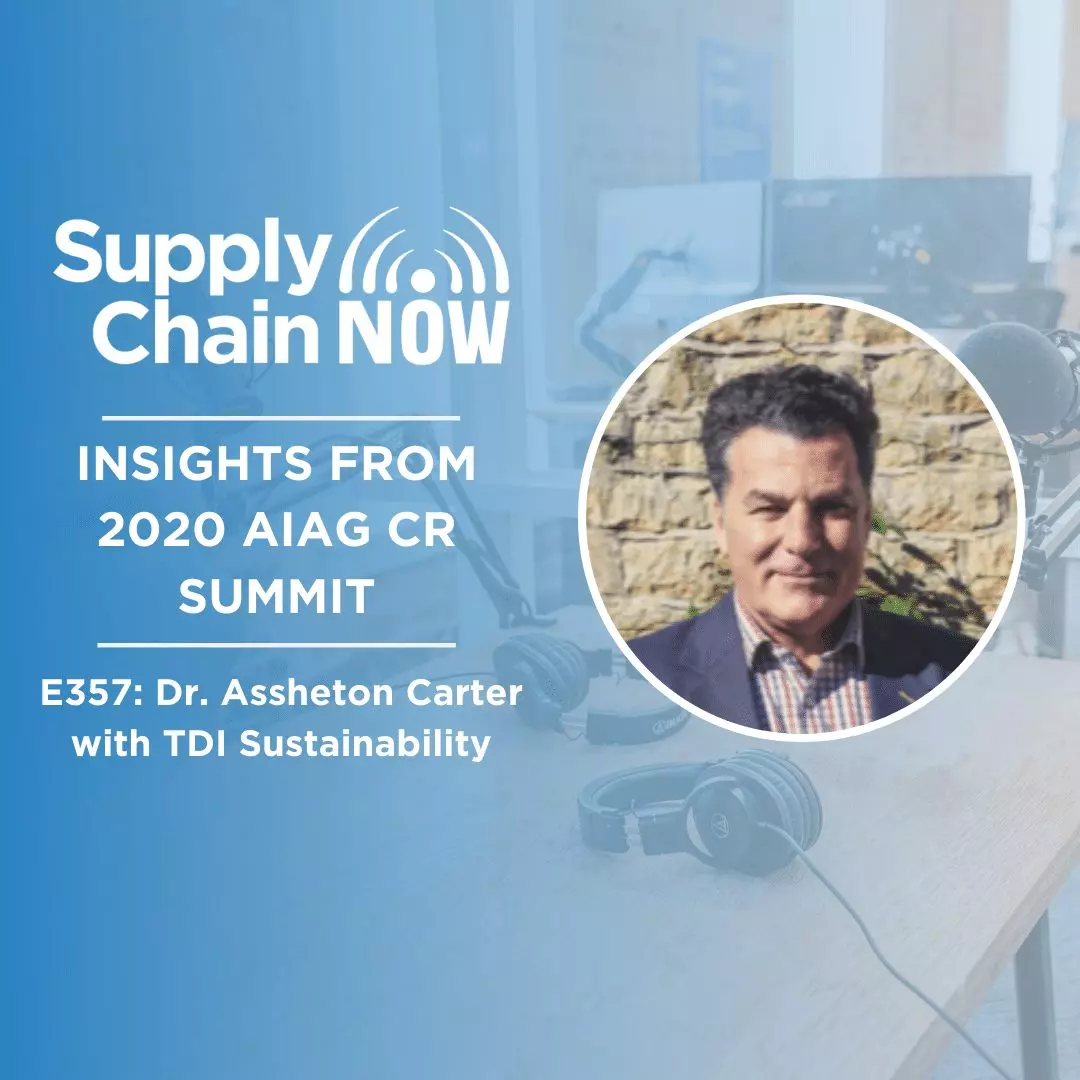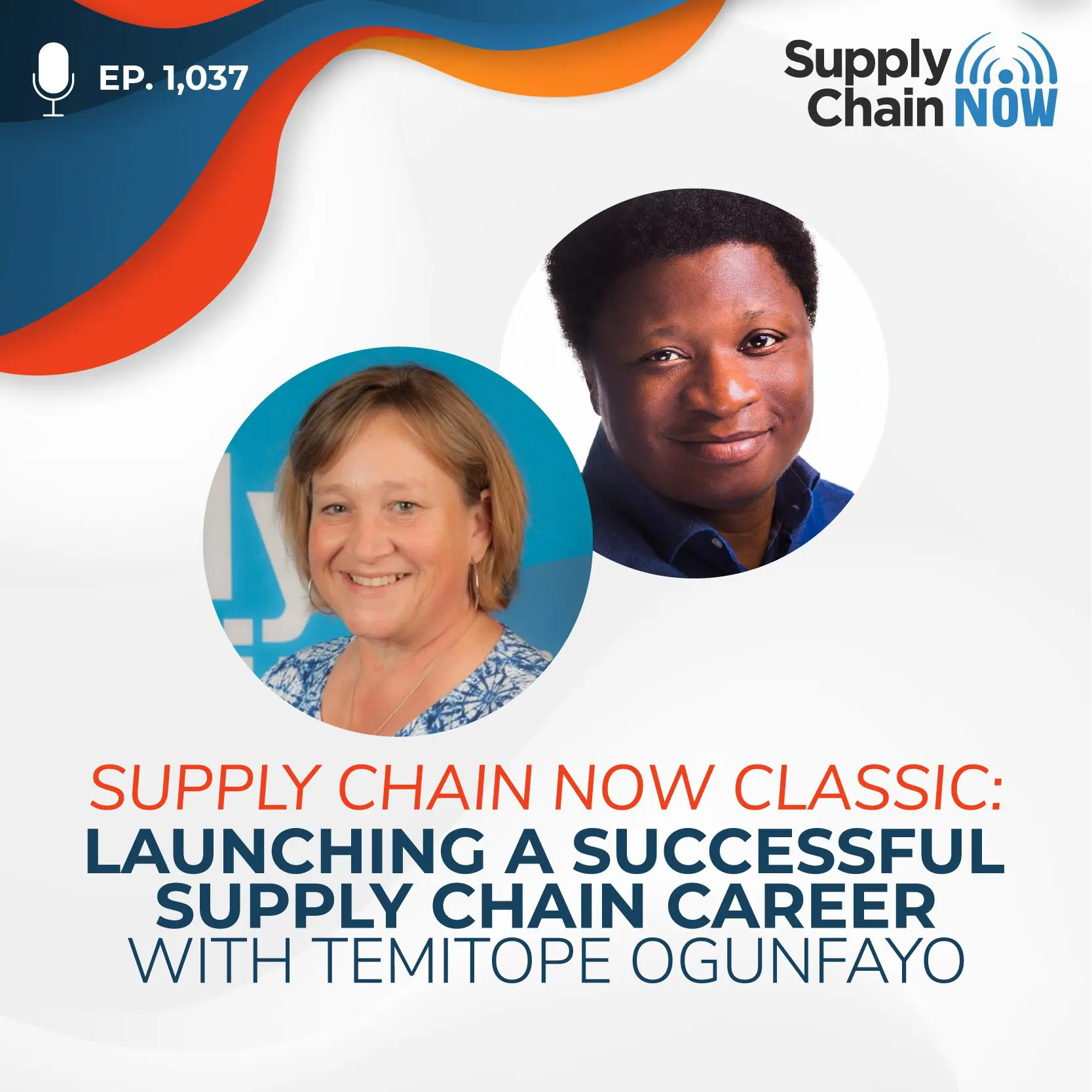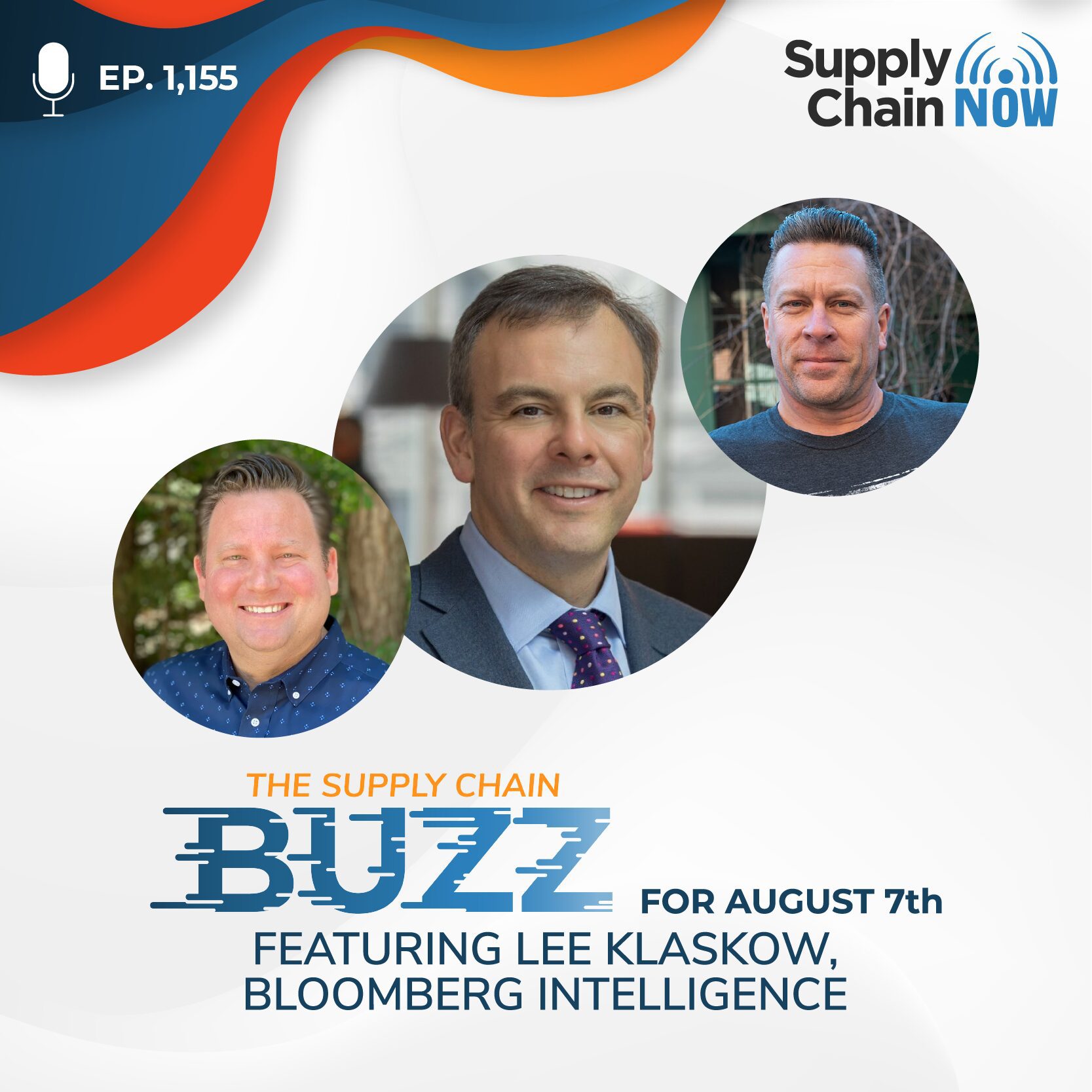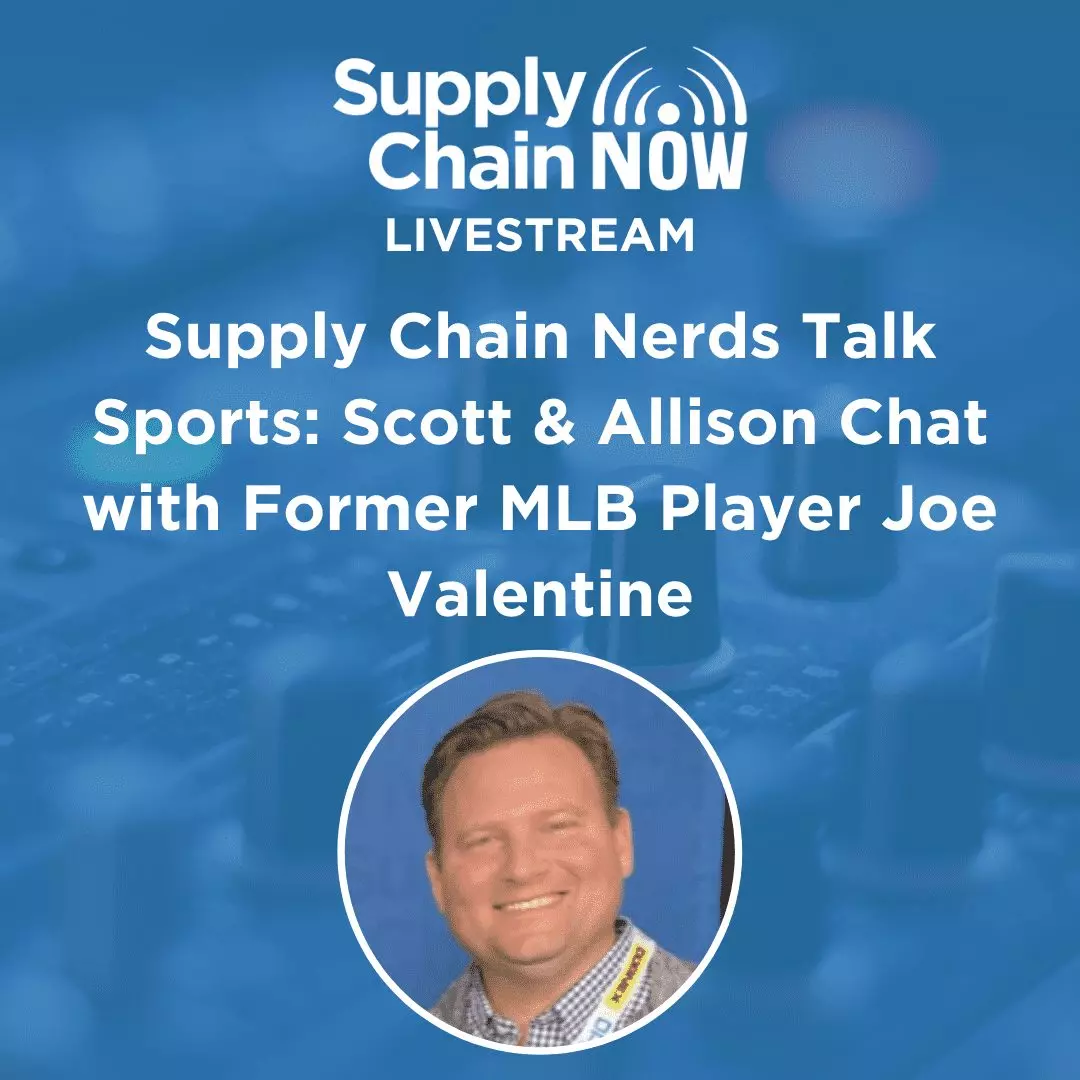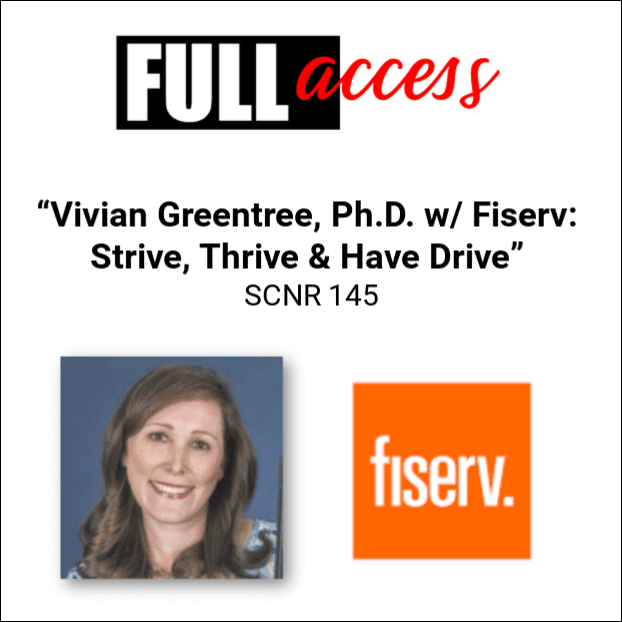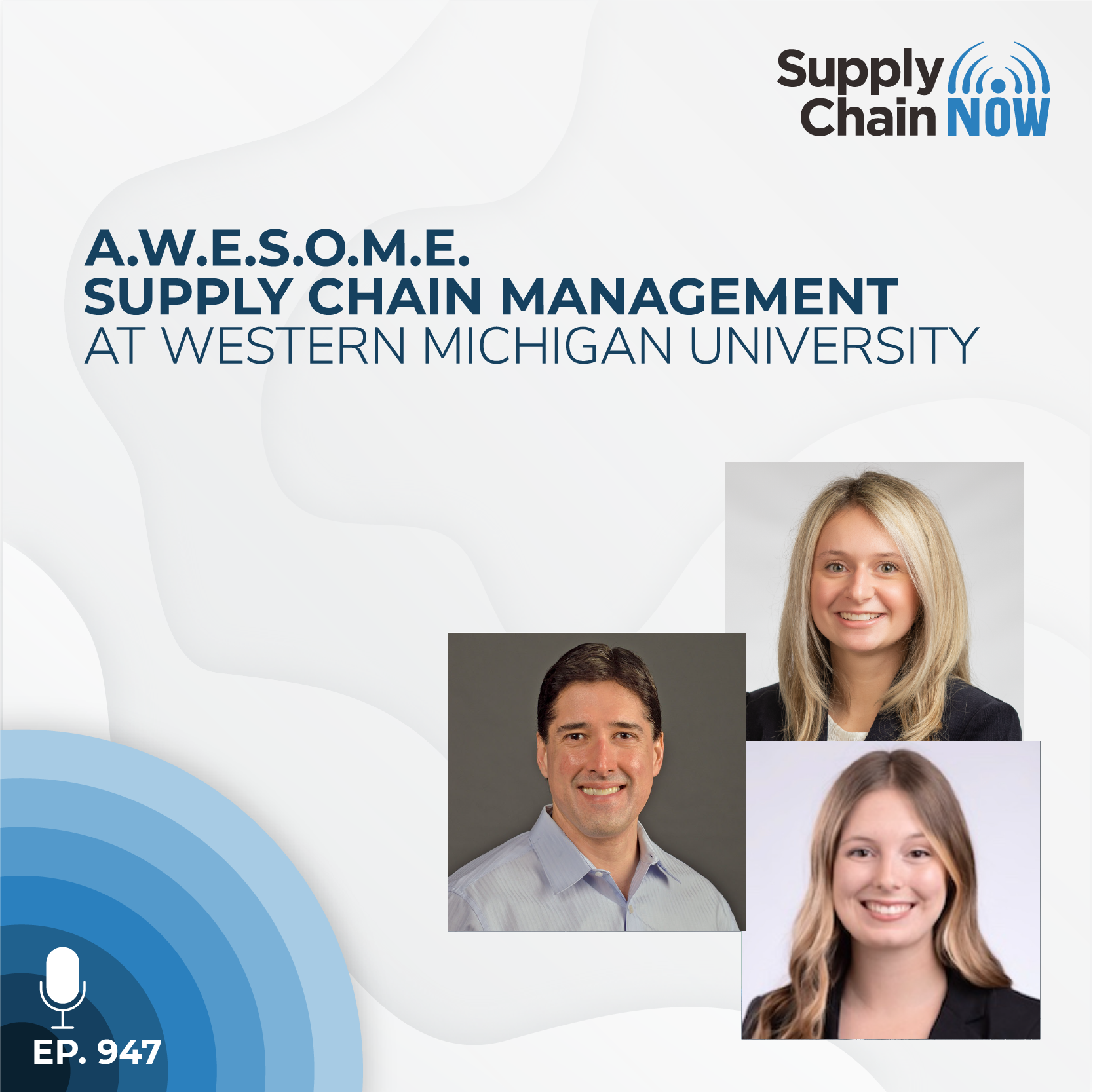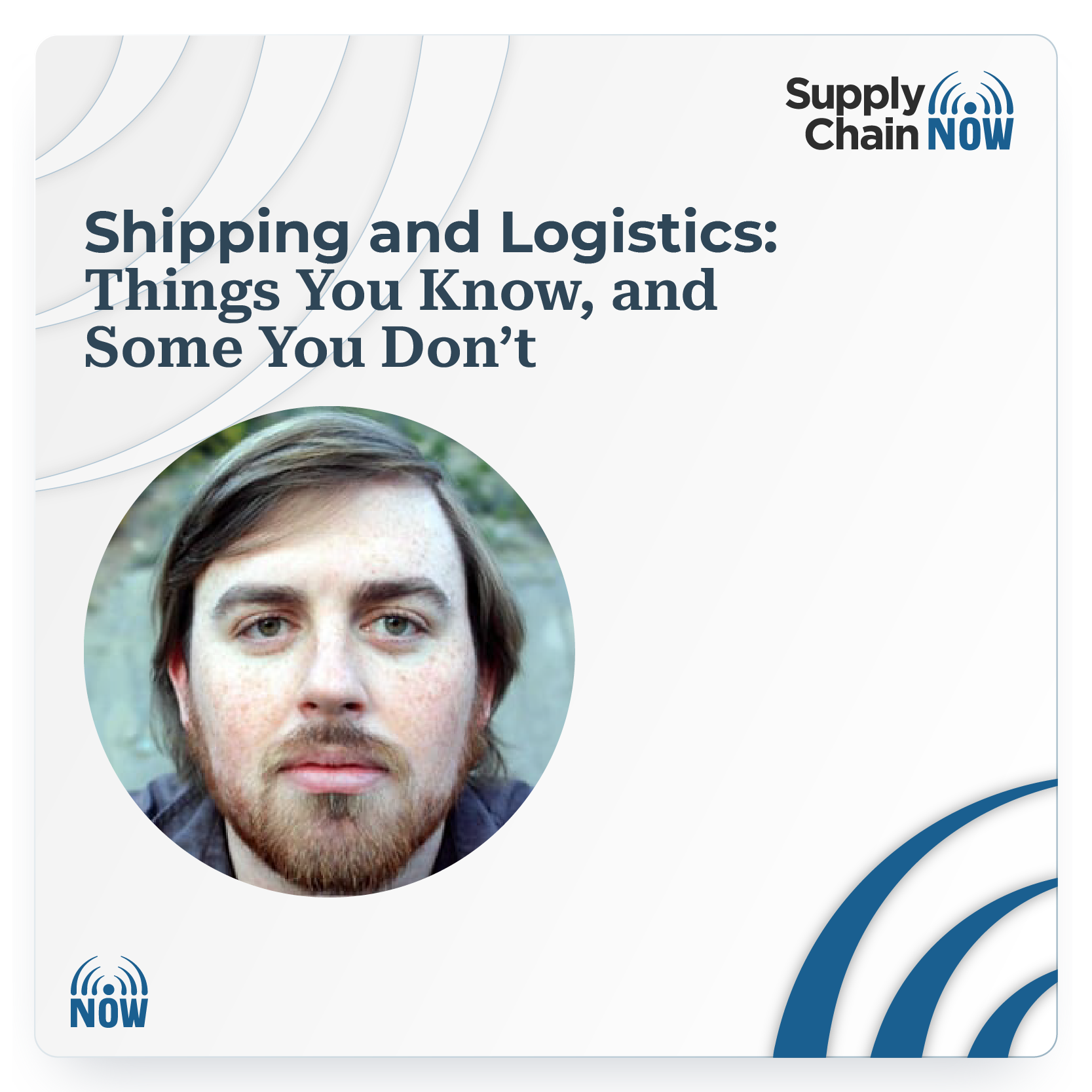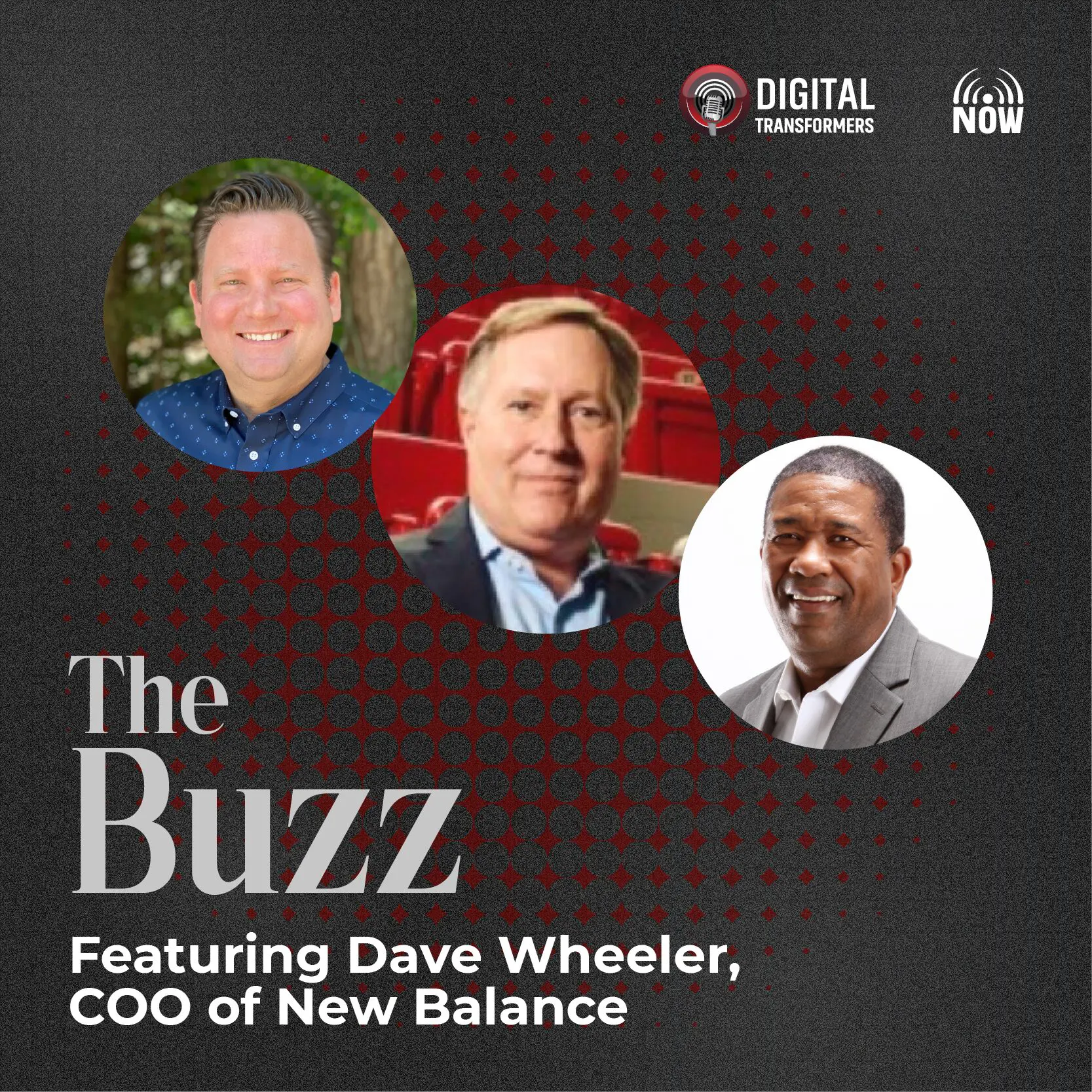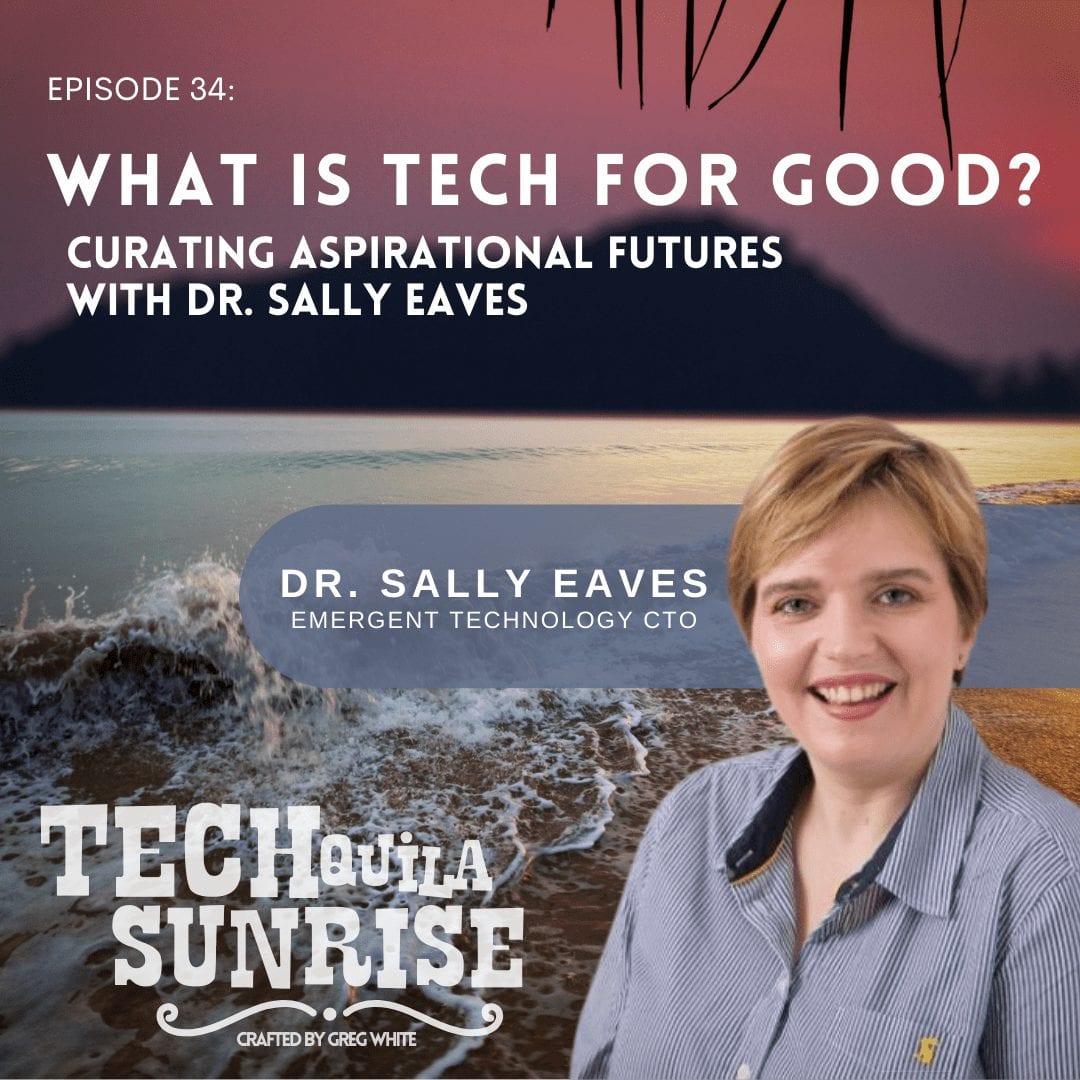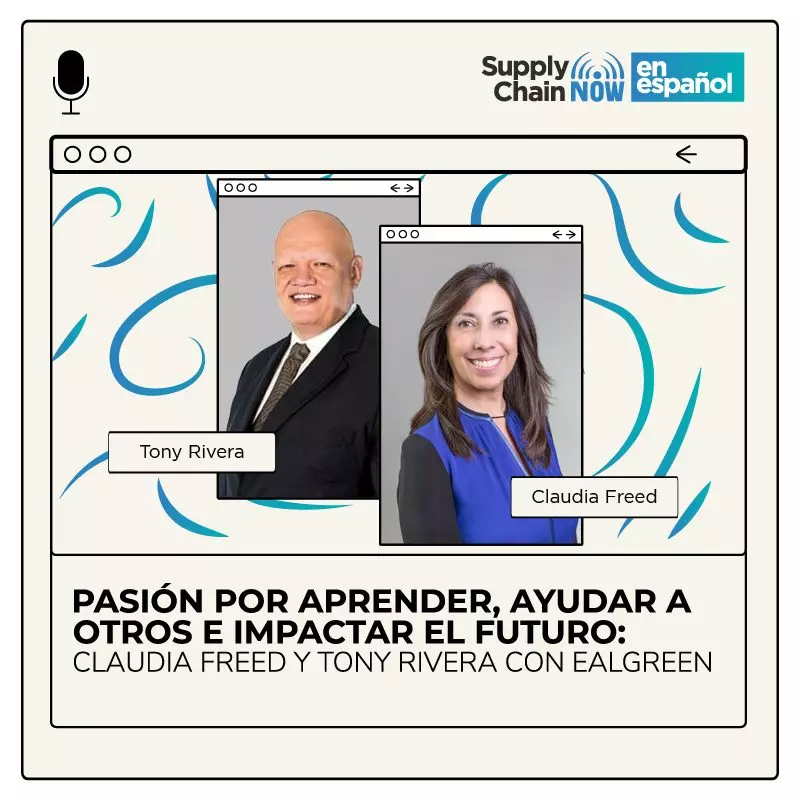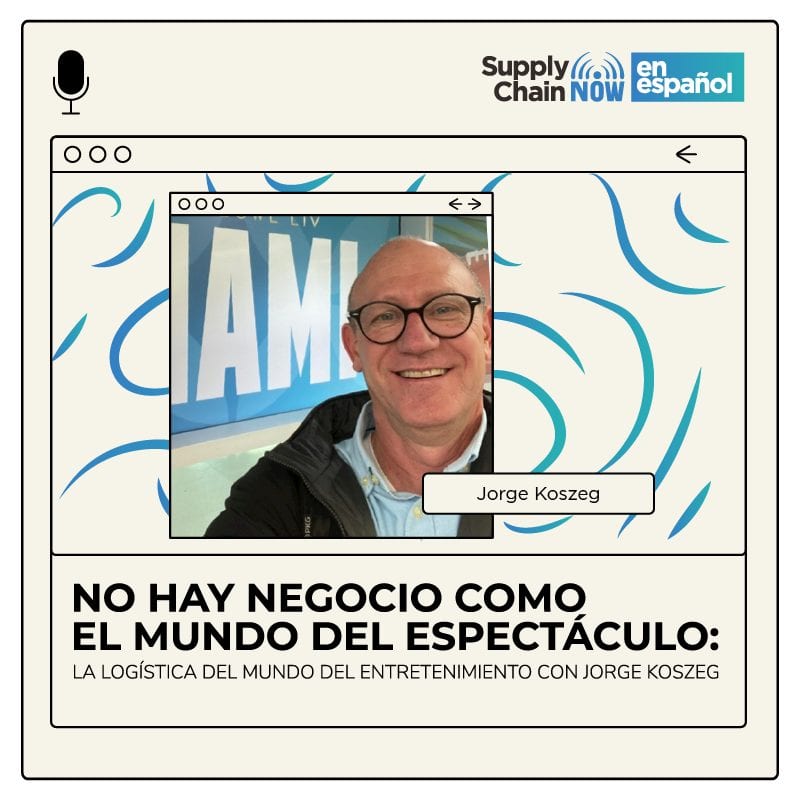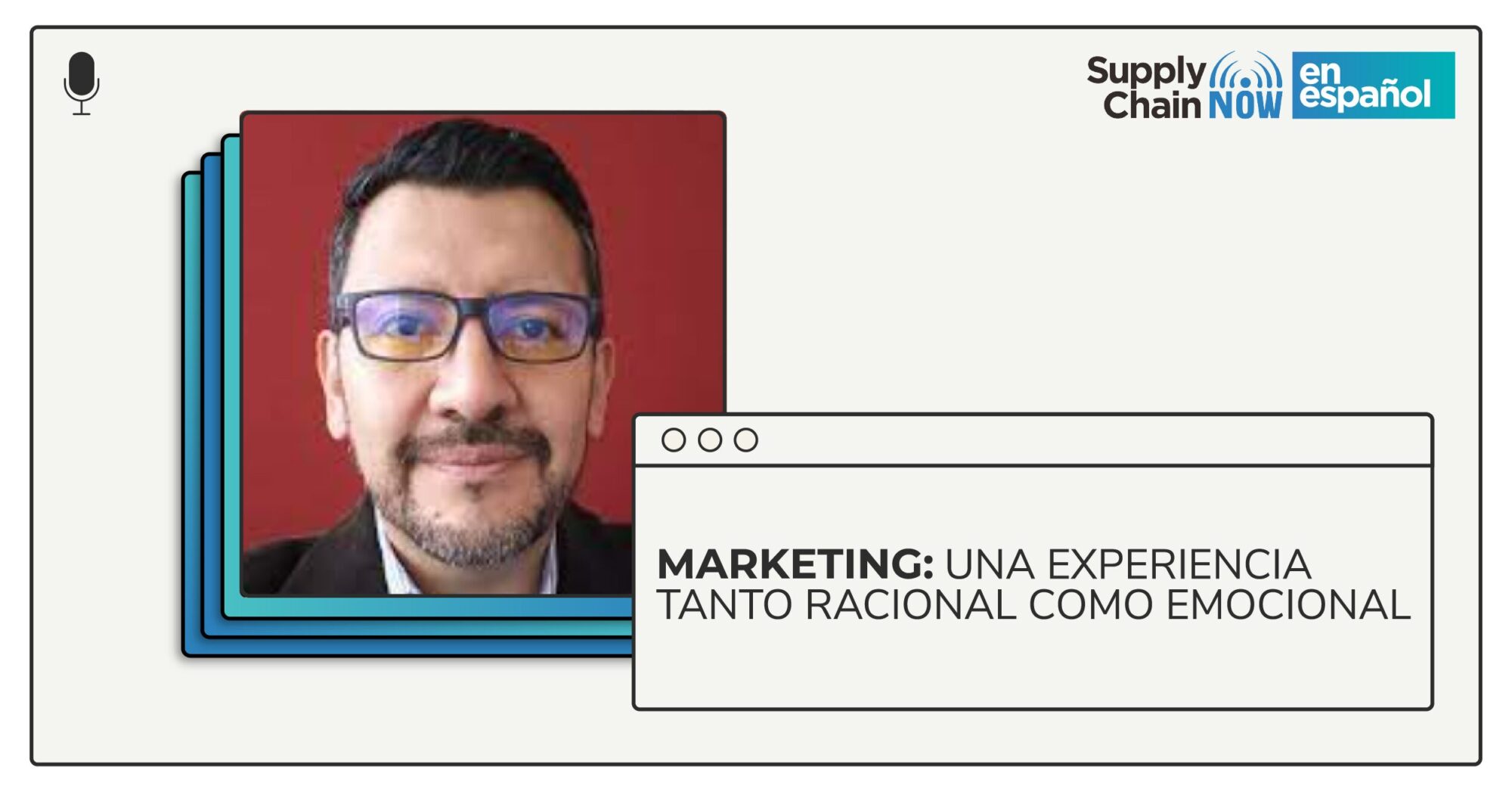
Genera una experiencia de compra particular a las necesidades de cada cliente y con el mejor servicio para que siempre seas su primera opción.
-Rafael Aparcio
Resumen del Episodio
Enrique Alvarez da la bienvenida a Rafael Aparicio Director de mercadotecnia y consultor independiente, donde nos comparte su expertise en la evolución del marketing en diferentes industrias como la automotriz y la docencia. Conoce sobre la importancia de la experiencia de compra y el servicio al cliente. Asi como los pasos para poder lograr un buen marketing para obtener un retorno de inversión.
Transcripción en Español
[00:00:01] Bienvenidos a su Play Now en español, presentado por Better Global Logistics y Supply Chain Now. Este es el programa que damos a las personas de habla hispana en la industria logística en constante cambio. Únete a nosotros mientras descubrimos las historias inspiradoras de nuestros huéspedes y aprendemos de su experiencia colectiva. Nuestro objetivo no es sólo entretenerte, sino fomentar tu pasión por esta emocionante industria y apoyar tu desarrollo profesional en el camino. Y ahora, aquí está el episodio de hoy de Supply Chain Now en español.
[00:00:34] Muy buenos días y bienvenidos a otro episodio de Supply Chain Now en español. Mi nombre es Enrique Álvarez y hoy tengo el gusto de presentarles a Rafael Aparicio. Rafael es el director de marketing en la Universidad Iberoamericana de Puebla. Rafa, muchísimas gracias por estar aquí con nosotros. ¿Cómo te va?
[00:00:52] Un gusto, Enrique. Muchas gracias a ti y a toda tu audiencia. La verdad estoy bastante contento y un honor poder participar en este podcast que tienes este a tu cargo.
[00:01:03] Pues muchísimas gracias. El placer es todo nuestro y bienvenido. Creo que va a ser una conversación muy muy interesante dada tu experiencia personal y laboral, pero empecemos un poquito este hablando de ti, de de tu infancia, de tus primeros años, de dónde eres, dónde naciste, etcétera.
[00:01:25] Sí, claro Enrique, la verdad te puedo decir muy resumido que tuve una infancia feliz. Soy originario de la Ciudad de México, de por allá del año 1980, pues es cuando cuando llego a este mundo y la verdad este como te lo comentaba, no todo lo que es la parte de mi infancia adolescencia, incluso cuando termino lo que es la preparatoria en La Salle allá en México y me mudo para lo que es la ciudad de Puebla en la Universidad de las Américas, Puebla. La verdad pues he tenido, te digo buenos, malos momentos como todo niño adolescente, pero la verdad contentísima. Una familia que amo, que adoro, mis padres que aún permanecen aquí conmigo presente es mis dos hermanas, claro esté. Y la verdad estoy muy contentos ahorita ellos se encuentran en Canadá arrancando los cuatro y pues vamos mamás de visita por allá entonces.
[00:02:24] Oye y Puebla muy bonito una una ciudad este me dijeron en los 80 y 90 es una ciudad muy diferente a la que es ahora. Se ha vuelto una capital de industrial muy importante, sobre todo en la rama automotriz. Cierto.
[00:02:39] Definitivamente. Enrique, fíjate que cuando yo hago lo que es el movimiento en la Ciudad de México a Puebla, en ese entonces.
[00:02:46] Ya tenía en ese momento.
[00:02:48] 17 años.
[00:02:50] Ah bueno, ok, ya, ya que habías acabado la primaria, etcétera.
[00:02:54] Sí, primaria, secundaria. La prepa todavía la hice en La Salle, allá en México, en la de Benjamín Franklin, y de ahí es cuando aplicamos para una beca. Me la otorgan aquí en la UCLA y es que decido moverme porque ya también mi familia estaba radicando aquí en Puebla. Entonces digo bueno, vamos a aprovechar estos últimos años de estudio, estar con ellos, porque mi intención era termino lo que es la licenciatura y de ahí quiero ir hacer un viaje a Estados Unidos, Europa, algún lado. Entonces dije vamos a aprovechar la a la familia y en ese entonces apenas Puebla iba creciendo realmente uno que viene de la Ciudad de México y llega a una ciudad pues más calmada, con un ritmo diferente, pues si lo notas no este palpablemente, pero la verdad es una ciudad hermosa, puebla, que tiene todo. Desde que llegué siempre me ha tratado con los brazos abiertos y y estoy enamorado de la ciudad. Tiene como te digo, de detalles de gastronomía, lugares, pueblos mágicos, las mismas personas, lo que también este me ha tocado lograr.
[00:04:00] Gracias Gran historia Puebla, definitivamente una gran ciudad y bueno para todos los que nos están escuchando fuera de México, país en todo Latinoamérica. Bueno, Puebla es una de las ciudades más importantes de México, está relativamente cerca de la capital del país, a unas dos horas.
[00:04:19] Un poco menos o.
[00:04:20] Menos y bueno y muy recomendable para cualquiera que quiera visitarla, porque como decía Rafa, tiene mucha historia. Volviendo un poco a ti y a tu pasado, bueno, te mueves a los 17 años, te vas a la universidad en Puebla con una idea y un plan de vida muy concreto. Creo que tenías eso muy claro. Tienes. ¿Nos podrías compartir alguna experiencia a lo mejor que tuviste en esa etapa de tu vida? Este que te impulsó a llegar hasta donde estás, que te fue orientando hacia tu camino tan exitoso que tuviste después.
[00:04:56] Sí, claro que sí. Enrique, Fíjate que una de las. De los sucesos más importantes en esta etapa universitaria en la burla aquí en Puebla fue cuando junto con un profesor de Planeación Estratégica, que posteriormente fue mi asesor de tesis, logramos fundar lo que es una asociación que aún sigue vigente, que se llama Arts a RX. Ahí dentro de la Universidad de las Américas. Y la idea era por reclutar no universitarios, alumnos de posgrado que tuvieran esta intención y este conocimiento, no de querer ir a estudiar a otro país, conocer nuevas culturas, el empaparse de nuevo conocimiento. Entonces, realmente esta Fundación Asociación ARCS realmente fue un parteaguas porque eso me permitió conocer, pues en este caso perfiles muy similares al mío que tenían esas mismas ideas que nos permitió incluso juntarnos para hacer un examen que te piden allá en Estados Unidos antes de ir a ser un FBI o una maestría en administración, que es el llamado. ¿Entonces nos juntamos, estudiamos en verano y logramos pasarlo todos, no? Entonces eso creo que me marcó definitivamente para poder hacer un grupo de networking muy importante a nivel universitario. Obviamente tener la experiencia de fundar una academia, de dirigirla, de ser el cofundador, pues eso también te va abriendo diferentes puertas. Además de que en su momento ya había tenido la oportunidad de ir a hacer un intercambio a Francia durante todo un verano, como parte obligatoria que te pide la universidad y sobre todo en la carrera de administración de empresas. Y posteriormente también tuve ahí este durante los cuatro años y medio que estuve la oportunidad de ser beneficiado por la beca Jenkins del 70% dos. Prácticamente estuve metido en diferentes proyectos universitarios a sucesiones y eso te cambia el panorama y sobre todo te da un buen currículum universitario para que cuando te enfrentes a a lo real que tenemos aquí afuera, realmente lo puedas afrontar de la mejor forma y con seguridad sobretodo.
[00:07:23] Oye, no, de hecho una muy exitosa carrera este como estudiante. ¿Y bueno, una gran idea de esta fundación a RX que todavía existe verdad? La asociación a RX, ahí vamos a poner la liga para que los que están escuchándonos también y les interese saber un poco más, también puedan tener acceso a esta información. Y bueno, sigue entonces desarrollando profesionales, sigue apoyándolos con la parte del proceso. Me imagino cuál es el principal objetivo de la asociación para concluir un poco con esta etapa.
[00:07:54] Claro que sí. Enrique E la asociación La Academia Arts Tigo surge con esta necesidad de juntar gentes que se quieran comer el mundo, que se pudieran apoyar, pero sobre todo hacer este networking de que Okey, pues yo te puedo compartir mi experiencia cuando yo ya hice mi examen o te puedo compartir con quien tienes que acercarte o este tipo de beca. ¿Este tipo de apoyo surge no como este tema de aliados si lo queremos ver así desde una estructura universitaria y posteriormente pues se evoluciona no? A tener pues este apoyo para te digo, tanto los chicos universitarios o los que están haciendo un posgrado y quieren irse a estudiar al extranjero, pues muchas veces uno con toda la información que tenemos en internet lo buscamos y vamos viendo, pero que mejor cuando alguien no ya lo transitó. ¿Un grupo de personas te apoyan, te dan consejos y sobre todo tienes esa tranquilidad y esa seguridad de que pues son personas como tú, como yo, que pues nos vamos a estar ahí apoyando no?
[00:09:01] Totalmente. Y bueno, me imagino que esa necesidad se ve incluso más importante. Ochentas noventas todavía no teníamos tampoco la conectividad que tenemos ahora, pero bueno, muchísimas gracias por compartir esa parte de tu trayectoria. Cambiando ahora un poco la parte profesional. Cuéntanos de te gradúas y bueno, veo que gran parte de tu carrera ha sido en el sector automotriz, un sector sumamente interesante en todo el mundo y en particular en México. ¿Con todo lo que está pasando, nos podrías platicar un poquito más de tu evolución profesional y sobre todo de la industria automotriz en México?
[00:09:40] Por supuesto Enrique, fíjate que cuando yo termino la licenciatura en Administración de Empresas en la UDLA, aplico, hago la tesis sobre una teoría basada en los recursos de la empresa, en la teoría económica que te puede generar o crear ventajas competitivas sostenibles. Pero la dejo. O abierta. Es decir, hago todo el planteamiento teórico que en ese momento, pues no se conocía prácticamente nada en México ni en Latinoamérica, toda la literatura inglesa. Y a partir de eso pues surge y llega el cambio de rectores. En ese momento llega la doctora Nora Lustig y manda una convocatoria para posgrado y dice vamos a estar entregando tres becas de 100% de posgrado para aquellos que durante el verano del 2002 apliquen un proyecto tipo clases y a partir de la evaluación y que lo hagamos, pues no vamos a determinar quién se llevará la beca del 100%. Aplico con mi proyecto de tesis la continuación que te digo que había dejado abierta y pues se me da la oportunidad no de acceder a esta beca del 100%. Muchas gracias. Y aparte de tener todo pagado lo que eran colegiaturas, cuotas de inscripción, también recibía una manutención. El único, la única restricción que tenía en ese momento es solamente dedícate a estudiar, no puedes trabajar, solamente dedícate a estudiar. Entonces me meto a hacer la maestría en Marketing Negocios Internacionales, ahí mismo en la UDLA y recién un año cumplido de estar haciendo esta maestría, la orla firma un convenio con la Universidad Cristiana de Texas, Texas, Christian University y NYU, en donde los alumnos de esta maestría de marketing podrían llevar a cabo una doble titulación, es decir, estudiar año y medio, México, año y medio, Estados Unidos y a partir de eso obtener los dos títulos por separado.
[00:11:40] ¿Entonces es donde yo levanto la mano y digo es mi objetivo no? Y recién envié y al extranjero, etcétera Aplico y soy aceptado también en esta maestría en administración Internacional haya dicho yo termino año y medio aquí de mis estudios y el medio año que faltaba se revalida con materias de Estados Unidos y viceversa. El año, el medio año con el pacto de Estados Unidos se revalida con con materias aquí en México. Entonces termino también esta segunda maestría ya en Dallas, Fort Worth, y uno de los requisitos de esta maestría es poder hacer un intensivo, lo que son las prácticas profesionales allá, y me logro colocar en una empresa de venta, reparación y mantenimiento de helicópteros a nivel mundial que se llama Gelida in Systems. Entro como asistente de marketing y ventas por un periodo de tres meses en principio y luego suceden unos cambios internos donde a mi me dejan como responsable la atención de clientes tanto de la parte de México como hasta argentinos. Es decir.
[00:12:50] ¿Después de esos tres meses dijéramos sabes que dejémosle todo a Rafa?
[00:12:56] Fíjate que como a los dos meses que yo inicio en esta empresa hacer mis prácticas profesionales, el que era mi jefe lo había dos jefes, uno de ellos veía toda la parte de Europa, África, Asia y mi jefe veía desde Norteamérica hasta Latinoamérica. No estamos hablando de Argentina y al jefe que veía la parte europea asiática, africana la lo mandan al corporativo en Michigan y a mi jefe prácticamente le dicen en lo que hay un sustituto tú encárgate de todo. ¿El definitivamente no podía hacer esto y me dice Sabes qué, Rafa? Yo me encargo de México hasta Argentina, tú atiéndelo, llévalos y ya estás preparado, Dale. Y así es como esos tres meses se extienden a cinco meses de trabajo. Con ellos no continúo porque precisamente con el convenio que yo firmo entre México, Estados Unidos, me obligaron terminando los estudios de la segunda maestría, regresar a México al menos dos años y posteriormente ya podría regresar a Estados Unidos para trabajar. Pues ahora sí que.
[00:14:03] Legal.
[00:14:05] Exactamente. Entonces por eso es que regreso para México. Y efectivamente, efectivamente estando ya aquí en México, en Puebla, paso una parte de de mis meses de llegada en lo que es la política. Estuve metido ahí en lo que fue la campaña política del doctor Enrique Róger Guerrero para presidente Municipal de Puebla, porque era también uno de los temas que me apasionaba. No todo el tema de la política conocer. Estuve prácticamente un año en ese rubro y es cuando.
[00:14:36] Imagino que tenía que ver.
[00:14:37] Bueno.
[00:14:38] ¿Me imagino que todo esto, bueno, sigue un poco relacionado con tu pasión por la mercadotecnia, me imagino que es ahí cómo podrías a lo mejor explicar los cambios de una industria tan a la política? Otra industria sigue siendo lo que te sigue uniendo. Es la parte de los negocios, la parte de la. ¿Geotecnia la parte de las personas o qué es lo que sientes tú, que es el común denominador de de lo que te está gustando de cada uno de estos etapas de tu vida?
[00:15:09] Claro, no, definitivamente. A mí lo que me apasiona negocios, sobre todo hacer marketing, siempre el tema mercado lógico me ha apasionado y obviamente, como siempre le digo, incluso a mis alumnos de marketing, lo hacemos en todos lados, porque todos somos gente hablando con gente y negociando con gente. Entonces, definitivamente, incluso en la política no este tema del famoso marketing político, pues también es un aspecto que en su momento me llamó la atención. Conocí claro que definitivamente digo sabes que no es por aquí y es cuando precisamente llegamos en el año 2007 a la industria automotriz y en específico a Volkswagen de México. Primero asumiendo el cargo de encargado de la tienda de Collection Store, que es esta tienda que le vende prácticamente a todos los empleados de la planta que en ese momento eran 15.000 y estoy alrededor de dos años y medio en este puesto cuando me mandan a llamar al área comercial para encargarme de todo lo que era el programa de lealtad de la marca Foursquare a nivel nacional. A partir del año 2009.
[00:16:18] Entonces, perdón que te interrumpa para nuevamente, para la gente que nos escucha y a lo mejor no es mexicano como tú o como yo. Este bueno, La Fox Vaughan en Puebla son una institución, no llevan. ¿Podrías contarnos un poco? Es que una de las plantas más grandes e importantes de Volkswagen, a lo mejor en su momento no sé si siga siéndolo, pero bueno, tiene una historia bastante importante. Las dos, la ciudad y la planta de Volkswagen en Puebla.
[00:16:49] Sí, definitivamente. Antes del crecimiento industrial que hoy en día tenemos, definitivamente lo que era y sigue siendo. Volkswagen fue uno de los principales de los principales proveedores de las familias poblanos en Volkswagen Puebla, ya establecida alrededor de los años sesentas, que es cuando en México, pues solamente contamos con tres o cuatro marcas automotrices, no más, todas extranjeras. Y es cuando pues precisamente empieza a tener este boom con modelos icónicos como el sedán o el bonito que conocemos.
[00:17:24] Es el buen Monchito, el Beetle para lo mejor, otras partes del mundo, pero.
[00:17:28] Exactamente se.
[00:17:30] Hacían varios en Puebla. No creo que la mayoría de todo este continente era de esa planta.
[00:17:36] Totalmente. De hecho se empezaron fabricando primero en Alemania y posteriormente se fabricó otra parte en México. Esa fue una de las encomiendas de realizar la planta en Puebla, precisamente para distribuir a toda Norteamérica y Latinoamérica de estos autos y posteriormente se decide cerrar la producción en Alemania alrededor de los años ochentas y México se queda con toda la producción de botecitos o sedanes a nivel mundial hasta el año 2003 2004, cuando se fabrica el último, el último sedán en esta planta. Y fue algo histórico que sucedió ahí en el.
[00:18:16] Icónico No para generaciones y generaciones. Creo que en todo el mundo es un coche que podríamos tener no solo varias entrevistas, solamente dedicadas al Volkswagen Sedan o al Vocho, como lo decimos en México. Este un coche icónico definitivamente.
[00:18:33] Si no definitivamente marcó nuevas generaciones y su historia hoy en día, pues le preguntas a alguien del vocho y prácticamente lo.
[00:18:43] ¿Que tú tenías, llegaste a tener uno o no?
[00:18:46] Fíjate que mi padre tuvo este dos botecitos en su momento y pasamos anécdotas increíbles ahí, en esos, en esos autos súper guerrero. O sea, aparte bien cuidadito de agarrar una velocidad muy muy interesante y sobre todo fáciles de arreglarlo, O sea, la.
[00:19:04] Tecnología de punta no necesitaban nada esos motores realmente, realmente estaban pensados, desarrollados y creados para condiciones de guerra, que es como me parecen piezas esto que no tenían radiador, tenían enfriamiento por aire, etcétera Muy interesante la tecnología de sus coches.
[00:19:24] ¿De hecho fue la encomienda que en su momento hizo Hitler al gobierno alemán y a los científicos en ese momento y que sean un auto de guerra tal cual, no? Él lo manda pedir y es cuando se desarrolla y con Porsche y todo, colegas y compañía.
[00:19:39] Bueno, perdón, perdón que te te interrumpí en esta tangente, pero bueno, eso creo que amerita el bichito y mencionarlo un poco en esta interesante entrevista. Pero bueno, entonces entras a la Volkswagen, una empresa sumamente importante para México, para el desarrollo económico de nuestro país y obviamente para la ciudad de Puebla. Y cuéntanos un poco más. Entras a un área que estaba con mucha, mucha demanda, me imagino.
[00:20:03] Sí, fíjate que como te comentaba en ese momento y hoy en día sigue siendo pues parte fundamental de la economía poblana. Hoy en día son 15.000 administrativos y técnicos los que trabajan directamente para Volkswagen, más 30.000 proveedores, es decir, diario en todo lo que es la zona de defensa de Volkswagen están prácticamente 45.000 personas. Es una micro ciudad. Luego lo que tenemos ahí prácticamente imagínate ahora a 45.000 familias directas, no con ese sustento económico, pues estamos hablando de una gran población que se ve revitalizada en este sentido de lo que es la fábrica de Volkswagen, que hoy en día sigue siendo pues icónica. Muchos de los alumnos, no a los que les damos marketing, pues sueñan con estar ahí dentro de Volkswagen, hacer sus pininos, su carrera profesional y es una gran empresa, la verdad.
[00:21:03] Eso definitivamente, definitivamente impresionante. Oye, y desde el punto ahorita nos vas a decir más, pero desde el punto de vista de mercadotecnia, bueno, ni se diga. Es una muy buena empresa desde el punto de vista de ingeniería, no tecnología de punta alemana. A final de cuentas, y bueno, también en mercadotecnia, en México se pintan solos, como decimos.
[00:21:24] Sí, fíjate que una parte bien importante del marketing es cómo logramos o como ayudamos a las empresas precisamente a que esos productos servicios que ellos tienen pues se comercialicen de la mejor forma en los mercados, con los diferentes públicos. Y algo que ha caracterizado siempre a Fox, no solamente en México sino a nivel mundial, es la parte de hacer marketing que sea realmente de impacto o en su momento, con esta campaña de zinc Small en los años 70. Posteriormente, con todos los cambios y con la llegada de las fábricas de Volkswagen en Estados Unidos, principalmente en Chattanooga, en Tennessee, empezaron también a hacer diferente este marketing, no como lo vemos a lo mejor en los comerciales del Superbowl salieron a salir y salieron ahí en esos Superbowl de hace ya algunos años y pues en este caso comerciales que fueron también icónicos de la marca y aquí en México también han tenido la fortuna de estar aliados, pues prácticamente a las mejores agencias de publicidad. Entonces el invierte muy buena cantidad de dinero para poder crear lo que son pues estos comerciales de impacto, no que realmente se tropical dicen con los públicos y que pues eso permita no uno hacer el awareness, pero dos también la atracción y finalmente la conversión en ventas de de automóviles para México.
[00:22:51] Cuéntanos un poco más entonces te cambias de puesto después de un rato y ahora te mandan al área comercial.
[00:23:01] ¿Es correcto? En 2009 llegamos a lo que es la parte comercial, principalmente como encargado. Te comentaba del programa de lealtad de la marca Volkswagen a nivel nacional en donde en ese momento pues era todas las acciones de marketing enfocadas en clientes actuales para consentirlos, apapachar los darles las gracias y pues agradecerles esa preferencia que tuvieron con nosotros en ese momento, pues existían acciones de marketing como la revista oficial de Volkswagen en México. Hacíamos recorridos por todo lo que era la planta para clientes VIP, donde les mostramos desde cómo estaban las laminas, como las prensas les iban dando forma hasta que quedaba prácticamente un auto terminado. Las pruebas de manejo teníamos también los famosos Welcome Kit o paquetes de bienvenida para aquellos clientes que compraban un auto. En ese momento teníamos el patrocinio del equipo de Puebla y también invitamos a clientes aquí de la ciudad que compraban en las concesionarias de Puebla a ver partidos en el palco. Entonces realmente eran acciones de marketing que iban encaminadas a fortalecer la lealtad con el cliente y que esto pues nos permitía que ellos al estar tan contentos regresaran, siguieran comprando, compraran o adquirieran productos adicionales al producto principal que adquirieron, que era un auto. Pero sobre todo y lo más importante, desde mi punto de vista, este marketing de boca en boca no esta recomendación. Hoy sabemos que creemos más en lo que nos dicen las personas que la propia publicidad que nos manejan las empresas. Entonces, definitivamente estas acciones de lealtad eran encaminadas para ello y.
[00:24:43] Logramos importantísimas, muy estratégicas en el éxito tan grande que tiene y tuvo la Volkswagen en México.
[00:24:50] Totalmente. ¿Y no sólo Volkswagen, eh? De hecho, eh, una parte también bien importante es cuando llegan las japonesas que precisamente han tomado. Y las asiáticas muchísimo mercado en México y ellos bien con otra filosofía que es un tema de desvivirse por el cliente en esta atención, en este servicio. Y es lo que en su momento, pues algunos mexicanos necesitábamos de estas marcas ya establecidas, viejas y que al final no, no logran darlo en ese momento, pero se están transformando, sí, pero que en su momento fue el gran auge de las de las asiáticas en México.
[00:25:26] Un reto de tu de tu carrera en la Volkswagen, algo que que nos pudieras compartir, algo que que no estaba, estuvo difícil o resolviste y bueno, aprendiste algo tanto del problema en sí como de ti mismo.
[00:25:41] Por supuesto, te voy a contar dos ocasiones muy breves en ese sentido. La primera de ellas cuando se me solicita que a través de esta de este programa de relación con clientes, pudiéramos buscar la alianza con algunas marcas icónicas, no solo en México, sino en todo el mundo. Y es cuando me acerco a Microsoft México para ver qué tipo de alianza asociación podíamos hacer entre las dos marcas y el primer. La primera exploración que tuvimos fue incluir en ese momento. En el año 2011 teníamos el lanzamiento del New Viru, que es la última versión que tenemos hoy en día y que dijimos bueno, pues con el auto nuevo podemos buscar la forma de incluirlo en lo que son los videojuegos que desarrolla esta plataforma de Xbox de Microsoft y vemos a ver que funciona indagando un poco más. Incluso con México no avanza este proyecto, ya que los desarrolladores de todo lo que son los modelos 3D y todos los autos que podemos ver en los videojuegos, se encuentra en Europa y lleva mucho tiempo. Todos nos dicen bueno, si lo hacemos va a tardar más de dos tres años por todos los proyectos que hay en fila. ¿Entonces como que no hay una, eh? Pues una alternativa real, no por este, por este proyecto. Pero sigamos buscando a ver qué más encontramos. Y en ese momento, pues dirijo lo que es la parte de hacer la alianza con Microsoft México para sacar una edición especial de lo que era el Mobile o este borrachito actualizado en ese momento y logramos sacar la edición Xbox tres 60 donde fueron 360 unidades que venían con su folio y aparte traía aditamentos especiales y todo que logramos comercializar en el mercado mexicano y que se fueron como pan caliente.
[00:27:40] Las concesionarias los querían todos, pero prácticamente a las más afortunadas les tocaron dos o tres autos no más, porque eran 360, 160 concesionarios en México. Entonces voló el auto y fue algo un parteaguas en Volkswagen, porque generalmente cuando una marca lanza un nuevo modelo totalmente, es muy difícil que saques una nueva versión o una edición especial. Y en este caso, con la importancia de la alianza que se tuvo, se decidió que prácticamente antes de cumplir el año de haberse lanzado este modelo a nivel mundial 2011, ya se tenía una edición especial que era la del Xbox tres 60 y que pues me tocó dirigir, organizar los equipos de ambos lados y que un tema súper retador era el tema legal, donde lo firmamos porque Microsoft México pertenece a Microsoft, Estados Unidos y ellos dicen yo firmo, pero en Estados Unidos, en California y México decía así pues yo voy a comercializar los autos en México, pues tiene que ser así en el país como le hacemos. Total que se resolvió, se firmó en México y con eso se liberó el el proyecto y pues muy contento y orgulloso de ese aprendizaje, no de dirigir pues áreas muy importantes, una organización como Volkswagen, este relacionamiento con empresas de otro sector claro y.
[00:29:02] Altamente diferente, industrias totalmente diferentes y en su momento menos complementarias. A lo mejor uno podría decir que ahorita la tecnología es más complementaria, pero muy buen, muy buen logro. ¿Y hasta cuánto tiempo estuviste entonces con Volkswagen? ¿Cuánto dura tu carrera con la Volkswagen?
[00:29:19] Prácticamente 13 años, Enrique. 13 años del 2007. Bueno, 2006 hasta 2019 octubre de 2019, que es cuando doy la pausa y hago el cambio a la Universidad Iberoamericana Puebla como director de marca.
[00:29:36] ¿Cómo en toda tu trayectoria desde que entraste la industria automotriz en México me imagino que ha cambiado radicalmente, no? Podrías darnos así algunos ejemplos de de cuando saliste en el 2019 a la ciudad en Ya tenía esto cuando entré a la Volkswagen, todavía no tenían esto México que tenían el. ¿Cómo se llama el botoncito ese que apretabas para los para los cigarros? Si querías fumar las resistencias, el que funciona con resistencias. ¿Qué has visto en general de evolución en los autos? ¿Y bueno, extrapolando esa pregunta, hacia dónde crees que va? ¿Hacia dónde? ¿Cuál sería la visión de alguien que conoce tan íntimamente la Volkswagen como tú? ¿De aquí a diez años o a 20 años?
[00:30:22] Sí, claro. Es una excelente pregunta, Enrique. Y la forma en como veo esa evolución tiene que ver mucho con la evolución que ha tenido el marketing, no solamente en la industria automotriz, sino en diferentes industrias de consumo y sobre todo alrededor del mundo en donde se ha ido a una personalización que hemos visto antes de entrar a Volkswagen y durante todo mi trayecto, que no sólo Volkswagen, sino las demás marcas, le apostamos fuertemente a crear productos cada vez más personalizados, cada vez que satisfacían no solamente las necesidades de una masa, sino las necesidades particulares de sus consumidores, de sus clientes que apostaban su dinero por ti y que tú tenías que responderles. Ese fue uno de los aspectos técnicos o de producto que vino la personalización del producto. Otro muy fuerte que se le dio una gran atención. También el tema del servicio al cliente. No muchas empresas y en específico Volkswagen. Ellos traían un enfoque a la producción. Obviamente han hecho autos por n cantidad de años y es muy difícil cambiar el chip de producción, incluso por un chip de ventas o un chip más importante aún, de atención al cliente, no de que toda la organización es responsable del cliente, de que siguió en la línea de producción. No hago mi parte o no lo hago bien. ¿Esa afectación le va a pegar al cliente final y el cliente final no va a decir si el de producción va a decir es la marca Volkswagen que le hacen a los autos, que le está saliendo aquí con con una falla, no? Entonces esta evolución hacia la atención al cliente, Entenderlo es saber que una vez que te compra el auto es el inicio del camino y no es el fin, y que a partir de eso tienes que enamorar al cliente, lo tienes que tener muy bien atendido los siguientes años para que cuando él decida cambiar por un auto nuevo, la primera marca que esté presente en su mente seas tú.
[00:32:22] Entonces, en eso, estos dos elementos fueron los más importantes que a mí durante 13 años me tocó ver como evolución de la industria automotriz en México y que justamente cuando hacemos la salida en el año 2019 ya se traía un proyecto a nivel mundial de todo el grupo Volkswagen que lo conforman, más de 12 marcas alrededor del mundo Bugatti, Porsche, Audi, Bentley y otras más. Se tenía ya la intención de decir para el año 2025 la apuesta de Grupo Volkswagen es vender 1 millón de unidades alrededor de todo el mundo, pero que sean eléctricos. Entonces, todo este tema eléctrico es pues, definitivamente el rumbo que está siguiendo, no solamente Volkswagen, todas las marcas y alrededor del mundo yo lo podemos ver, no, tú ponte a ver un canal de Estados Unidos en un evento deportivo y todos te hablan ahorita de autos eléctricos, ya no se habla ni siquiera de híbridos, ya todo es auto eléctrico, todas las marcas ya están revolucionando, están cambiando. Obviamente hay mercados como el americano europeo que tiene la infraestructura para poder dar soporte y demanda a todos estos autos eléctricos. México sería muy difícil que te dijéramos aunque te regale el auto a todos los mexicanos. Eléctrico Cambiamos si no hay infraestructura, llegamos a ver en los centros comerciales cuatro o cinco no estaciones de de carga, pero no más. Todo lo demás es diesel, es gasolina.
[00:33:53] Toda una revolución para muchos países. Pero bueno, por ejemplo en Puebla, en la Volkswagen, ya en la parte de producción ya se empieza a ver el cambio en las líneas, ya se está preparando todo esto, me imagino.
[00:34:06] Sí, definitivamente ya este. Incluso muchas líneas de producción van cerrando precisamente porque no se acoplan a estos nuevos esquemas que les llaman ellos, yo sin cinco, yo sin time o este tema de una construcción modular que es básicamente con módulos. Tú puedes ir creando desde a lo mejor un Jetta hasta una Tiguan en la misma línea de producción. Ya no tienes que decir tiene que salir 100 Tiguan y luego 100 piezas para que sea eficiente, sino de acuerdo a la demanda, no por tener dos tiguan cinco ñetas tres y así en una misma línea de producción. Y ya se están adaptando también esas líneas a a esos esquemas modulares que traen muchísimas ventajas no menor peso, mayor rendimiento de combustible. La tecnología, al tener menos costos de fabricación, obviamente se le traduce al al cliente en highlights y en otros elementos. Entonces sí, definitivamente ya esos cambios venían en ese momento y obviamente ahorita hay fábricas totalmente dedicadas alrededor del mundo y no solamente a tener autos eléctricos nomás porque es lo que le está apostando el grupo al año 2025.
[00:35:24] Rafa Pues bueno, tienes toda la razón. Creo que el futuro, no solo la Volkswagen, sino de todas las empresas automotrices, va hacia la parte eléctrica. Y bueno, vamos a ver muchos, muchos cambios aún en lo que viene para llegar ahí, especialmente en Latinoamérica, especialmente en países como México, donde dices claramente esa es la estructura, la infraestructura de la parte. Los componentes que se requieren para manejar un coche eléctrico todavía no están ahí, pero me imagino que habrá mucha inversión para llegar ahí de la manera más rápida.
[00:35:55] Sí, definitivamente. Y otra parte va a ser la autonomía de los autos. Todo este famoso, famoso internet, de las cosas que van a estar conectados los autos y que incluso como lo hace Tesla, no que te pones el modo piloto automático y te lleva a la ruta que tienes.
[00:36:12] Varios escenarios ya están tratando de hacer eso. Eso tienes razón. Entonces tú ves esas dos claramente direcciones en la parte automotriz y Volkswagen no será la excepción. Al contrario, uno de los líderes del mercado.
[00:36:26] Sí que, como te comentaba, no desde prácticamente diez años atrás, desde 2025 ya estaba haciendo todo y ajustando todo para para hacerlo realidad. Y fue uno de los pioneros en ese momento, pues en apostarle al tema híbrido se tenía en ese momento un motor que incluso contaminaba menos que la respiración de un ser humano a ese grado, pero por tema de costos y todo, pues era muy difícil replicarlo, pero este se lo llevó un Volkswagen de de avance tecnológico y de apuesta para siempre.
[00:37:04] Siempre han sido una empresa de tecnología. Lo respalda su tecnología, este también icónica diríamos Alemania. Entonces siempre, siempre serán los importantes participantes de esa de esas innovaciones y desarrollos tecnológicos. Y ahora cambiando y dándole un giro a toda esta conversación. Cuéntanos un poco. En el 2019 acaba tu carrera en la Volkswagen y empieza una etapa nueva en tu vida en la Universidad Iberoamericana Iberoamericana. Cuéntanos cómo. ¿Cómo surgió ese cambio?
[00:37:40] Sí, claro que sí. Enrique Fíjate que justo en ese año 2019 yo cumplo en lo que son ocho años de docencia y en una de las instituciones donde he estado dando clases a nivel licenciatura, maestría era la Ibero y unos de mis alumnos, sobre todo de maestría, uno en particular que estaba dentro de la universidad. Pues ve en este caso que hay una oportunidad laboral, piensa en mí y me dice Oye Rafa, fíjate que hay una posición que se requiere, pues esta expertise. Pensé luego luego en ti, porque mi directora general me está pidiendo una referencia y en el único que pensé fue en ti, digo bueno, vamos a analizarlo, platicar y se fue dando todo hasta que en octubre del 2019 llego a la Ibero Puebla y la verdad es un gran reto porque a mi llegada fueron prácticamente cinco meses antes de la pandemia y llego a la Ibero Puebla y a mí me comentan lo que era en ese momento mi directora general. Tú no te preocupes, no, ya hay presupuestos, hay planeación, hay todo, hay estrategia, así que poco a poco vas retomando. Pero cuando llego sorpresa! No, no había estrategia de Marte, tener un plan operativo.
[00:39:00] Y aparte tenías la pandemia arriba de ti. Así es que me imagino que un buen reto más.
[00:39:06] Sí, la verdad que sí. Entonces empezamos lo primero no entender los fundamentos de la institución, esta visión al 20 30, todo el tema de la incidencia social, todo lo que se estaba haciendo para poderlo integrar en una estrategia primero General de Marketing de la marca y posteriormente una estrategia de marketing por unidad de negocios, porque yo estaba a cargo como dirección de marketing, desde prepas, licenciaturas, posgrados, educación continua, egresados de toda la universidad. Todos eran cinco unidades de negocio bien diferentes, a las cuales les tienes que hacer una estrategia diferenciada, obviamente partiendo de un paraguas que es tu estrategia de marketing institucional y de ahí abajo, entonces logramos presentar esas estrategias y ahora sí que con luz verde. En enero del 2020 dijeron perdón. Empezamos a acomodarnos y es cuando en marzo nos dan el tema de de la pandemia. Abril todos a casa y de ahí prácticamente año y medio trabajando desde casa con los equipos, pero que gracias a esa estrategia de marketing que se creó, que duró unos meses en construirse, pues al final nos permitió también estar uno orientados hacia qué necesitamos, qué queríamos. Dos. Con la actualización que hicimos del CRM en ese momento, que era Microsoft Dynamics al 13 y cinco, la nube nos permitió poder este crear todas estas famosas landing page de registro y poder hacer de toda la parte digital nuestra puerta de entrada durante pandemia. Entonces fueron dándose las cosas, la estrategia y pues fuimos la institución que menos nos pegó la pandemia en Puebla en números reales de inscripción y que prácticamente no tuvimos que comprometer ningún trabajo, no durante toda la pandemia de algún colaborador o algún maestro. Todos seguimos vigentes.
[00:41:07] Oye, pues excelente Y bueno, qué bueno, la verdad. Sí, años muy retadores para todos, no sólo en México, sino alrededor del mundo este. Pero como tú dices, un buen plan de mercadotecnia, tenías buena estrategia, tenías buenos sistemas y a final de cuentas lograste alcanzar tus objetivos a pesar no otra vez de las limitaciones o o problemas retos que te enfrentaste. Veo que también en partes varios cursos, aparte de todos los que lo que has hecho de conferencias sobre CRM y gestión de la experiencia del cliente. Muy brevemente nos podrías platicar un poquito sobre esto. La gestión de la experiencia del cliente, cómo se amarra con el CRM y bueno, dándole un círculo para cerrar todo este. ¿Cómo se mete eso en los negocios? ¿Por qué es importante?
[00:41:56] Sí, por supuesto. Enrique, Fíjate que en el año 2011, aún estando todavía en Volkswagen, me fui a certificar a Nueva York. Y precisamente en todo el tema de experiencia del cliente, en una organización que se llama el Creativity Group, que dirige a Rusia, que es uno de los grandes ponentes de todo este tema de experiencia del cliente a nivel mundial.
[00:42:21] Como se llamaba.
[00:42:22] Recientemente.
[00:42:23] Se. El certificado.
[00:42:25] Es certificado en experiencia del cliente.
[00:42:28] Para poner ahí también los datos de en.
[00:42:30] Sí, claro, el que esté interesado es una certificación internacional que tú tienes y que pues ellos actualmente se encuentran en Nueva York, New Jersey en específico, pero hacen diferentes certificaciones alrededor del mundo. Ellos tienen ya un calendario y todo y es como te puedes certificar en experiencia del cliente.
[00:42:52] Extranjero, que es sumamente recomendable para gente en negocios.
[00:42:57] ¿Totalmente, porque no solamente te enseñan qué es, sino que te enseñan cómo construirlo en tu negocio, cómo mantenerlo, pero sobre todo cómo medir, cómo saber que verdaderamente una acción está impactando en la experiencia de forma positiva de tus clientes y que esto te está dejando rentabilidad, porque si no te deja rentabilidad para que lo hacemos nosotros? Definitivamente es una metodología estructurada comprobada, es una certificación internacional que pues a mí sí me cambió, no este paradigma que yo tenía de el CRM a esa evolución de experiencia del cliente en muchos. Y precisamente una de Respondiendo a tu pregunta, Enrique, el CRM muchos lo ven solamente como un software, como un sistema, como una plataforma para administrar información de tus clientes, de tus prospectos y que a partir de esta administración y de esta concentración de información puedas aplicar acciones de marketing, una campaña, un telemarketing, un posteo, un algo. Pero yo lo veo que el CRM, y precisamente con el aprendizaje que tuve en Volkswagen, que tiene que ser visto como un enfoque que te permite a ti organización a tener muy contento y muy satisfecho a tus clientes y a tus prospectos, como a través de seis procesos fundamentales. ¿Cuáles son esos seis procesos fundamentales del CRM? Primero, lo que es el IT management o prospección y que es básicamente darle el máximo seguimiento posible a un cliente potencial.
[00:44:37] Desde que lo identificamos hasta el momento en que logramos cerrar la venta con él. Un segundo proceso es el programa de lealtad que, como te comentaba durante casi diez años, se ejecuta en Volkswagen a nivel nacional y que básicamente es no esas acciones de marketing para estar presente en la mente de todos. Los consumidores. Apapachar. Agradecerles su preferencia y sobre todo, seguir generando este diálogo que es muy valioso para seguirlo conociendo durante ese transcurso que están contigo como clientes porque también el cliente evoluciona. Un tercer proceso son las campañas que estas sí son acciones de marketing con el objetivo expreso de venderle algo a ese cliente, a ese prospecto, ese producto, servicio o idea que tú estás vendiendo. Para eso están las campañas. Hay otros tres procesos el 4.º, que es muy demandado, sobre todo en Latinoamérica. En estas, en estos países donde pues no nos dejamos de nada y estamos ahí reclamando que es el costo mercado o servicio al cliente en donde pues precisamente no es una entidad de las organizaciones que dan una sola cara al cliente y que le responde cualquier tipo de duda, queja, comentario o sugerencia. No solamente quejas, sino también son las encargadas o estas áreas de llevar a cabo. ¿Qué tan satisfechos están los clientes? Aplicación de encuestas Ser la escucha activa de la empresa ante todo lo que está sucediendo con los con los consumidores.
[00:46:12] 1/5 proceso que es el data mining o minería de datos y que aquí si necesitas de un sistema, de una plataforma para que con toda esa información que tú tienes de clientes, de prospectos, de transacciones, de actividades, puedas no aplicarles técnicas de análisis, regresiones lineales, árboles de decisiones, etcétera y puedas encontrar insights o información de valor que te permita llevarlo a la realidad y con esto atender mejor al cliente o encontrar nuevas oportunidades de negocio. Y finalmente, el 6.º proceso, lo que se le conoce como la interacción 1 a 1. Y esto es todo contacto o toda interacción que tiene una marca con su cliente, pero que cumpla dos condiciones una que sea interactiva, es decir, que el canal de comunicación que ocupemos permita que la marca hable, el cliente escuche, pero que también el cliente hable y la empresa escucha. Que sea bidireccional. Segunda condicionante que sea personalizada, es decir, que le estemos hablando a clientes individuales de uno en uno. Si se dan esas dos condiciones es una interacción e interacción 1 a 1 y es lo que te permite hoy en día satisfacer lo que la evolución del mercado y de los consumidores te ha permitido. Entonces, ese fundamento del CRM, visto con estos procesos de soporte, pues se le van sumando nuevos enfoques a lo largo de la evolución del marketing, entre ellos el marketing relacional, el endo marketing, el marketing verde y se sigue evolucionando hasta llegar a una de las últimas.
[00:47:48] Pues ahora sí que avances que ha tenido el marketing, que es el marketing de experiencias. Y aquí es donde se une Tomás a la base que es el CRM, pero estás aplicándolo a un nivel de experiencia del cliente, donde hoy en día vemos cuáles son las marcas más admiradas del mundo, más reconocidas, las que más venden, las que manejan muy bien la experiencia de sus clientes, tanto lo racional que es todo lo tangible, todo ese producto servicio que tú les vendes, pero también la parte emocional que es cómo conectas con ese consumidor, como le das esa seguridad, ese prestigio, status, eso que tú vendes y que aparte te va a permitir a ti cobrar un precio premium. Claro, porque ahí tenemos a Disney y a Amazon, a Paul y podemos seguir. No todas estas marcas son las más caras, pero la gente lo paga porque les venden una experiencia tanto racional como emocional. Y es lo que hoy en día, pues es el camino como lo veo yo para poder hacer una marketing en nuestros días.
[00:48:51] Es una cátedra. Nos has dado el día de hoy no solo de la industria automotriz, sino de la parte del marketing, la mercadotecnia, el CRM y bueno, tienes toda la razón, yo siempre mi primera reacción con el CRM, mucha gente va hacia el sistema, yo era uno de ellos y bueno, esta explicación de los diferentes seis pasos y como se conecta con la experiencia del cliente, este es una herramienta sumamente poderosa, yo diría clave para cualquier organización que quiere ser exitosa hoy en día.
[00:49:20] Por supuesto, definitivamente no, y en ese sentido es que pues dentro de esta docencia que llevamos impartiendo 12 años, siempre estamos con estos temas presentes como la cereza del pastel, para entender cómo hacer verdaderamente marketing y cómo aprovechar todo lo que tenemos la tecnología, los procesos, los avances en favor de nuestros clientes. Y hoy en día con esta evolución, no no solamente del marketing, sino incluso del progreso económico, porque así se ha venido dando a nivel mundial, desde la economía de commodities hasta hoy en día, la economía de experiencias. Hoy en día las experiencias se hablan por todos lados, pero realmente muy pocos logran concretarlo al nivel si queremos llamarlo utópico, que lo pensamos algunos de nosotros. Pero vamos encaminados en ese sentido.
[00:50:12] Mucho, mucho que explorar. Y bueno, tú y yo podríamos seguir platicando por varias horas, porque es un tema no solo sumamente interesante, si no obviamente eres un experto en todo lo que nos has compartido. Nos has dicho Rafa, muchísimas gracias. Este nos encantaría este nuevamente. A lo mejor en un futuro volver a invitarte a que participes en uno de nuestros episodios. Estoy muy seguro que todas las personas que nos escucharon no solo aprendieron bastante de la parte automotriz, sino del marketing. Yo estuve apuntando varias cosas durante durante tu tu plática, así es que nuevamente muchísimas gracias. ¿Y bueno, antes de despedirnos para las personas que quieren contactarse contigo, las personas que quieren hablar contigo, cual sería la mejor manera de conectarse?
[00:51:03] Claro que sí Enrique, les voy a dejar lo que es el correo personal y ahorita les dejo mis redes. El correo personal es Rafa Punto Aparicio 18 arroba gmail punto com. En Facebook me encuentran como Rafa Aparicio 18 y en Twitter y en algunas otras redes como Rafa Aparicio también me pueden encontrar Rafa Aparicio Mx. Estamos ahí presentes en estas redes y aprovechando. Enrique y si me lo permites, decirles a tus radioescuchas que próximamente, en unas tres semanas, estamos a punto de lanzar un nuevo libro que voy a estar promocionando, compartiendo y que precisamente habla de toda esta evolución que ha tenido el marketing desde el CRM hasta el marketing de experiencias y sobre todo hoy en día con el marketing digital, mobile, marketing y otras tendencias, en donde narramos de una forma muy amena, muy particular y sobre todo con este enfoque que te platicaba de los seis procesos CRM, que es un enfoque único que si tú buscas en internet no lo encuentras en ningún lado. Es algo que se construyó a partir de la experiencia que he tenido la fortuna de tener y que plasmo en este libro que se llama Marketing en disrupción, Marketing y marketing en disrupción. El valor estratégico de las personas para crear ventajas competitivas sostenibles. Exactamente.
[00:52:36] Pues muchísimas gracias por compartir. Eso es de un gusto y un honor. El lanzamiento a nivel mundial de tu libro aquí a través de su página en español. Pero bueno, cuando lo tengas, mándanos también la liga, mándanos un correo. Nosotros obviamente vamos a ponerlo todo eso en los comentarios del episodio para que la gente que nos escucha y quiera aprender más pueda comprar tu libro también.
[00:53:02] Por supuesto que cuenta con ello. Les agradezco a todos los colaboradores del podcast de su plan en español Supply Chain en Español y agradecerte a ti, Enrique, también por las atenciones. Me sentí dichoso de tener esta plática contigo, muy amena, muy fluida, como nos prometiste al inicio y encantadísimo de volver aquí a otro episodio.
[00:53:27] Bueno, pues no, muchísimas gracias a ti. Definitivamente una muy muy buena conversación. Sigamos en contacto y a todos los que nos están escuchando y escucharon este episodio, si les interesa escuchar episodios como este, por favor no se olviden de suscribirse nuevamente. Más Enrique Álvarez Supply Chain Now en español y nos vemos en la próxima.
[00:53:47] Gracias. Hasta luego.
Episode Summary
Enrique Alvarez welcomes Rafael Aparicio Marketing Director and independent consultant, where he shares his expertise in the evolution of marketing in different industries such as the automotive industry and teaching. Learn about the importance of the shopping experience and customer service. As well as the steps to be able to achieve good marketing to obtain a return on investment.
Episode Transcript
[00:00:01] Welcome to your Play Now in Spanish, presented by Better Global Logistics and Supply Chain Now. This is the program we give to Spanish-speaking people in the ever-changing logistics industry. Join us as we discover the inspiring stories of our guests and learn from their collective experience. Our goal is not only to entertain you, but to foster your passion for this exciting industry and support your professional development along the way. And now, here is today’s episode of Supply Chain Now in Spanish.
[00:00:34] Good morning and welcome to another episode of Supply Chain Now. My name is Enrique Álvarez and today I am pleased to introduce Rafael Aparicio. Rafael is the marketing director at the Universidad Iberoamericana in Puebla. Rafa, thank you very much for being here with us. How are you doing?
[00:00:52] My pleasure, Enrique. Many thanks to you and all your audience. The truth is that I am very happy and honored to be able to participate in this podcast that you are in charge of.
[00:01:03] Thank you very much. The pleasure is all ours and welcome. I think it’s going to be a very interesting conversation given your personal and work experience, but let’s start a little bit by talking about you, your childhood, your early years, where you are from, where you were born, etcetera.
[00:01:25] Yes, of course Enrique, I can tell you in a nutshell that I had a happy childhood. I am originally from Mexico City, from around 1980, that is when I came to this world and the truth is, as I was telling you, not all of my childhood and adolescence, even when I finished high school at La Salle there in Mexico and I moved to the city of Puebla to the Universidad de las Américas, Puebla. The truth is that I have had, I tell you, good and bad moments like every adolescent child, but the truth is that I am very happy. A family that I love, that I adore, my parents who are still here with me and my two sisters, of course. And the truth is that I am very happy that right now they are in Canada starting the four of them and we are going to visit moms there.
[00:02:24] Hey and Puebla very nice a city this I was told in the 80’s and 90’s is a very different city than it is now. It has become a very important industrial capital, especially in the automotive industry. Right.
[00:02:39] Definitely. Enrique, notice that when I made the movement from Mexico City to Puebla, at that time.
[00:02:46] I already had at that time.
[00:02:48] 17 years.
[00:02:50] Ah well, ok, right, since you had finished elementary school, etcetera.
[00:02:54] Yes, primary, secondary. I still went to high school at La Salle, back in Mexico, at Benjamin Franklin’s, and that’s when we applied for a scholarship. I was awarded the scholarship here at UCLA and I decided to move because my family was already living here in Puebla. So I said well, let’s take advantage of these last years of study, to be with them, because my intention was to finish my degree and from there I want to go on a trip to the United States, Europe, somewhere. So I said let’s take advantage of the family and at that time Puebla was just growing, really one who comes from Mexico City and arrives to a city that is calmer, with a different rhythm, well, if you notice it, not this palpably, but the truth is a beautiful city, Puebla, which has everything. Since I arrived I have always been treated with open arms and I am in love with the city. It has, as I said, details of gastronomy, places, magical towns, the people themselves, which I have also been able to achieve.
[00:04:00] Thank you Great story Puebla, definitely a great city and good for all of you who are listening outside of Mexico, country all over Latin America. Well, Puebla is one of the most important cities in Mexico, it is relatively close to the country’s capital, about two hours away.
[00:04:19] A little less or.
[00:04:20] Less and good and highly recommended for anyone who wants to visit, because as Rafa said, it has a lot of history. Going back a little bit to you and your past, well, you move at the age of 17, you go to college in Puebla with a very concrete idea and life plan. I think you were very clear about that. You have. Could you share with us some of the best experiences you had in that stage of your life? The one that pushed you to get to where you are, the one that guided you towards the successful path you had later on.
[00:04:56] Yes, of course it is. Enrique, Notice that one of the. One of the most important events in this university stage in the mockery here in Puebla was when together with a professor of Strategic Planning, who later became my thesis advisor, we managed to found what is still an association that is still in force, called Arts a RX. There inside the Universidad de las Américas. And the idea was to recruit non-university, graduate students who had this intention and this knowledge, not to want to go to study in another country, to get to know new cultures, to soak up new knowledge. So, this ARCS Association Foundation was really a turning point because it allowed me to meet, in this case, profiles very similar to mine that had the same ideas that allowed us to get together to take an exam that is required in the United States before going on to become an FBI or a master’s degree in administration, which is the call. So we get together, study in the summer and we all get to spend it together, right? So I think that definitely marked me to be able to make a very important networking group at the university level. Obviously having the experience of founding an academy, of directing it, of being the co-founder, well, that also opens different doors. Besides, I had already had the opportunity to go on an exchange program to France for a whole summer, as a mandatory part of the university and especially in the career of business administration. And then I also had the opportunity during the four and a half years I was there to be a beneficiary of the 70% two Jenkins scholarship. Practically I was involved in different university projects in succession and that changes your outlook and above all gives you a good university curriculum so that when you face the real thing that we have out here, you can really face it in the best way and with security above all.
[00:07:23] Hey, no, actually a very successful career this one as a student. And well, a great idea from this foundation to RX that still exists right? The association to RX, we will put the link there so that those who are also listening to us and are interested in knowing a little more, can also have access to this information. And well, continue to develop professionals, continue to support them with the process part. I can imagine what is the main objective of the association to conclude this stage.
[00:07:54] Of course it is. Enrique E. The association La Academia Arts Tigo arises from the need to bring together people who want to eat the world, who could support each other, but above all to do this networking that Okey, I can share my experience with you when I have already taken my exam or I can share with you who you have to approach or this type of scholarship. This type of support arises not as this issue of allies if we want to see it that way from a university structure and then it evolves, right? To have this support for university students or those who are doing a postgraduate course and want to study abroad, well, many times with all the information we have on the Internet we look for it and see, but what better when someone has not already gone through it. A group of people support you, give you advice and above all you have that peace of mind and security that they are people like you, like me, who are going to be there supporting us, right?
[00:09:01] Totally. And well, I imagine that need looks even more important. In the eighties we still didn’t have the connectivity we have now, but well, thank you very much for sharing that part of your trajectory. Changing now a little bit the professional part. Tell us about your graduation and well, I see that a large part of your career has been in the automotive sector, an extremely interesting sector worldwide and particularly in Mexico. With everything that is happening, could you tell us a little more about your professional evolution and especially about the automotive industry in Mexico?
[00:09:40] Of course Enrique, notice that when I finish my degree in Business Administration at UDLA, I apply, I do my thesis on a theory based on the company’s resources, on the economic theory that can generate or create sustainable competitive advantages. But I leave it. Or open. That is to say, I make all the theoretical approach that at that time, since practically nothing was known in Mexico or in Latin America, all the English literature. And from that point on, the change of rectors came about. At that moment, Dr. Nora Lustig arrives and sends out a call for postgraduate students and says that we will be giving out three 100% postgraduate scholarships for those who apply for a class type project during the summer of 2002, and based on the evaluation we make, we will determine who will receive the 100% scholarship. I apply with my thesis project the continuation that I told you I had left open and I am given the opportunity to access this 100% scholarship. Thank you very much. And besides having all the tuition and registration fees paid for, I also received a stipend. The only, the only restriction I had at that time is only dedicate yourself to study, you can’t work, only dedicate yourself to study. Then I started a Master’s Degree in International Business Marketing, right there at UDLA, and just a year into my Master’s Degree, the university signed an agreement with Texas Christian University, Texas Christian University and NYU, where the students of this Master’s Degree in Marketing could obtain a double degree, that is, study a year and a half in Mexico, a year and a half in the United States, and then obtain the two degrees separately.
[00:11:40] So that’s where I raise my hand and say that’s my goal, right? And I just sent and abroad, etcetera I apply and I am also accepted in this master’s degree in international administration I said I finish a year and a half of my studies here and the half year that was missing is revalidated with subjects from the United States and vice versa. The year, the half year with the U.S. pact is revalidated with materials here in Mexico. Then I also finish this second master’s degree in Dallas, Fort Worth, and one of the requirements of this master’s degree is to be able to do an intensive internship there, and I was able to be placed in a worldwide helicopter sales, repair and maintenance company called Gelida in Systems. I started as a marketing and sales assistant for a period of three months at first and then some internal changes happened where I was left in charge of customer service for both the Mexican and Argentinean part of the company. That is to say.
[00:12:50] After those three months did we say you know let’s leave everything to Rafa?
[00:12:56] Notice that about two months after I started my internship in this company, the one who was my boss had two bosses, one of them saw all of Europe, Africa, Asia and my boss saw from North America to Latin America. We are not talking about Argentina and the boss who saw the European, Asian, African part was sent to corporate in Michigan and my boss was practically told that while there is a replacement, you take care of everything. He definitely couldn’t do this and he tells me You know what, Rafa? I’ll take care of Mexico all the way to Argentina, you take care of it, get them there and you’re all set, Dale. And that’s how those three months extend to five months of work. I did not continue with them because the agreement that I signed between Mexico and the United States obliged me to return to Mexico for at least two years after finishing my second master’s degree, and then I could return to the United States to work. Well, now it is.
[00:14:03] Legal.
[00:14:05] Exactly. So that’s why I’m coming back to Mexico. And indeed, being already here in Mexico, in Puebla, I spend part of my months of arrival in politics. I was involved in the political campaign of Dr. Enrique Róger Guerrero for Municipal President of Puebla, because it was also one of the issues I was passionate about. Not all of the policy issue to know. I spent almost a year in this area and that’s when.
[00:14:36] I imagine it had something to do with it.
[00:14:37] Good.
[00:14:38] I imagine all of this, well, it’s still a little bit related to your passion for marketing, I imagine that’s how you could maybe explain the changes in an industry so much to politics? Another industry is still what keeps bringing you together. It is the business part, the part of the. Geotechnics the part of people or what do you feel is the common denominator of what you are liking about each of these stages of your life?
[00:15:09] Sure, no, definitely not. I am passionate about business, especially marketing, I have always been passionate about the logical market and obviously, as I always say, even to my marketing students, we do it everywhere, because we are all people talking to people and negotiating with people. So, definitely, even in politics, this issue of the famous political marketing is also an aspect that caught my attention at the time. I knew of course that I definitely say you know it’s not around here and it is precisely when we arrived in 2007 to the automotive industry and specifically to Volkswagen de Mexico. First, I took on the position of store manager of the Collection Store, which is the store that sells to practically all the employees of the plant, which at that time numbered 15,000, and I was in this position for about two and a half years when I was called to the commercial area to take charge of the Foursquare brand loyalty program at the national level. As of 2009.
[00:16:18] So, sorry to interrupt you again, for the people who listen to us and maybe are not Mexican like you or me. This good, La Fox Vaughan in Puebla are an institution, they don’t carry. Could you tell us a little bit about it? It is one of Volkswagen’s largest and most important plants, maybe at the time I don’t know if it still is, but it has quite an important history. Both the city and the Volkswagen plant in Puebla.
[00:16:49] Yes, definitely. Before the industrial growth that we have today, definitely what it was and still is. Volkswagen was one of the main suppliers of Puebla families in Volkswagen Puebla, already established around the sixties, which is when in Mexico, we only had three or four automotive brands, no more, all of them foreign. And that is precisely when it starts to boom with iconic models such as the sedan or the beautiful one we know.
[00:17:24] It is the good Monchito, the Beetle for the best, other parts of the world, but.
[00:17:28] Exactly.
[00:17:30] There were several in Puebla. I don’t think most of this whole continent was that plant.
[00:17:36] Totally. In fact, they were first manufactured in Germany and later another part was manufactured in Mexico. That was one of the orders to build the plant in Puebla, precisely to distribute these cars throughout North America and Latin America, and later it was decided to close production in Germany around the eighties and Mexico was left with the entire production of small cars or sedans worldwide until 2003 and 2004, when the last, the last sedan was manufactured in this plant. And it was a historic thing that happened there in the.
[00:18:16] Iconic Not for generations and generations. I think that worldwide it is a car that we could have not only several interviews, only dedicated to the Volkswagen Sedan or the Vocho, as we say in Mexico. This is definitely an iconic car.
[00:18:33] If not it definitely marked new generations and its history today, well you ask someone about the vocho and they pretty much do.
[00:18:43] That you had one, did you get one or not?
[00:18:46] My father had this two little boats at the time and we had incredible stories there, in those, in those super warrior cars. That is to say, apart from being very careful to get a very interesting speed and above all easy to fix it, that is to say, the.
[00:19:04] Cutting-edge technology didn’t really need anything, those engines were really designed, developed and created for war conditions, which is how I find these pieces that didn’t have a radiator, had air cooling, etc. Very interesting technology in their cars.
[00:19:24] In fact, it was Hitler’s mandate at the time to the German government and scientists at the time and to be a war car as it is, wasn’t it? He sends for it and that’s when it’s developed and with Porsche and all, colleagues and company.
[00:19:39] Well, sorry, sorry I interrupted you on this tangent, but well, I think that merits a little mention in this interesting interview. But well, then you enter Volkswagen, an extremely important company for Mexico, for the economic development of our country and obviously for the city of Puebla. And tell us a little more. You enter an area that was in very, very high demand, I imagine.
[00:20:03] Yes, as I was telling you at that time, and today it continues to be a fundamental part of the Puebla economy. Today, there are 15,000 administrative and technical staff working directly for Volkswagen, plus 30,000 suppliers, i.e., on a daily basis, there are almost 45,000 people in the Volkswagen defense zone. It is a micro city. Then what we have there is practically imagine now 45,000 direct families, not with that economic support, because we are talking about a large population that is revitalized in this sense of what is the Volkswagen factory, which today is still iconic. Many of the students, not the ones we give marketing, dream of being there at Volkswagen, of making their first steps, their professional career, and it is a great company, to be honest.
[00:21:03] That’s definitely, definitely impressive. Hey, and from the point of view of marketing, well, not a word. It is a very good company from an engineering point of view, not state-of-the-art German technology. At the end of the day, and well, also in marketing, in Mexico they paint themselves, as we say.
[00:21:24] Yes, you can see that a very important part of marketing is how we achieve or how we help companies precisely so that the products and services they have are marketed in the best way in the markets, with the different audiences. And something that has always characterized Fox, not only in Mexico but worldwide, is the part of marketing that is really impactful or at the time, with this zinc Small campaign in the 70s. Later, with all the changes and with the arrival of the Volkswagen factories in the United States, mainly in Chattanooga, Tennessee, they also began to do this marketing differently, not as we see it in the Superbowl commercials, they went out and went out there in those Superbowls some years ago and in this case they were also iconic commercials of the brand and here in Mexico they have also had the fortune of being allied, well, practically to the best advertising agencies. So he invests a good amount of money to be able to create these impact commercials, not that they are really tropical, but that allow not only the awareness, but also the attraction and finally the conversion into sales of automobiles for Mexico.
[00:22:51] Tell us a little more about it, then you change positions after a while and now they send you to the commercial area.
[00:23:01] Is this correct? In 2009, we joined the commercial side of the business, mainly as a manager. I was telling you about the Volkswagen brand loyalty program at a national level, where at that time it was all the marketing actions focused on current customers to pamper them, to thank them and thank them for the preference they had for us at that time, because there were marketing actions such as the official Volkswagen magazine in Mexico. We gave tours of the entire plant for VIP clients, where we showed them how the sheets were made, how the presses were shaping them until they were practically a finished car. The test drives also had the famous Welcome Kit or welcome packs for those customers who bought a car. At that time we had the sponsorship of the Puebla team and we also invited customers here in the city who shopped at the Puebla dealerships to watch games in the box. So they were really marketing actions aimed at strengthening customer loyalty and this allowed us to make them come back, keep on buying, buy or acquire additional products to the main product they purchased, which was a car, because they were so happy. But above all and most importantly, from my point of view, this word-of-mouth marketing is not a recommendation. Today we know that we believe more in what people tell us than in the advertising that companies manage for us. So, definitely these loyalty actions were geared for it and.
[00:24:43] We achieved very important, very strategic achievements in the great success that Volkswagen has and has had in Mexico.
[00:24:50] Totally. And not just Volkswagen, eh? In fact, a very important part is also when the Japanese women who have been drinking arrive. And the Asian companies have a very large market in Mexico, and they have a different philosophy, which is to go out of their way to provide the customer with attention and service. And that is what some Mexicans needed at the time, because some of us needed these established, old brands, which in the end did not, they did not manage to deliver at the time, but they are transforming, yes, but at the time it was the great boom of the Asian brands in Mexico.
[00:25:26] A challenge from your career at Volkswagen, something that you could share with us, something that wasn’t there, was difficult or you solved and well, you learned something both from the problem itself and from yourself.
[00:25:41] Of course, I will tell you about two very brief occasions in that regard. The first of these was when I was asked that through this customer relationship program, we could seek alliances with some iconic brands, not only in Mexico, but around the world. And that’s when I approached Microsoft Mexico to see what kind of partnership alliance we could make between the two brands and the first one. The first exploration we had was to include at that time. In 2011 we had the launch of the New Viru, which is the latest version we have today and we said well, with the new car we can find a way to include it in the video games developed by Microsoft’s Xbox platform and see what works by digging a little deeper. Even with Mexico this project is not moving forward, since the developers of all the 3D models and all the cars that we can see in the video games are located in Europe and it takes a long time. Everyone tells us well, if we do it, it’s going to take more than two to three years because of all the projects in the pipeline. So how come there isn’t one, huh? So a real alternative, not for this one, for this project. But let’s keep looking and see what else we can find. And at that time, I lead the alliance with Microsoft Mexico to bring out a special edition of what was the Mobile or this little drunk updated at that time and we were able to bring out the Xbox 3 60 edition where there were 360 units that came with their folio and also brought special attachments and everything that we were able to market in the Mexican market and that went like hot cakes.
[00:27:40] The dealerships wanted them all, but practically the luckiest ones got two or three cars, no more, because there were 360, 160 dealerships in Mexico. So it blew up the car and it was a watershed thing at Volkswagen, because usually when a brand launches a new model entirely, it’s very difficult for you to bring out a new version or a special edition. And in this case, with the importance of the alliance that we had, it was decided that practically before the year of the launch of this model worldwide in 2011, we already had a special edition of the Xbox 3.60, which I had to lead, organize the teams on both sides and a super challenging issue was the legal issue, where we signed it because Microsoft Mexico belongs to Microsoft, United States and they say I sign, but in the United States, in California and Mexico said well I will market the cars in Mexico, well it has to be that way in the country as we do it. So it was resolved, it was signed in Mexico and with that the project was released and I am very happy and proud of this learning, not only to manage very important areas, an organization like Volkswagen, this relationship with companies from another sector, of course.
[00:29:02] Highly different, totally different and at the time less complementary industries. Perhaps one could say that nowadays technology is more complementary, but it is a very good, very good achievement. And how long were you with Volkswagen then? How long is your career with Volkswagen?
[00:29:19] Practically 13 years, Enrique. 13 years from 2007. Well, 2006 until 2019 October 2019, which is when I pause and make the switch to Universidad Iberoamericana Puebla as brand director.
[00:29:36] How in all your trajectory since you entered the automotive industry in Mexico, I imagine it has changed radically, hasn’t it? Could you give us so some examples of when you went out in 2019 to the city in I already had this when I entered the Volkswagen, they still didn’t have this Mexico they had the. What’s the name of that little button you used to press for the cigars? If you wanted to smoke the resistors, the one that works with resistors. What have you seen in general evolution in the cars? And well, extrapolating that question, where do you think it’s going? Where to? What would be the view of someone who knows Volkswagen as intimately as you do? Ten years from now or 20 years from now?
[00:30:22] Yes, of course. That is an excellent question, Enrique. And the way in which I see that evolution has to do a lot with the evolution of marketing, not only in the automotive industry, but in different consumer industries and especially around the world where it has gone to a personalization that we have seen before joining Volkswagen and throughout my career, that not only Volkswagen, but the other brands, bet heavily on creating increasingly customized products, each time satisfying not only the needs of a mass, but the particular needs of their consumers, of their customers who bet their money on you and that you had to respond to them. That was one of the technical or product aspects of product customization. Another very strong one that was given great attention. Also the issue of customer service. Not many companies and specifically Volkswagen. They brought an approach to production. Obviously they have been making cars for n number of years and it is very difficult to change the production chip, even for a sales chip or an even more important customer service chip, not that the whole organization is responsible for the customer, that it followed in the production line. I don’t do my part or I don’t do it right. Will this effect affect the end customer and the end customer will not say whether the production department will say that it is the Volkswagen brand that makes the cars, which is coming out here with a fault, right? So this evolution towards customer service is to understand that once they buy a car from you, it is the beginning of the road and not the end, and that from that moment on you have to make the customer fall in love with you, you have to take good care of them for the following years so that when they decide to change for a new car, the first brand that is present in their mind is you.
[00:32:22] So, in that sense, these two elements were the most important ones that I had to see during 13 years as the evolution of the automotive industry in Mexico, and that precisely when we left in 2019, a worldwide project was already underway for the entire Volkswagen Group, which is made up of more than 12 brands around the world, including Bugatti, Porsche, Audi, Bentley and others. It was already intended to say that by 2025 the Volkswagen Group’s commitment is to sell 1 million units worldwide, but that they will be electric. So, this whole electric issue is definitely the direction that is being followed, not only Volkswagen, all brands and around the world I can see it, no, you can watch a channel in the United States in a sporting event and now everyone is talking about electric cars, not even about hybrids, everything is electric cars, all brands are already revolutionizing, they are changing. Obviously there are markets such as the American and European markets that have the infrastructure to support and demand all these electric cars. Mexico would be very difficult for us to tell you even if you give the car to all Mexicans. Electric We change if there is no infrastructure, we get to see in shopping malls four or five non-charging stations, but no more. Everything else is diesel, it’s gasoline.
[00:33:53] A revolution for many countries. But well, for example, in Puebla, at Volkswagen, in the production part, we are already starting to see the change in the lines, and all this is already being prepared, I imagine.
[00:34:06] Yes, definitely this one. Even many production lines are closing precisely because they do not adapt to these new schemes that they call them, me without five, me without time or this issue of a modular construction that is basically with modules. You can go from creating maybe a Jetta to a Tiguan on the same production line. You no longer have to say 100 Tiguan’s have to come out and then 100 pieces to be efficient, but according to demand, not by having two tiguan’s five ñetas three and so on in the same production line. And these lines are also being adapted to these modular schemes that bring many advantages, not only lower weight, but also better fuel efficiency. Technology, having lower manufacturing costs, obviously translates to the customer in terms of highlights and other elements. So yes, those changes were definitely coming at that time and obviously now there are factories around the world that are totally dedicated to electric cars, not only because that is what the group is betting on for the year 2025.
[00:35:24] Rafa Well, you are absolutely right. I believe that the future, not only for Volkswagen, but for all automotive companies, is going electric. And well, we’re going to see many, many changes still in what’s coming to get there, especially in Latin America, especially in countries like Mexico, where you clearly say that’s the structure, the infrastructure of the part. The components required to drive an electric car are not there yet, but I imagine there will be a lot of investment to get there as quickly as possible.
[00:35:55] Yes, definitely. And another part is going to be the autonomy of the cars. All this famous, famous internet, of things that cars are going to be connected and that even like Tesla does, not that you put on autopilot mode and it takes you to the route you have.
[00:36:12] Several scenarios are already trying to do that. You are right. So you see those two clearly directions on the automotive side and Volkswagen will be no exception. On the contrary, one of the market leaders.
[00:36:26] Yes, as I was telling you, not since practically ten years ago, since 2025 I was already doing everything and adjusting everything to make it a reality. And it was one of the pioneers at that time, because in betting on the hybrid theme at that time there was an engine that even polluted less than the breath of a human being to that degree, but due to cost issues and all, it was very difficult to replicate it, but this was taken by a Volkswagen of technological advancement and bet forever.
[00:37:04] They have always been a technology company. It is backed by its technology, which is also iconic, we would say Germany. So they will always, always be important participants in these innovations and technological developments. And now changing and turning this whole conversation around. Tell us a little about it. In 2019, finish your career at Volkswagen and start a new stage in your life at Universidad Iberoamericana Iberoamericana. Tell us how. How did this change come about?
[00:37:40] Yes, of course it is. Enrique Fíjate que justo en ese año 2019 yo cumple en lo que son ocho años de docencia y en una de las instituciones donde he estado dando clases a nivel licenciatura, maestría era la Ibero y unos de mis alumnos, sobre todo de maestría, uno en particular que estaba dentro de la universidad. Well, he sees in this case that there is a job opportunity, he thinks of me and says Hey Rafa, look there is a position that is required, well, this expertise. I then thought of you, because my general director is asking me for a reference and the only one I thought of was you, I said well, let’s analyze it, talk and everything happened until October 2019 when I arrived at Ibero Puebla and the truth is a great challenge because my arrival was practically five months before the pandemic and I arrived at Ibero Puebla and they told me what my general director was at that time. Don’t worry, no, there are already budgets, there is planning, there is everything, there is a strategy, so little by little you will get back on track. But when I arrived surprise! No, there was no Mars strategy, no operational plan.
[00:39:00] And you had the pandemic on top of you. So I guess that’s one more good challenge.
[00:39:06] Yes, the truth is yes. So we began by first not understanding the foundations of the institution, this vision to 2030, the whole issue of social impact, everything that was being done to be able to integrate it into a general marketing strategy of the brand and then a marketing strategy by business unit, because I was in charge as marketing director, from high school, undergraduate, graduate, continuing education, graduates of the entire university. They were all five very different business units, to which you have to create a differentiated strategy, obviously starting from an umbrella that is your institutional marketing strategy and from there down, so we were able to present those strategies and now we have the green light. In January 2020 they said sorry. We started to settle in and it was in March when we were given the pandemic theme. April all of us went home and from there practically a year and a half working from home with the teams, but thanks to the marketing strategy that was created, which took a few months to build, in the end it allowed us to be oriented towards what we needed, what we wanted. Two. With the update we made to the CRM at that time, which was Microsoft Dynamics 13 and five, the cloud allowed us to create all these famous registration landing pages and to make the digital part our gateway during the pandemic. Then things happened, the strategy and we were the institution that was least affected by the pandemic in Puebla in real enrollment numbers and we practically did not have to compromise any work, not during the whole pandemic of any collaborator or any teacher. We are all still in force.
[00:41:07] Hey, that’s excellent. And well, that’s good, really. Yes, very challenging years for everyone, not only in Mexico, but around the world. But as you say, you had a good marketing plan, you had a good strategy, you had good systems and at the end of the day you were able to achieve your objectives despite the limitations or challenges you faced. I see that you also in parts several courses, apart from all that what you have done of conferences on CRM and customer experience management. Very briefly, could you tell us a little bit about this. Customer experience management, how it ties in with CRM and well, bringing it full circle to close this one out. How does that get into business? Why is it important?
[00:41:56] Yes, of course. Enrique, Notice that in 2011, while still at Volkswagen, I went to New York to get certified. And precisely on the whole subject of customer experience, in an organization called the Creativity Group, which runs Russia, which is one of the great speakers on the whole subject of customer experience worldwide.
[00:42:21] What it was called.
[00:42:22] Recently.
[00:42:23] Se. The certificate.
[00:42:25] It is certified in customer experience.
[00:42:28] To put there also the data of en.
[00:42:30] Yes, of course, if you are interested, it is an international certification that you have and they are currently located in New York, New Jersey specifically, but they do different certifications around the world. They already have a calendar and everything and that’s how you can get certified in customer experience.
[00:42:52] Foreign, which is highly recommended for people in business.
[00:42:57] Totally, because not only do they teach you what it is, but they teach you how to build it in your business, how to maintain it, but above all how to measure, how to know that an action is really impacting your clients’ experience in a positive way and that this is giving you profitability, because if it doesn’t give you profitability, why do we do it? It is definitely a proven structured methodology, it is an international certification that changed me, not this paradigm that I had of CRM, but this evolution of customer experience in many. And precisely one of the things that I would like to answer to your question, Enrique, many see CRM as just a software, as a system, as a platform to manage information about your customers, your prospects, and from this management and this concentration of information you can apply marketing actions, a campaign, a telemarketing, a post, a post, something. But I see CRM, and precisely with the learning I had at Volkswagen, that it has to be seen as an approach that allows you as an organization to keep your customers and prospects very happy and very satisfied, as through six fundamental processes. What are these six fundamental CRM processes? First, what is IT management or prospecting, which is basically giving the maximum possible follow-up to a potential customer.
[00:44:37] From the moment we identify him until the moment we are able to close the sale with him. A second process is the loyalty program that, as I was telling you for almost ten years, has been running at Volkswagen at a national level and that basically is not those marketing actions to be present in everyone’s mind. Consumers. Apapachar. Thank you for your preference and above all, continue to generate this dialogue that is very valuable to continue to know you during the course that you are with you as a customer because the customer also evolves. A third process is campaigns, which are marketing actions with the express objective of selling something to that customer, that prospect, that product, service or idea that you are selling. That is what campaigns are for. There are three other processes, the 4th, which is in great demand, especially in Latin America. In these, in these countries where we do not leave anything out and we are there claiming that it is the market cost or customer service where it is not precisely an entity of the organizations that give a single face to the customer and that responds to any type of doubt, complaint, comment or suggestion. Not only complaints, but they are also the ones in charge or these areas to carry out. How satisfied are customers? Application of surveys To be the company’s active listener to everything that is happening with consumers.
[00:46:12] 1/5 process which is data mining and here you need a system, a platform so that with all the information you have on customers, prospects, transactions, activities, you can apply analysis techniques, linear regressions, decision trees, etc. and you can find insights or valuable information that allows you to take it to reality and thus better serve the customer or find new business opportunities. And finally, the 6th process, which is known as the 1-to-1 interaction. And this is any contact or any interaction that a brand has with its customer, but that meets two conditions, one that is interactive, that is, that the communication channel we use allows the brand to speak, the customer to listen, but also the customer to speak and the company to listen. Bidirectional. The second condition is that it must be personalized, that is, that we are talking to individual customers one at a time. If these two conditions are met, it is a 1 to 1 interaction and interaction and that is what allows you today to satisfy what the evolution of the market and consumers has allowed you to do. So, this CRM foundation, seen with these support processes, is being joined by new approaches throughout the evolution of marketing, including relationship marketing, endo marketing, green marketing, and it continues to evolve until it reaches one of the last.
[00:47:48] Well, now we have really made some progress in marketing, which is experience marketing. And this is where Tomás joins the base that is CRM, but you are applying it to a customer experience level, where today we see which are the most admired brands in the world, the most recognized, those that sell the most, those that manage very well the experience of their customers, both the rational that is everything tangible, all that product and service that you sell them, but also the emotional part that is how you connect with that consumer, how you give him that security, that prestige, status, that which you sell and that apart from that will allow you to charge a premium price. Sure, because there we have Disney and Amazon and Paul and we can go on. Not all of these brands are the most expensive, but people pay for it because they are sold a rational as well as an emotional experience. And that’s the way I see it today, because that’s the way I see it to be able to do marketing today.
[00:48:51] It is a chair. You have given us today not only from the automotive industry, but from the marketing side, marketing, CRM and well, you are absolutely right, I always my first reaction with CRM, a lot of people go to the system, I was one of them and well, this explanation of the different six steps and how it connects to the customer experience, this is an extremely powerful tool, I would say key for any organization that wants to be successful today.
[00:49:20] Of course, definitely not, and in that sense is that within this teaching that we have been teaching for 12 years, we are always with these issues present as the icing on the cake, to understand how to truly do marketing and how to take advantage of all that we have technology, processes, advances in favor of our customers. And today with this evolution, not only of marketing, but even of economic progress, because that’s how it has been happening worldwide, from the commodity economy to today, the experience economy. Nowadays, experiences are talked about everywhere, but very few of us really manage to achieve the level, if we want to call it utopian, that some of us think of it. But we are on the right track.
[00:50:12] Lots and lots to explore. And well, you and I could continue talking for several hours, because it is not only an extremely interesting topic, but you are obviously an expert in everything you have shared with us. You have told us Rafa, thank you very much. We would love this one again. Maybe in the future we will invite you again to participate in one of our episodes. I am very sure that all the people who listened to us not only learned a lot about the automotive side, but also about marketing. I was jotting down several things during your talk, so again thank you very much. And well, before we say goodbye for people who want to contact you, people who want to talk to you, what would be the best way to connect?
[00:51:03] Of course Enrique, I will leave you my personal email and now I will leave you my networks. The personal e-mail address is Rafa Punto Aparicio 18 at gmail dot com. On Facebook you can find me as Rafa Aparicio 18 and on Twitter and some other networks as Rafa Aparicio you can also find me as Rafa Aparicio Mx. We are there in these networks and taking advantage of them. Enrique and if you allow me, I would like to tell your listeners that soon, in about three weeks, we are about to launch a new book that I will be promoting, sharing and that talks about all this evolution that marketing has had from CRM to experience marketing and especially today with digital marketing, mobile, marketing and other trends, where we narrate in a very pleasant way, very particular and especially with this approach that I was telling you about the six CRM processes, which is a unique approach that if you search on the internet you will not find anywhere. It is something that was built from the experience that I have been fortunate to have and that I capture in this book called Marketing in Disruption, Marketing and Marketing in Disruption. The strategic value of people to create sustainable competitive advantages. Exactly.
[00:52:36] Thank you very much for sharing. This is a pleasure and an honor. The worldwide launch of your book here through its Spanish page. But well, when you have it, send us the link too, send us an email. We’re obviously going to put all of that in the comments of the episode so that people who listen to us and want to learn more can buy your book as well.
[00:53:02] Of course you can count on it. I thank all the contributors to the podcast of your Spanish-language Supply Chain en Español plan and thank you, Enrique, for your kindness as well. I was very happy to have this conversation with you, very pleasant, very fluid, as you promised us at the beginning and I am delighted to come back here for another episode.
[00:53:27] Well, no, thank you very much. Definitely a very, very good conversation. Let’s keep in touch and to all of you who are listening to us and listened to this episode, if you are interested in listening to episodes like this one, please don’t forget to subscribe again. More Enrique Alvarez Supply Chain Now in Spanish and see you next time.
[00:53:47] Thank you. See you later.
Featured Guests

Rafael Aparicio es Licenciado en Administración de Empresas por la Universidad de las Américas-Puebla con reconocimiento Summa Cum Laude. Posee una maestría en Mercadotecnia y Negocios Internacionales por la Universidad de las Américas-Puebla y un Master en Administración Internacional por parte de Texas Christian University. Además, está certificado en Customer Experience por Strativity Group (NJ, 2010). Su trayectoria profesional lleva más de 13 años vinculada a las estrategias de gestión de clientes, Marketing y Comunicación en el sector automotriz y sector educativo. Desde 2007 y hasta 2019 formó parte del equipo de Volkswagen, asumiendo progresivamente puestos de mayor responsabilidad dentro del área de Marketing y Comunicación. Actualmente se encuentra como Director de Marketing en la Universidad IBERO Puebla. Dentro de sus actividades principales en el puesto se encuentran las de desarrollar, implementar, gestionar, medir y controlar la estrategia de Marketing más efectiva y eficiente para la Universidad a partir del análisis y comportamiento de sus mercados y sus consumidores que permita por un lado la atracción de consumidores potenciales a partir de una oferta de valor diferenciada y competitiva; y por el otro la alta satisfacción de los clientes y públicos tanto internos como externos. Rafael imparte cursos y conferencias sobre CRM y Gestión de la Experiencia del Cliente [ponente en el Congreso Marketing Mex 2014 y 2015, Mexico’s Customer Festival 2016, II Congreso de Experiencia al Cliente en la era digital 2019, entre otros], es escritor de numerosos artículos para revistas y publicaciones nacionales e imparte actualmente clases de “CRM”, “Marketing”, “Servicio al Cliente”, “Inteligencia de Negocios” y “Experiencia del Cliente” a nivel licenciatura, diplomado y maestría en la Univers. Connect with Rafael on LinkedIn.
